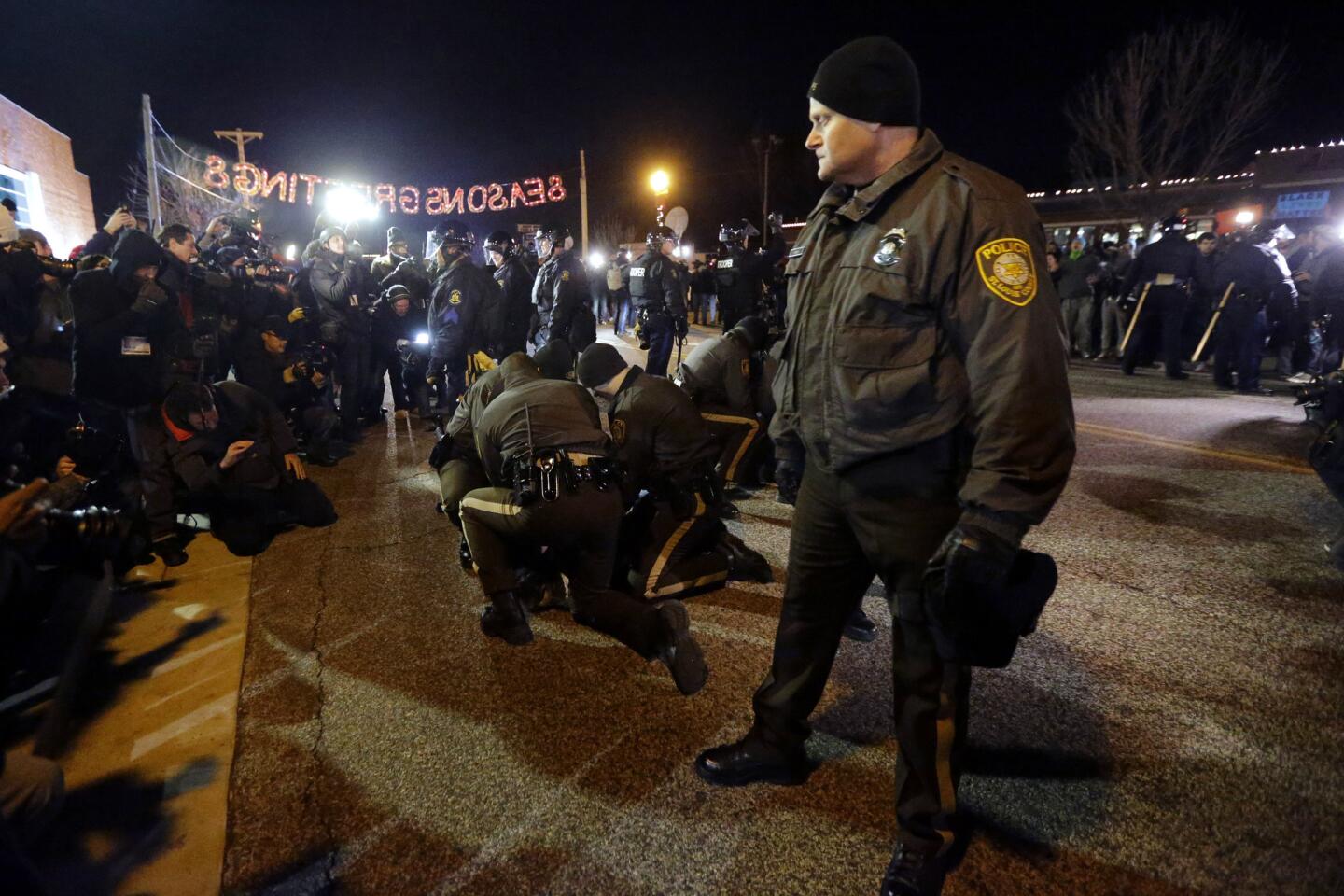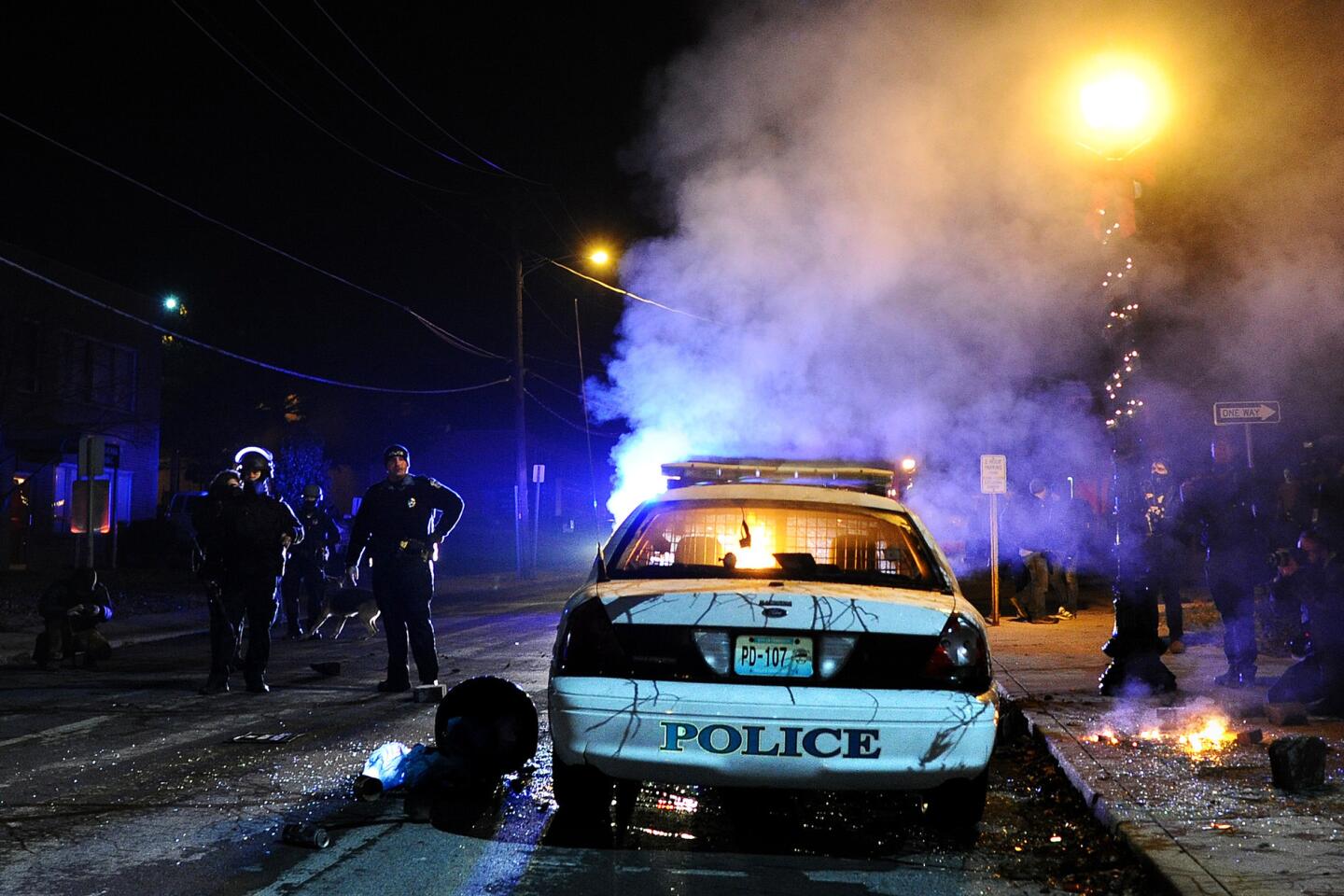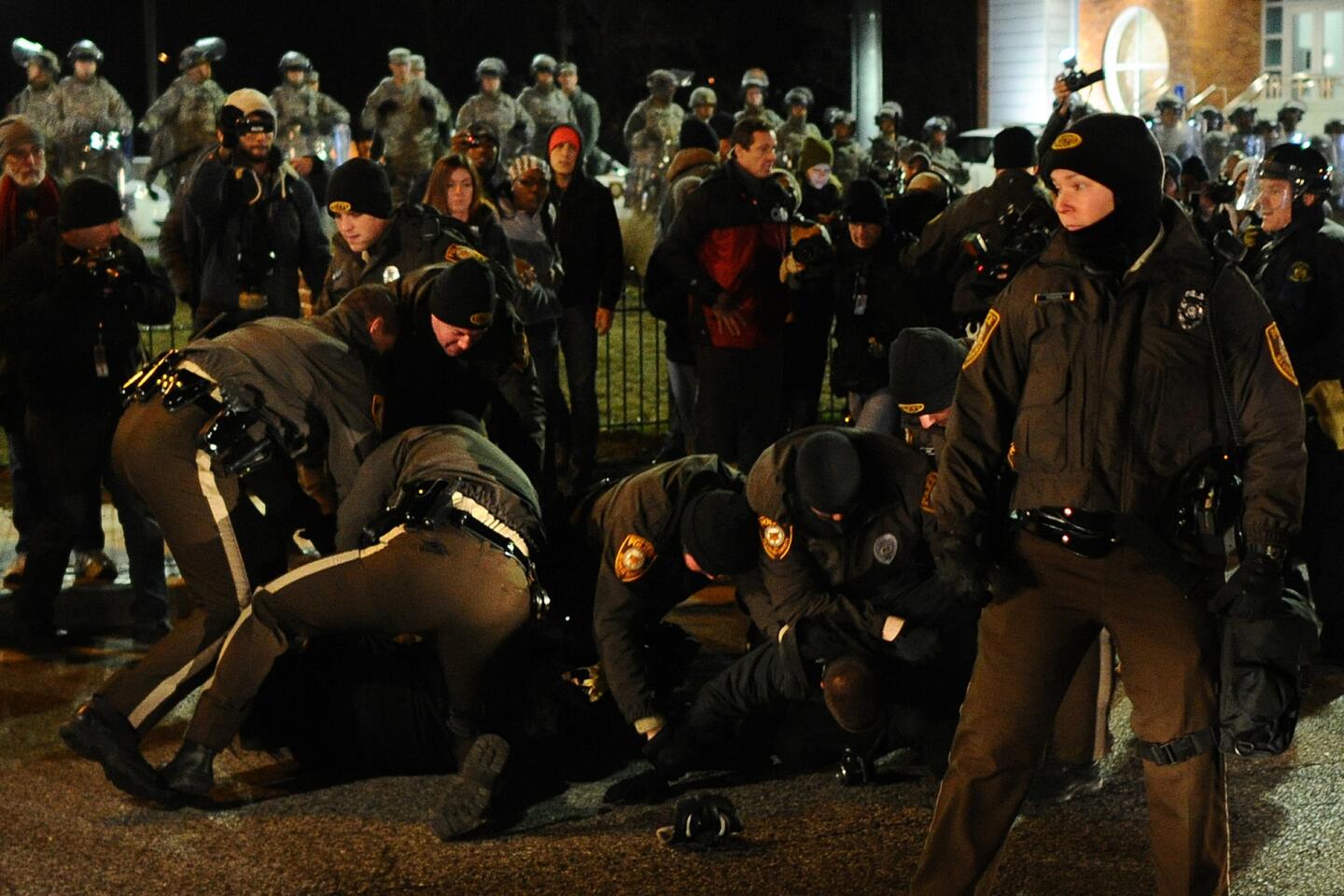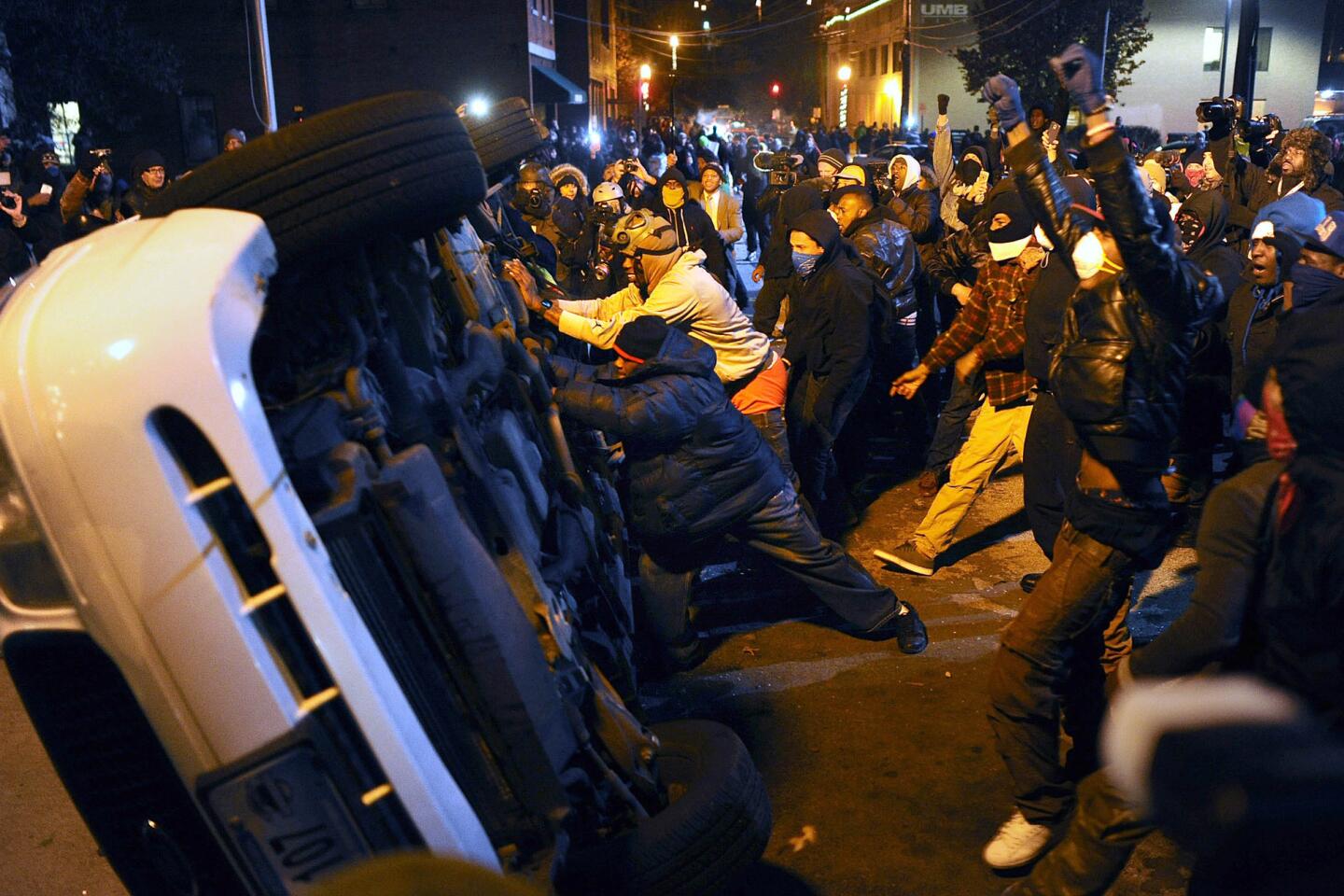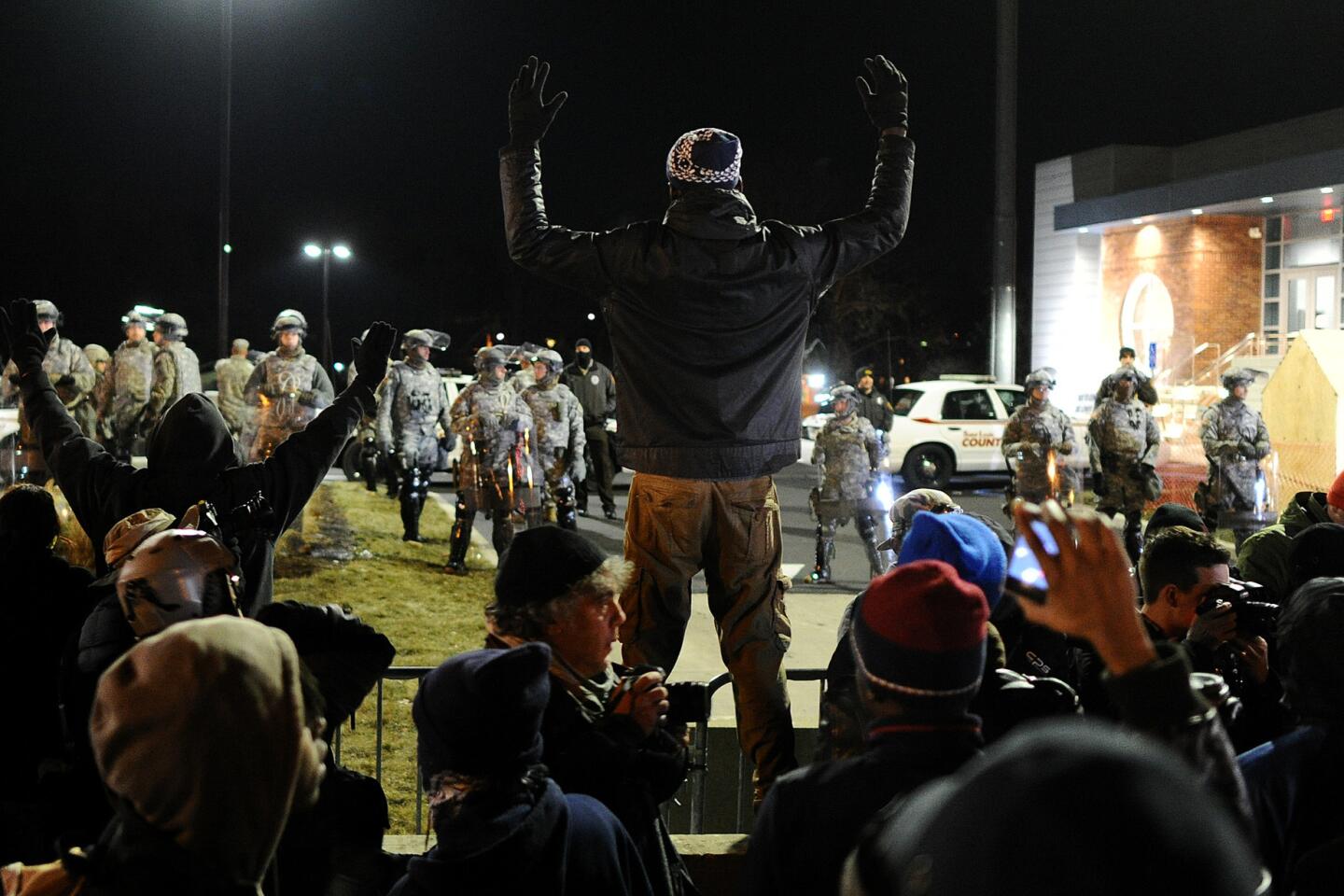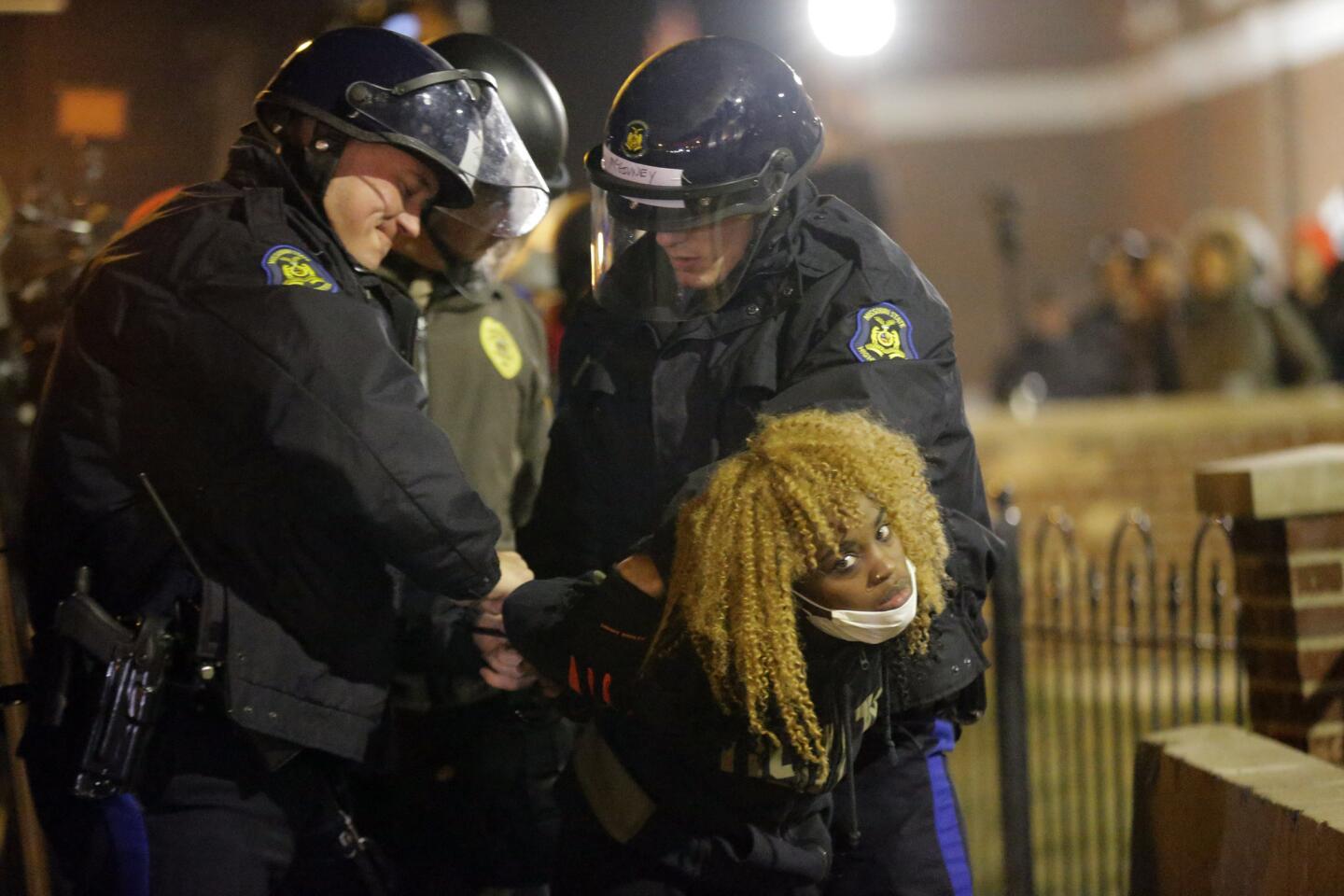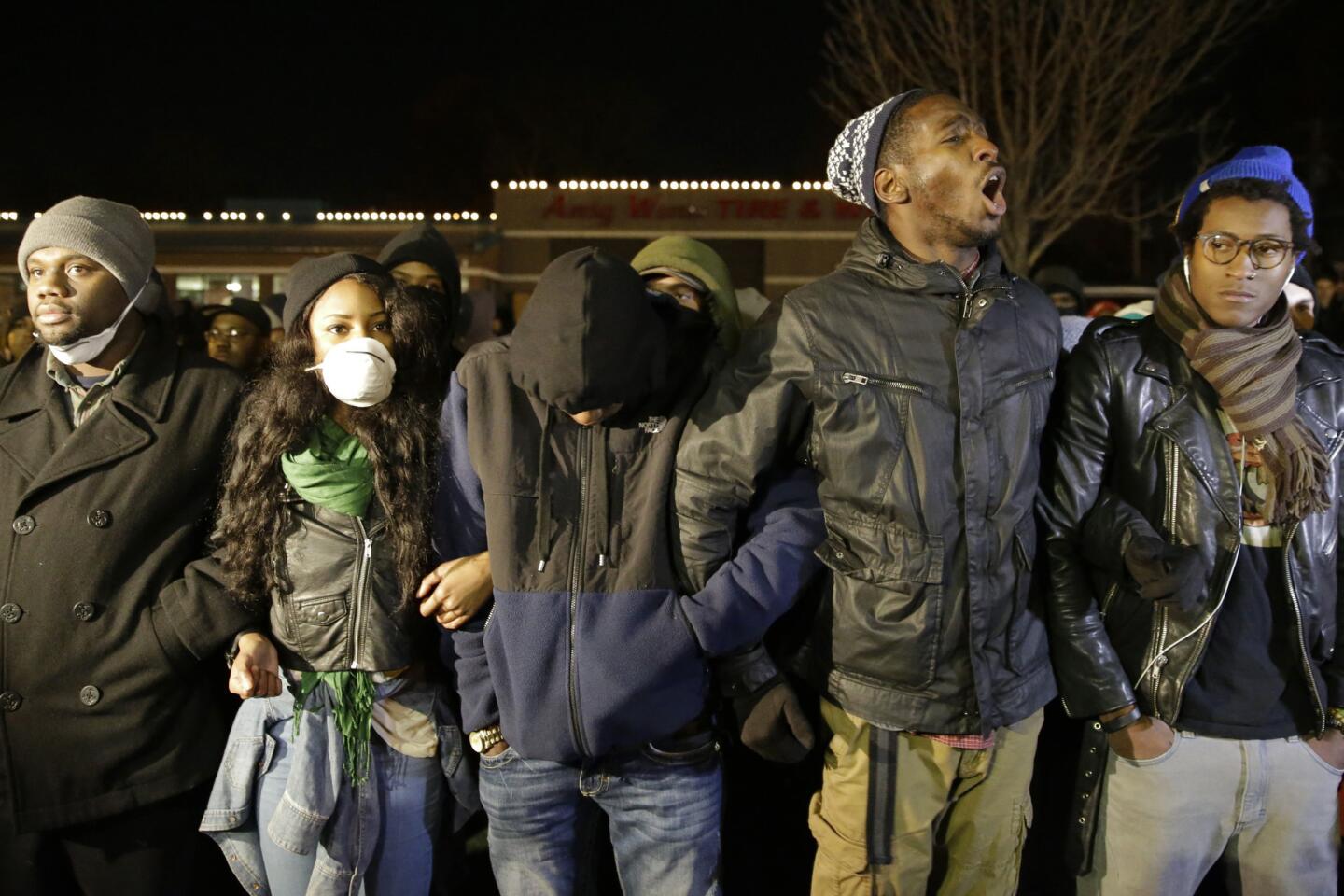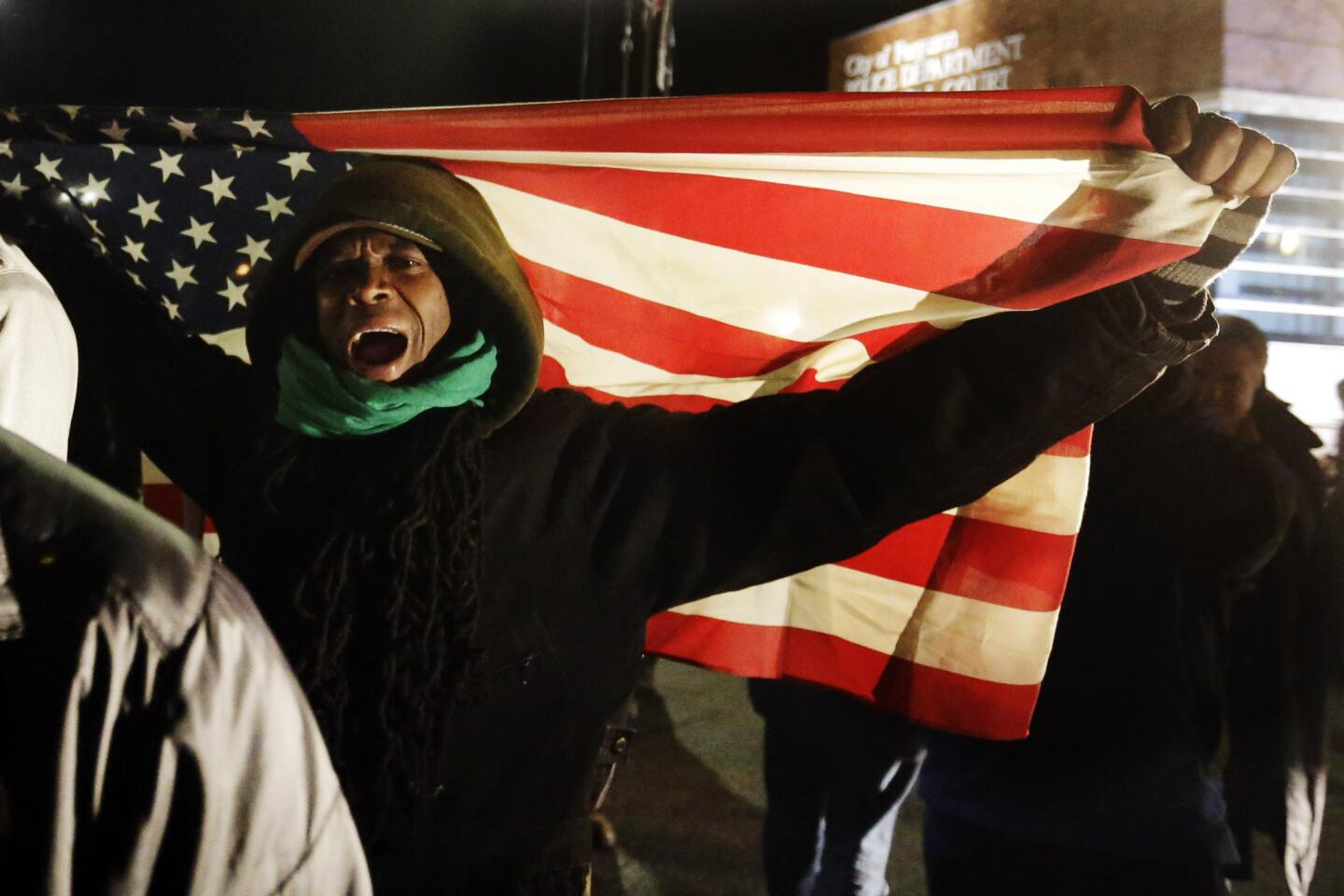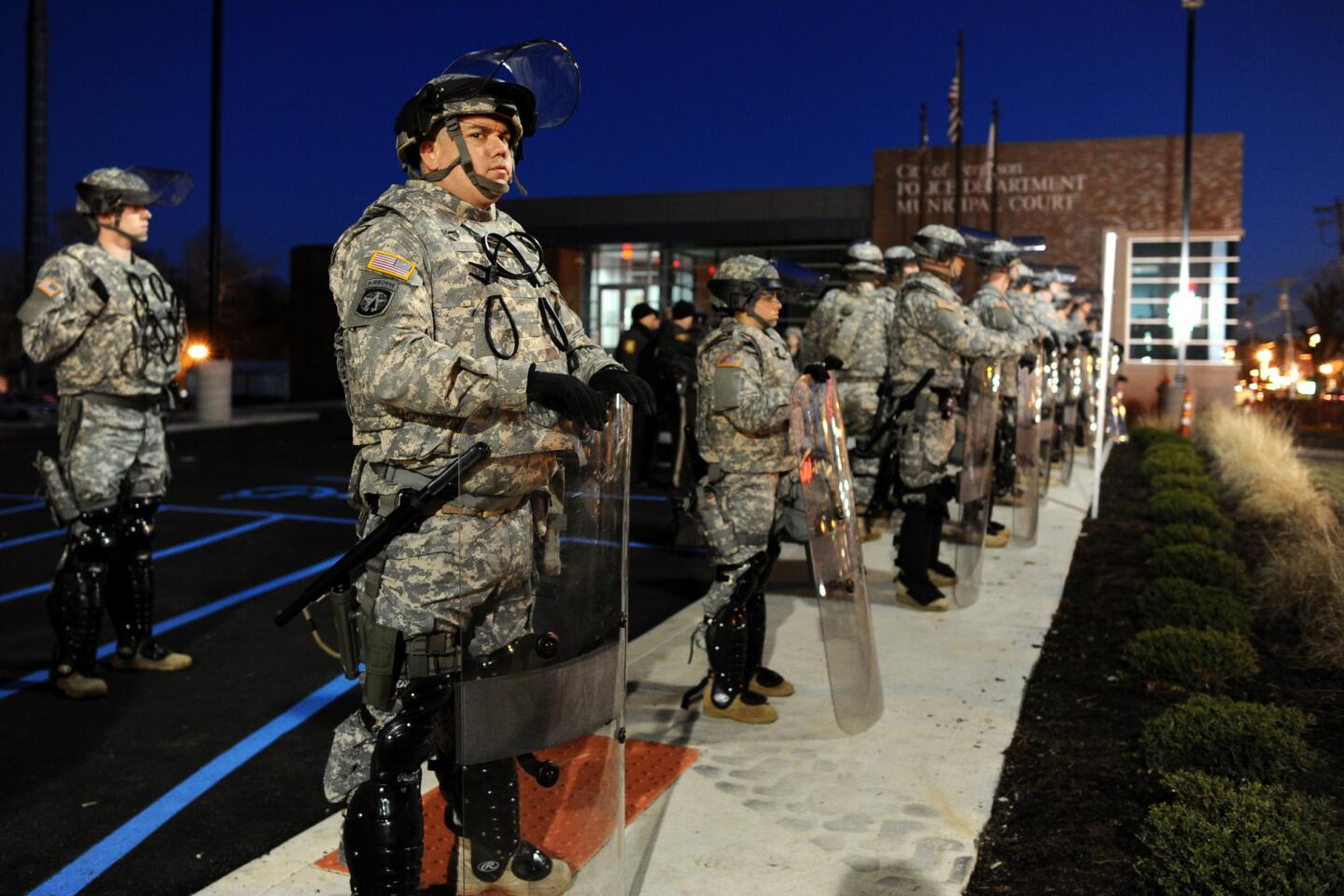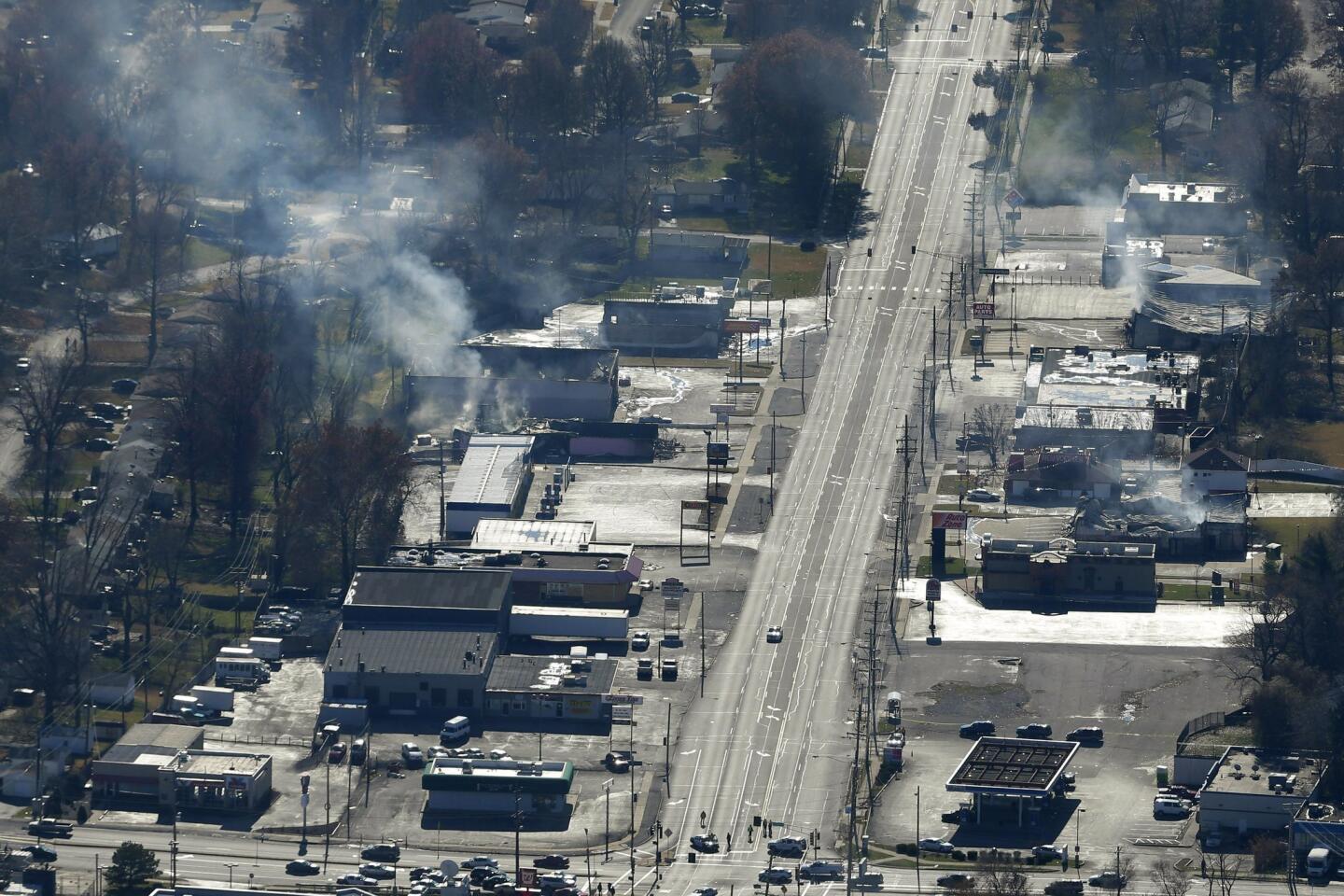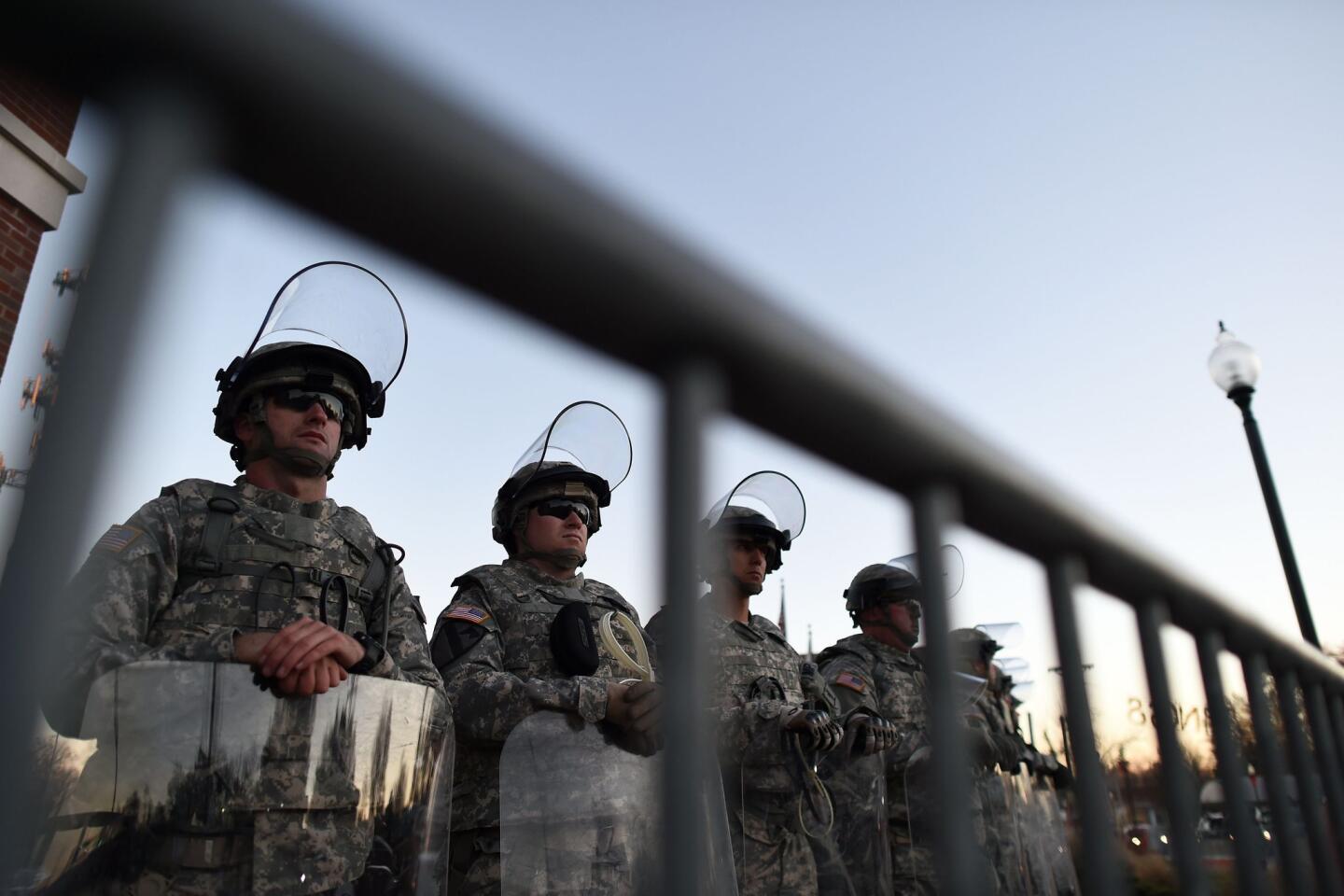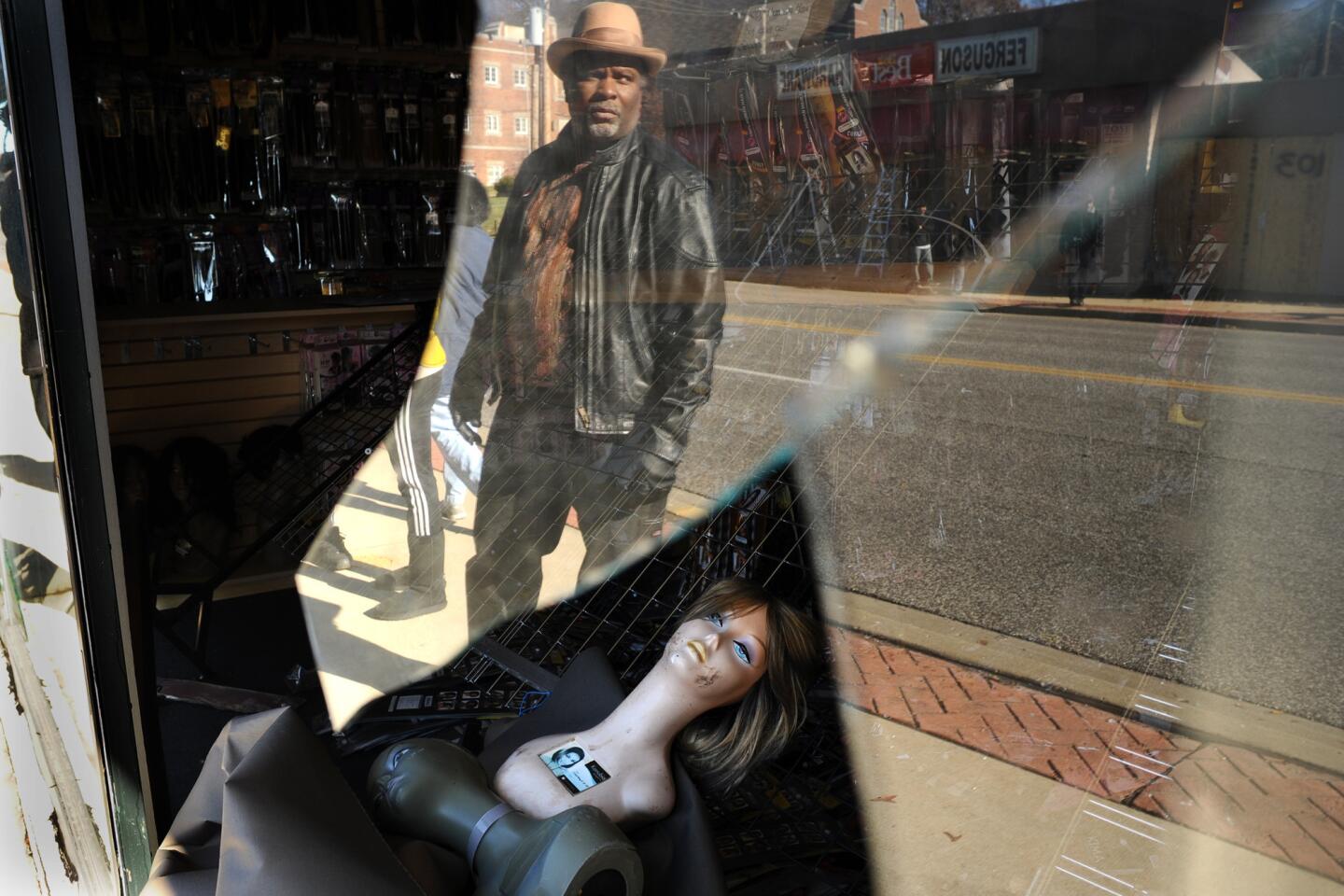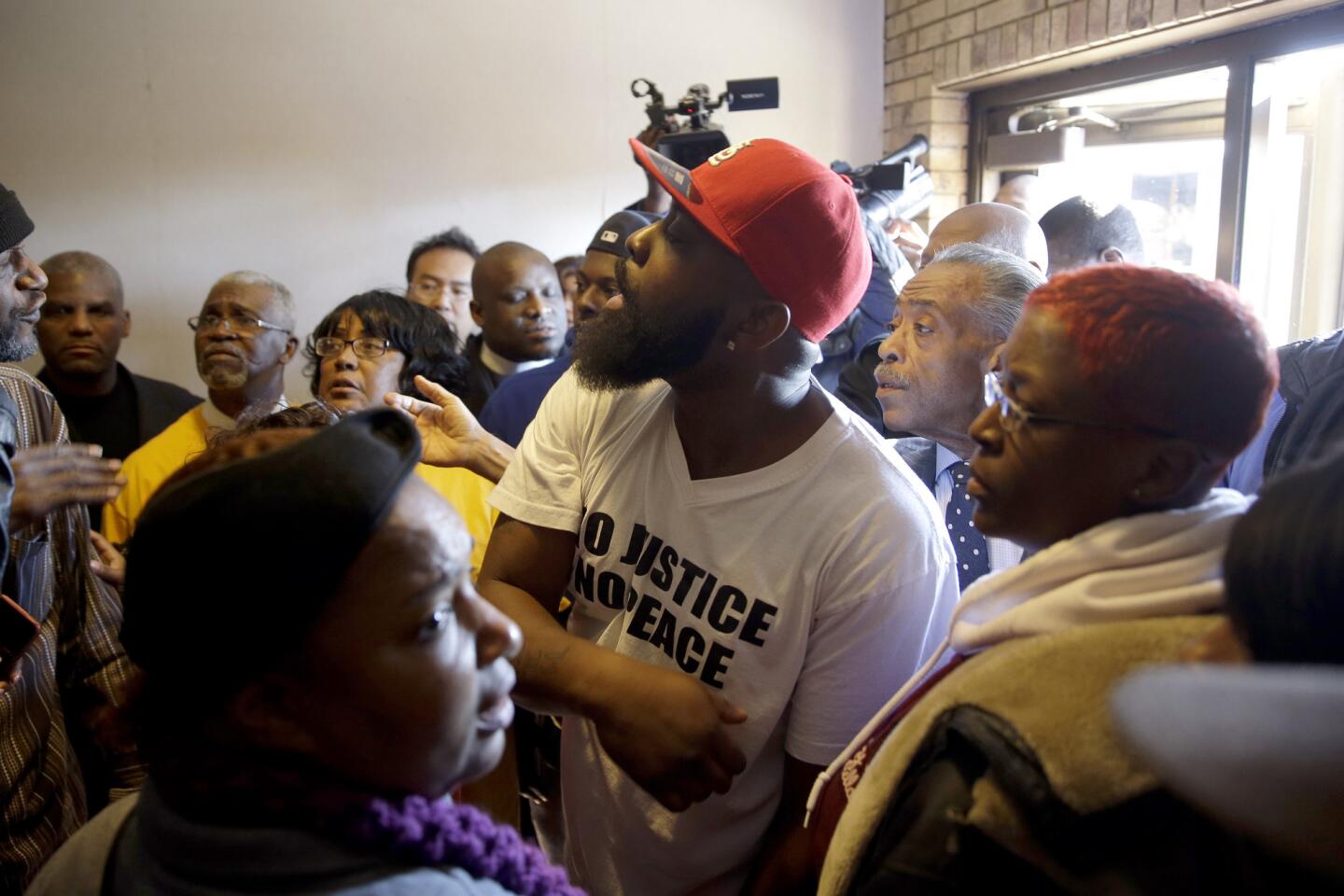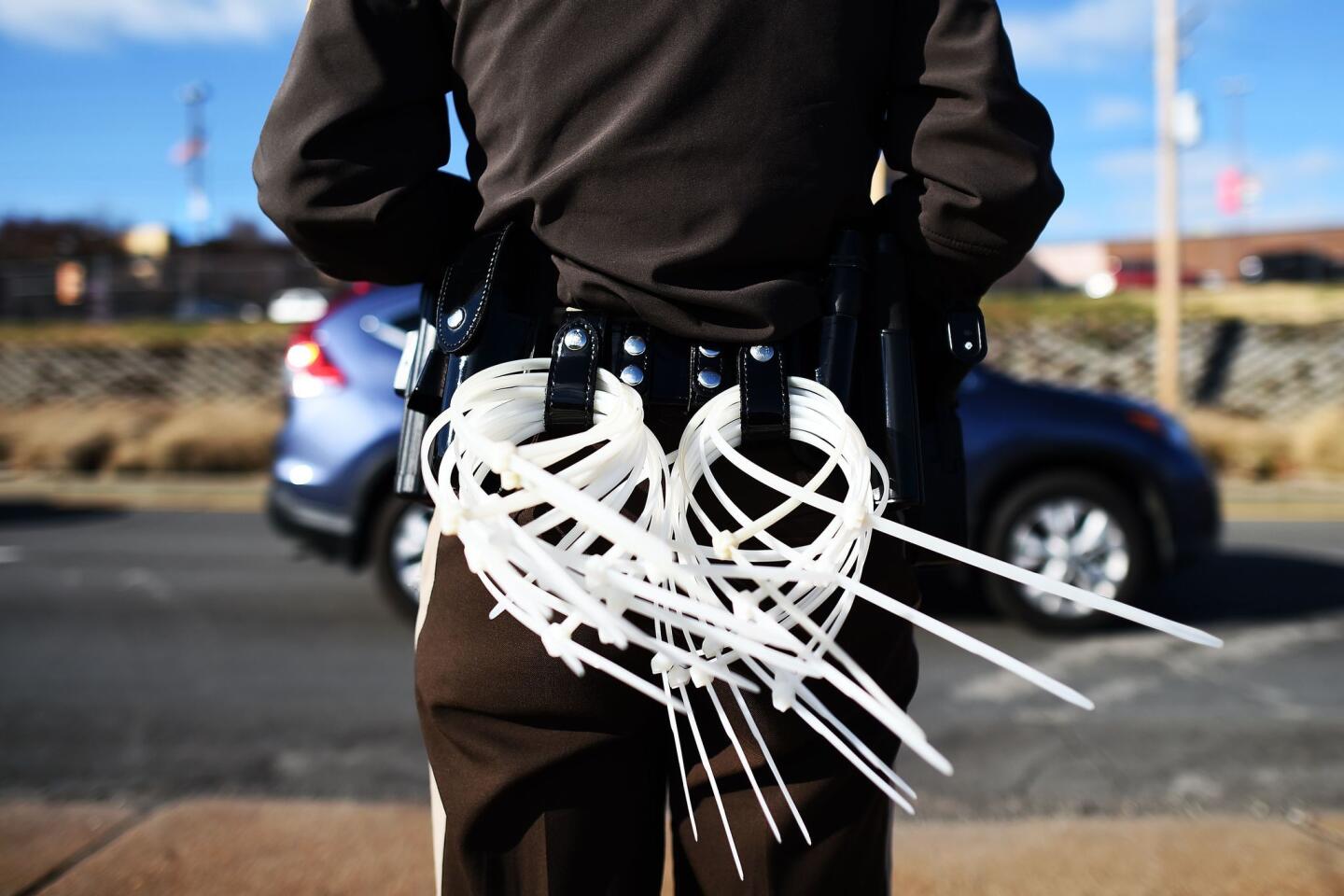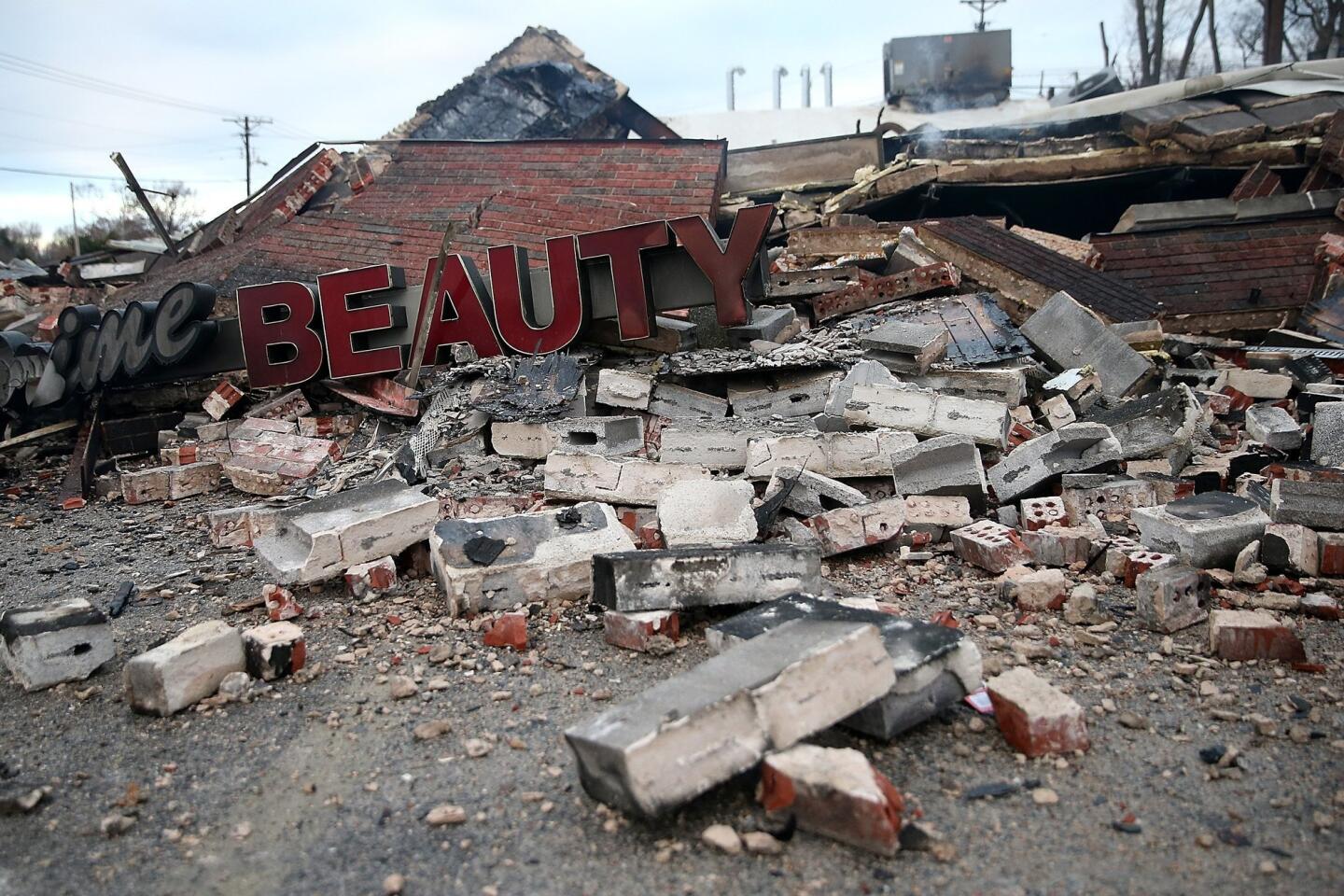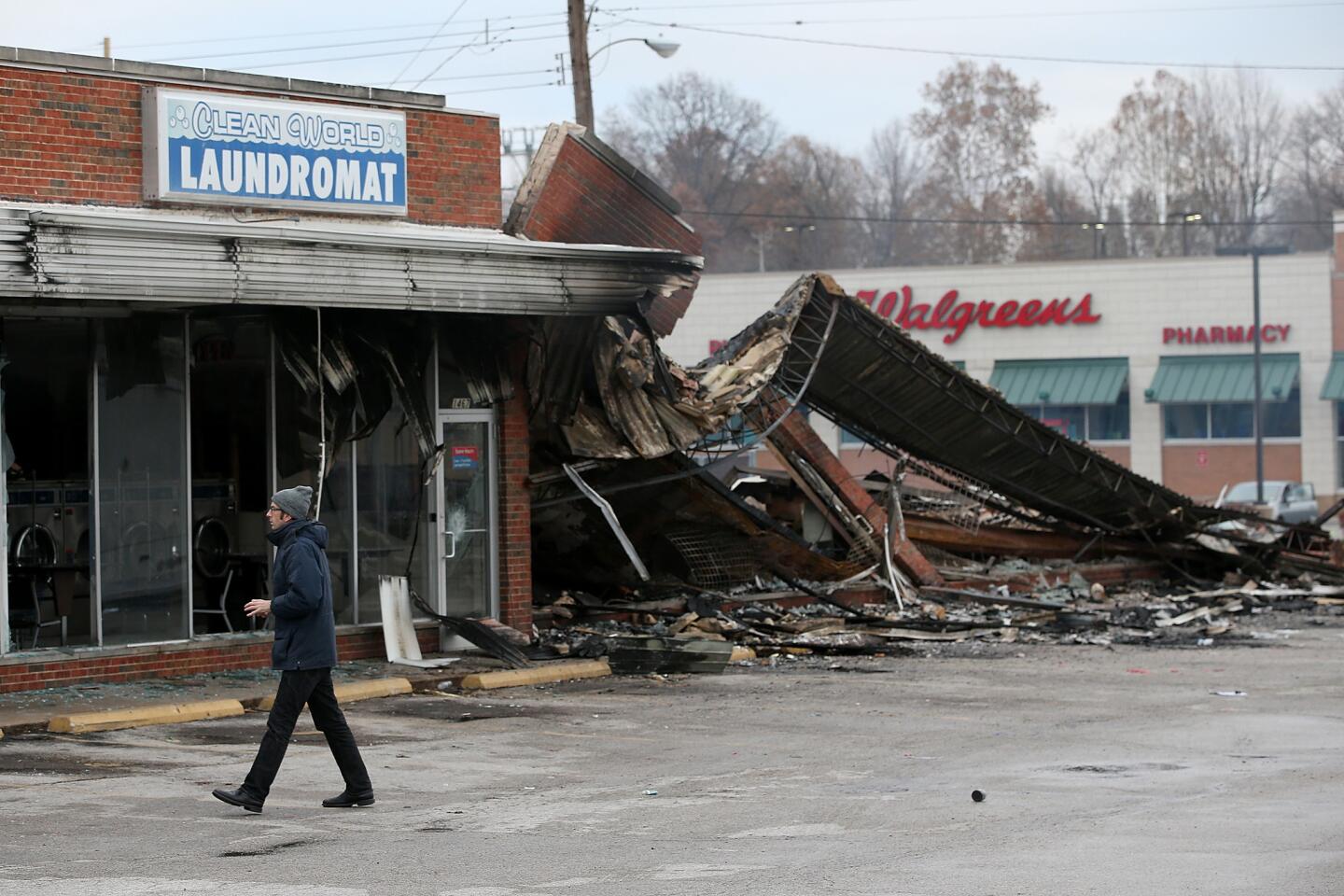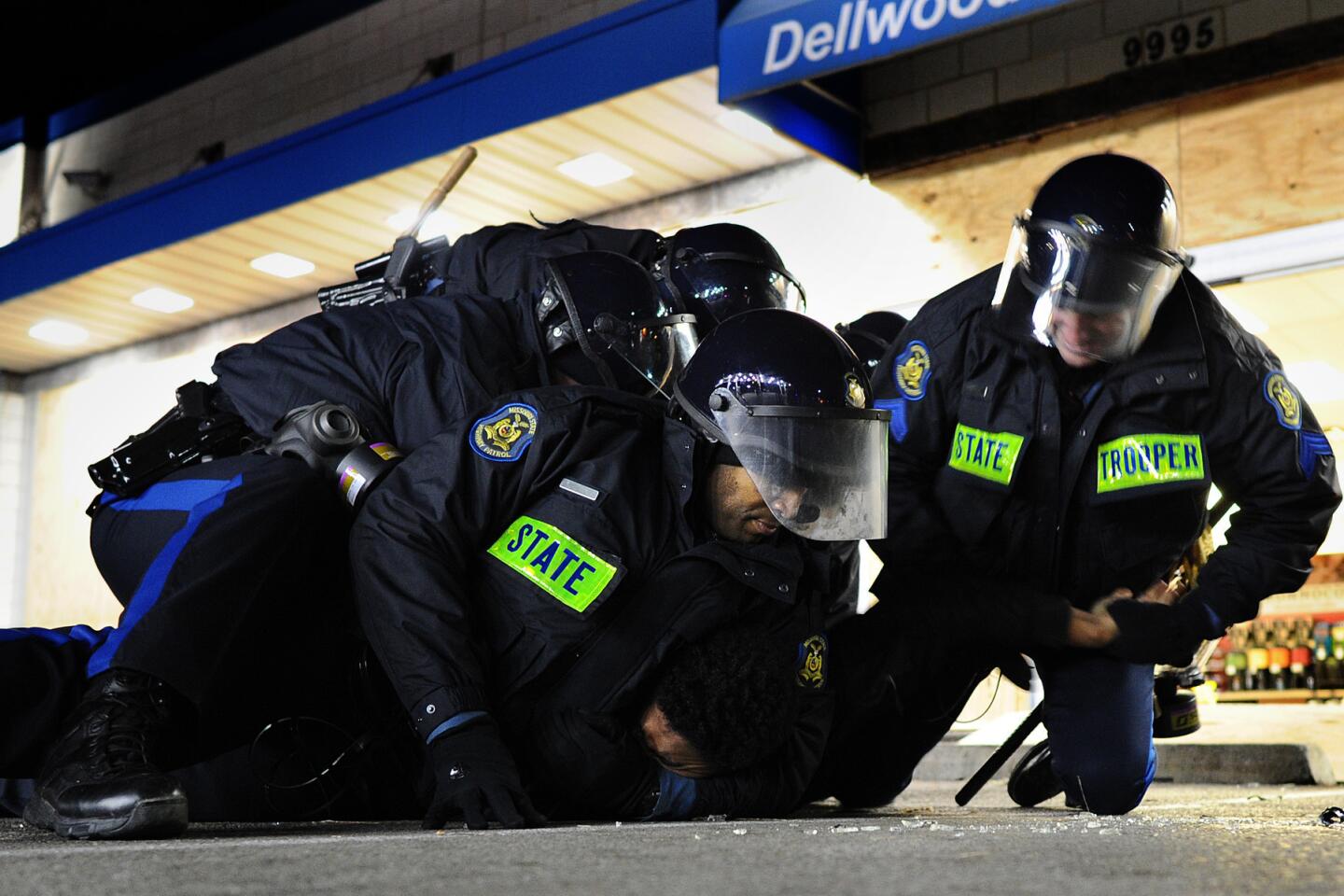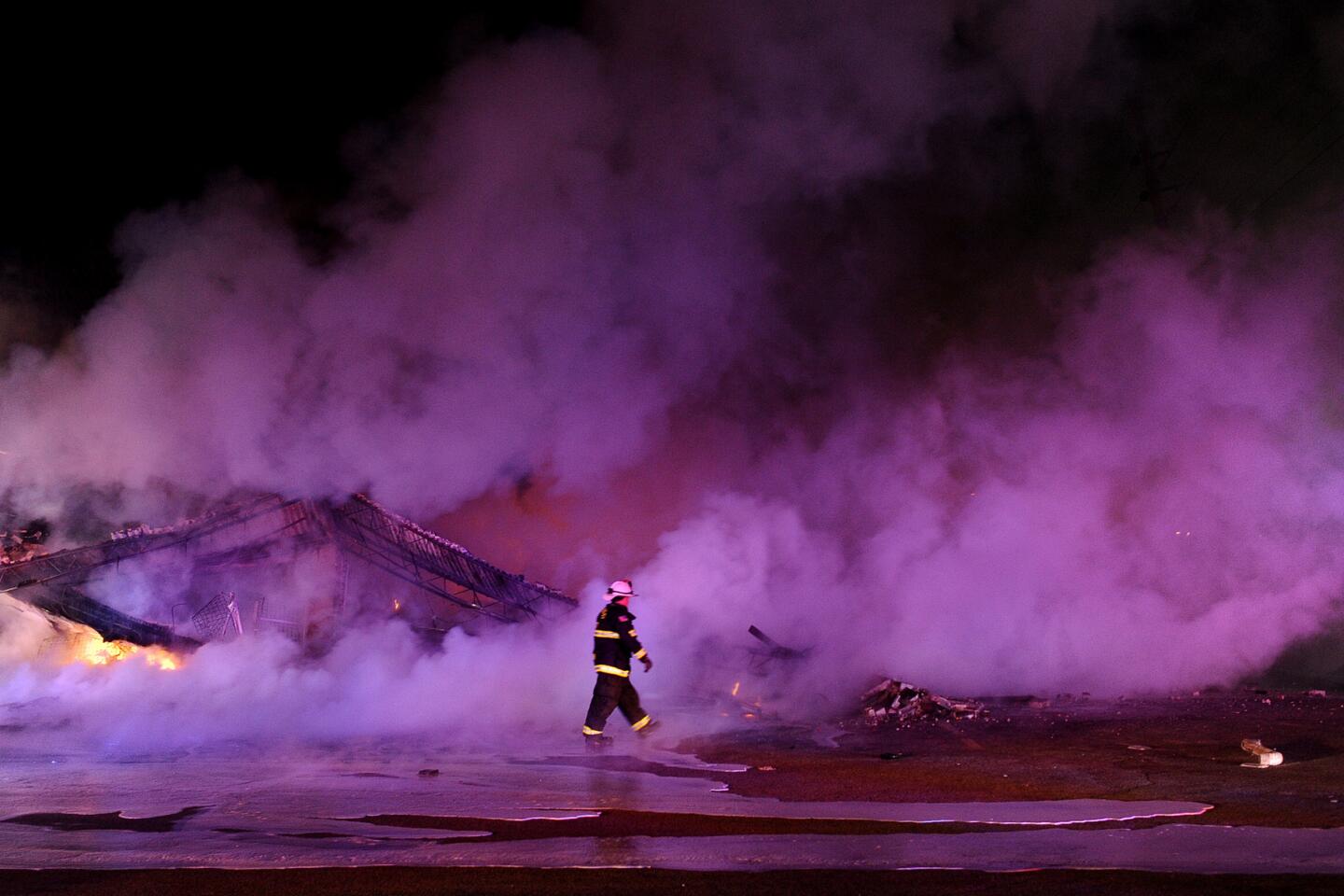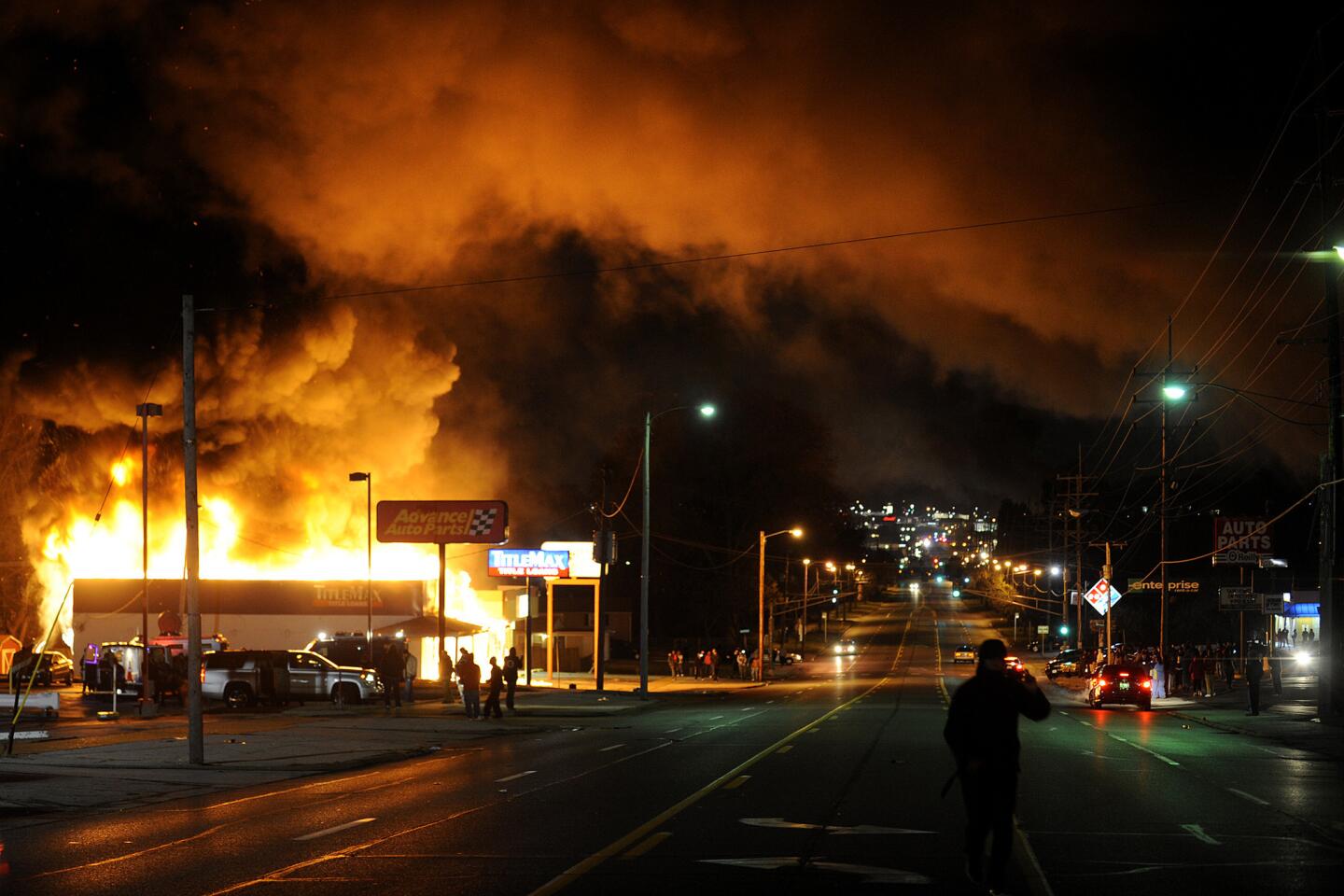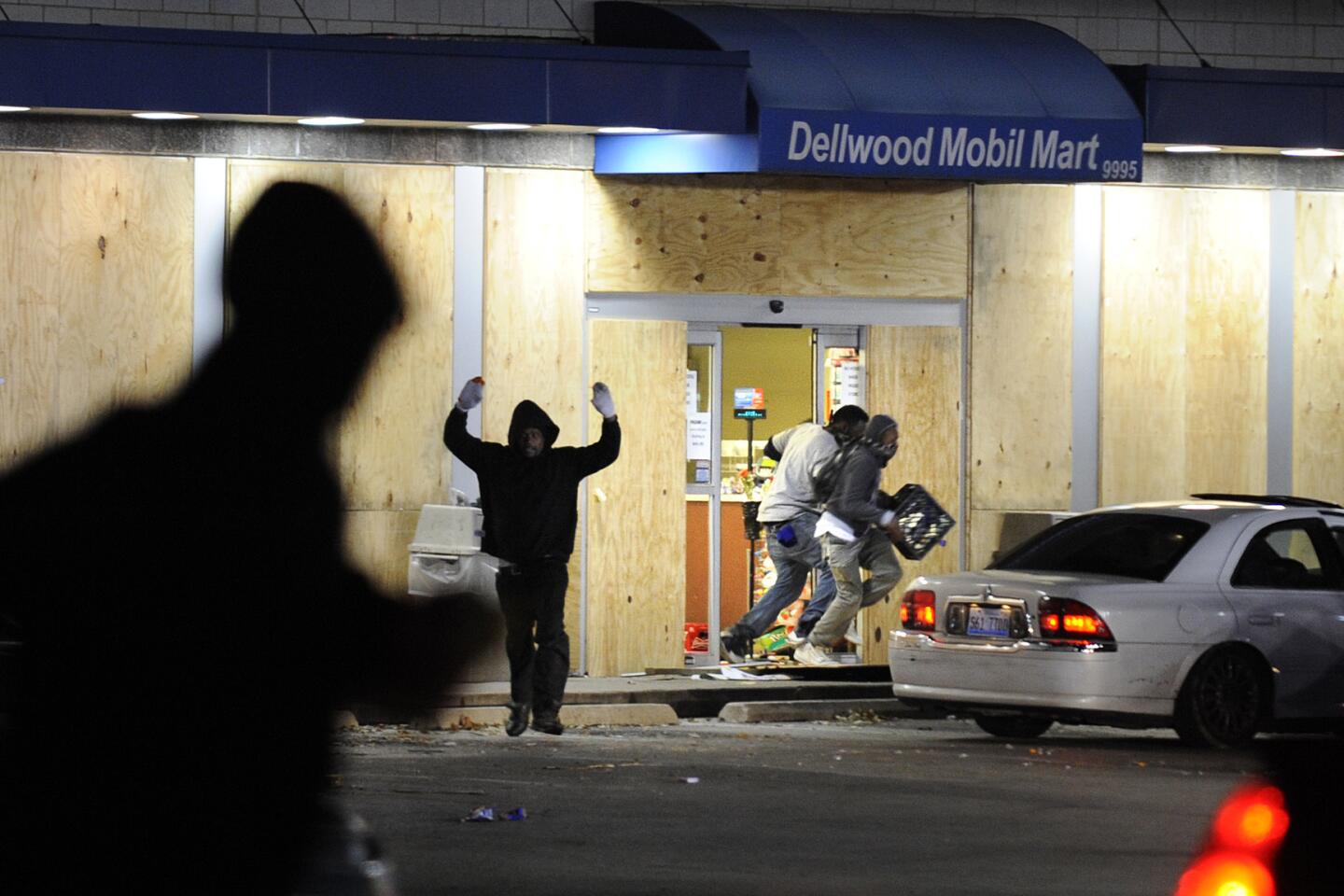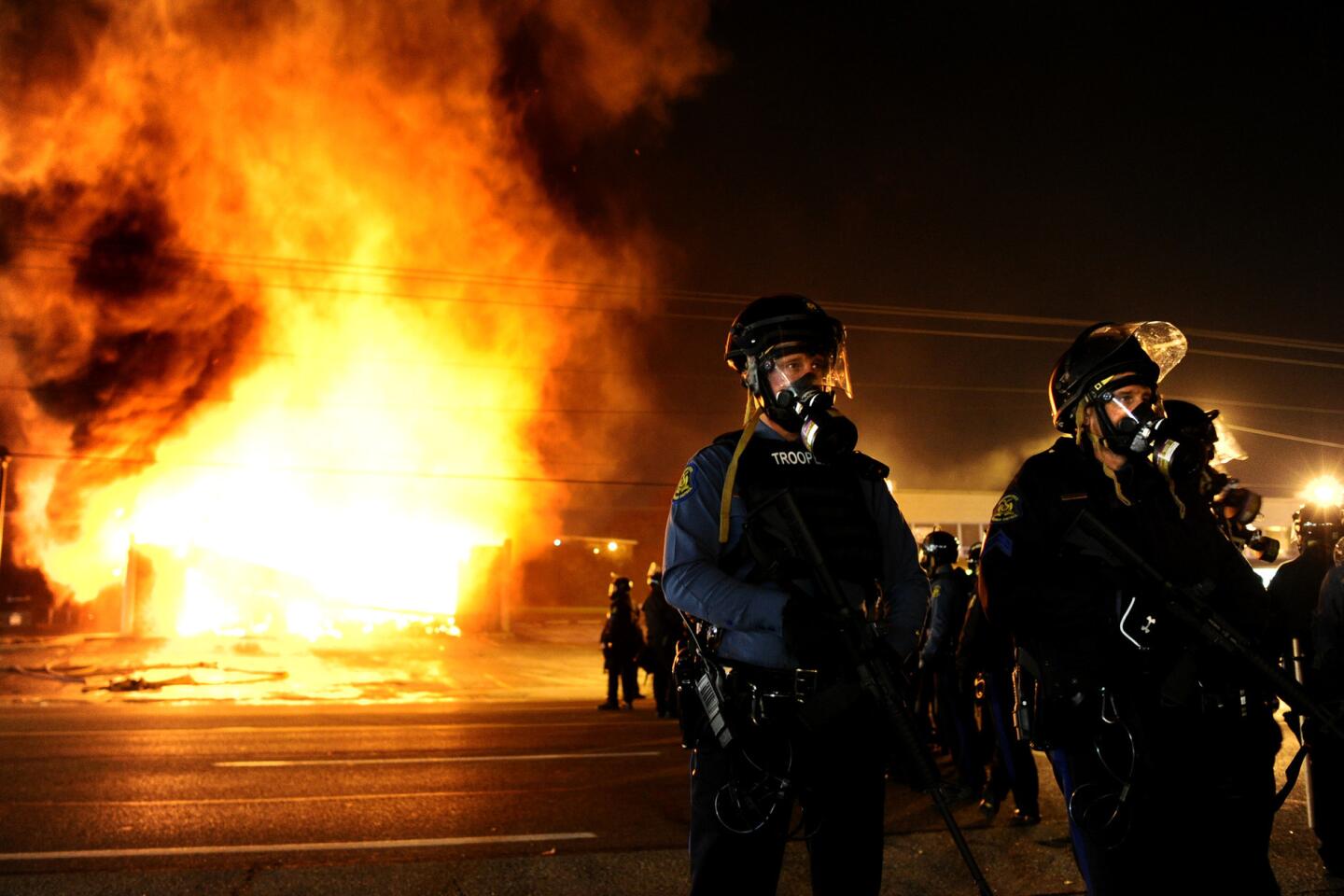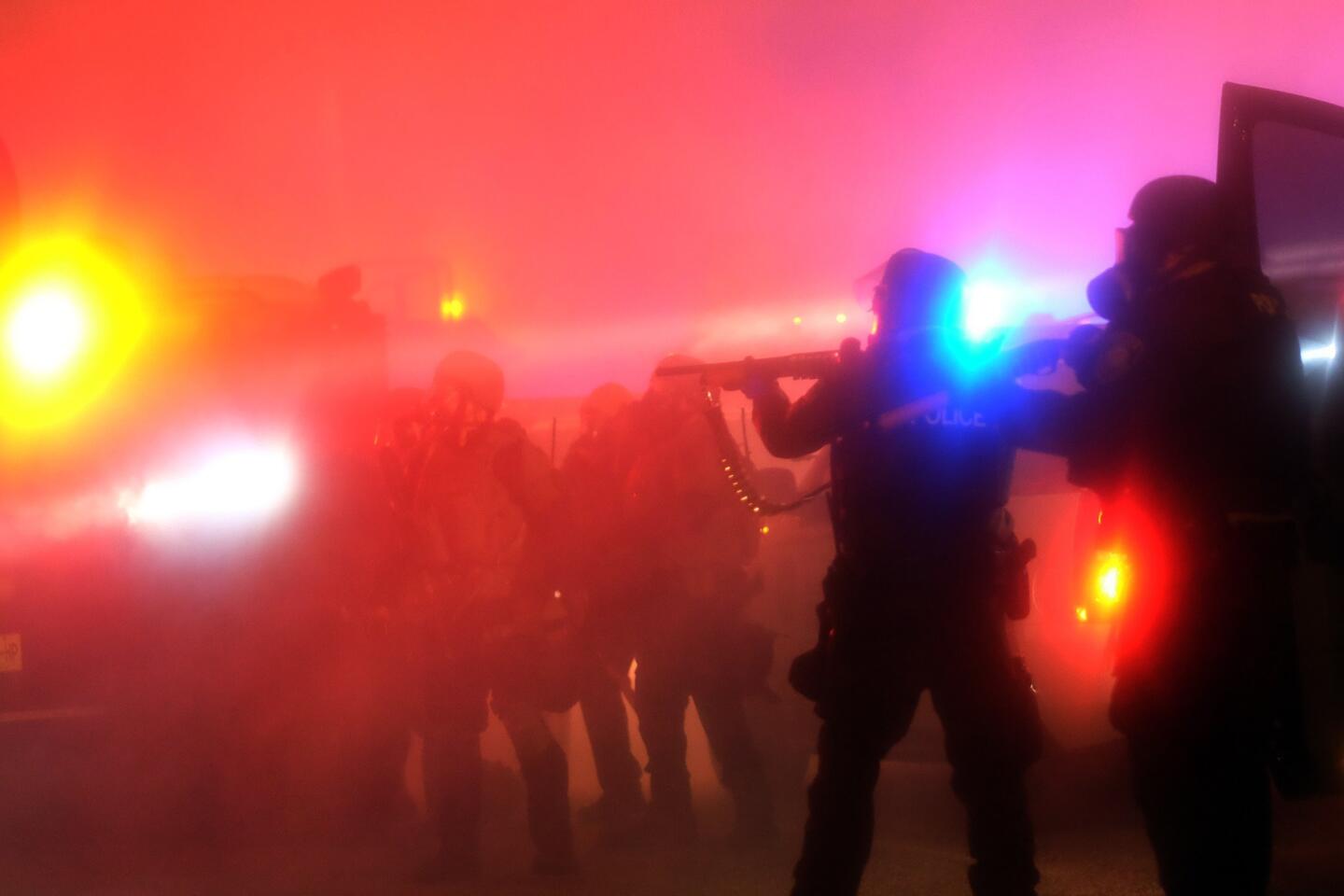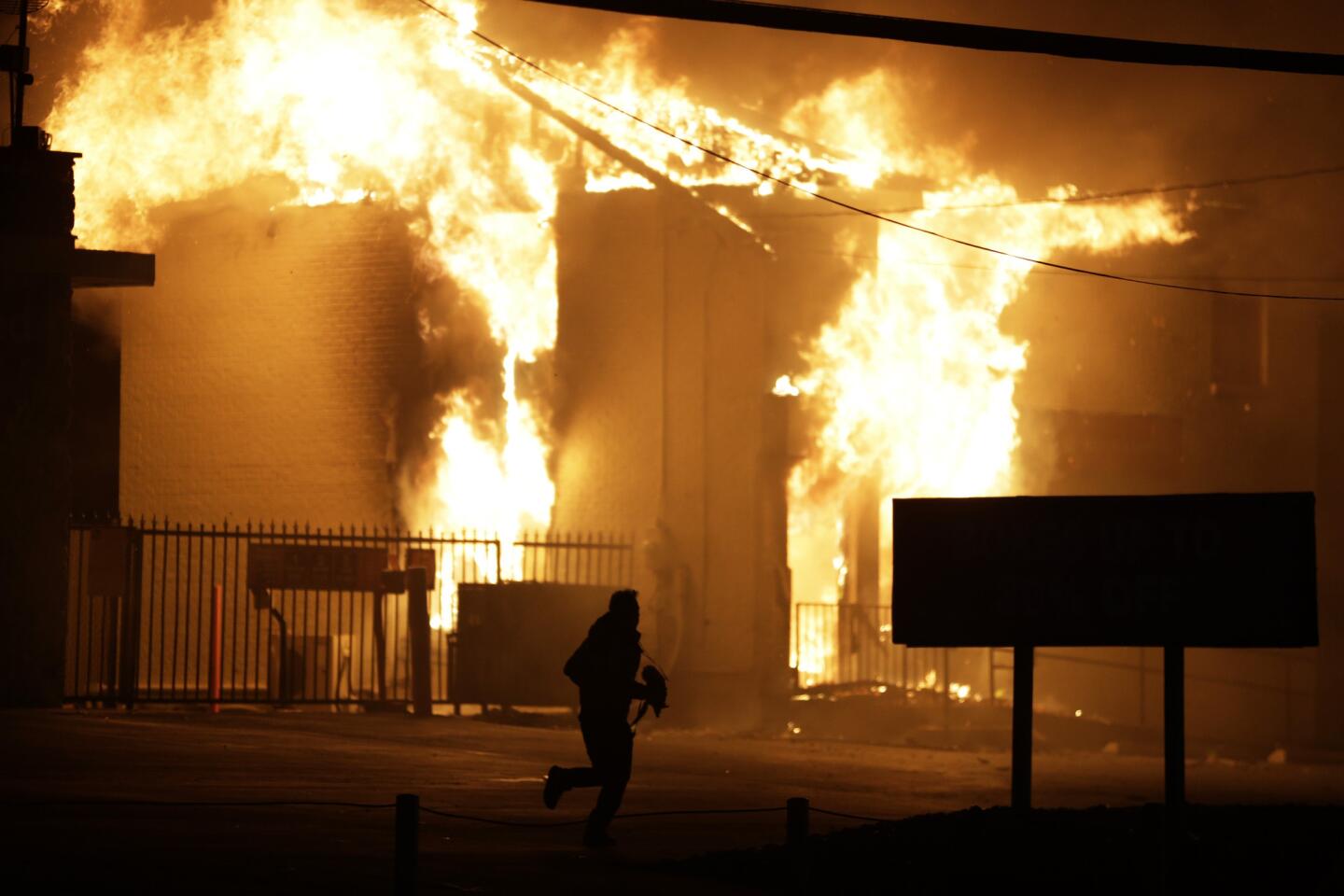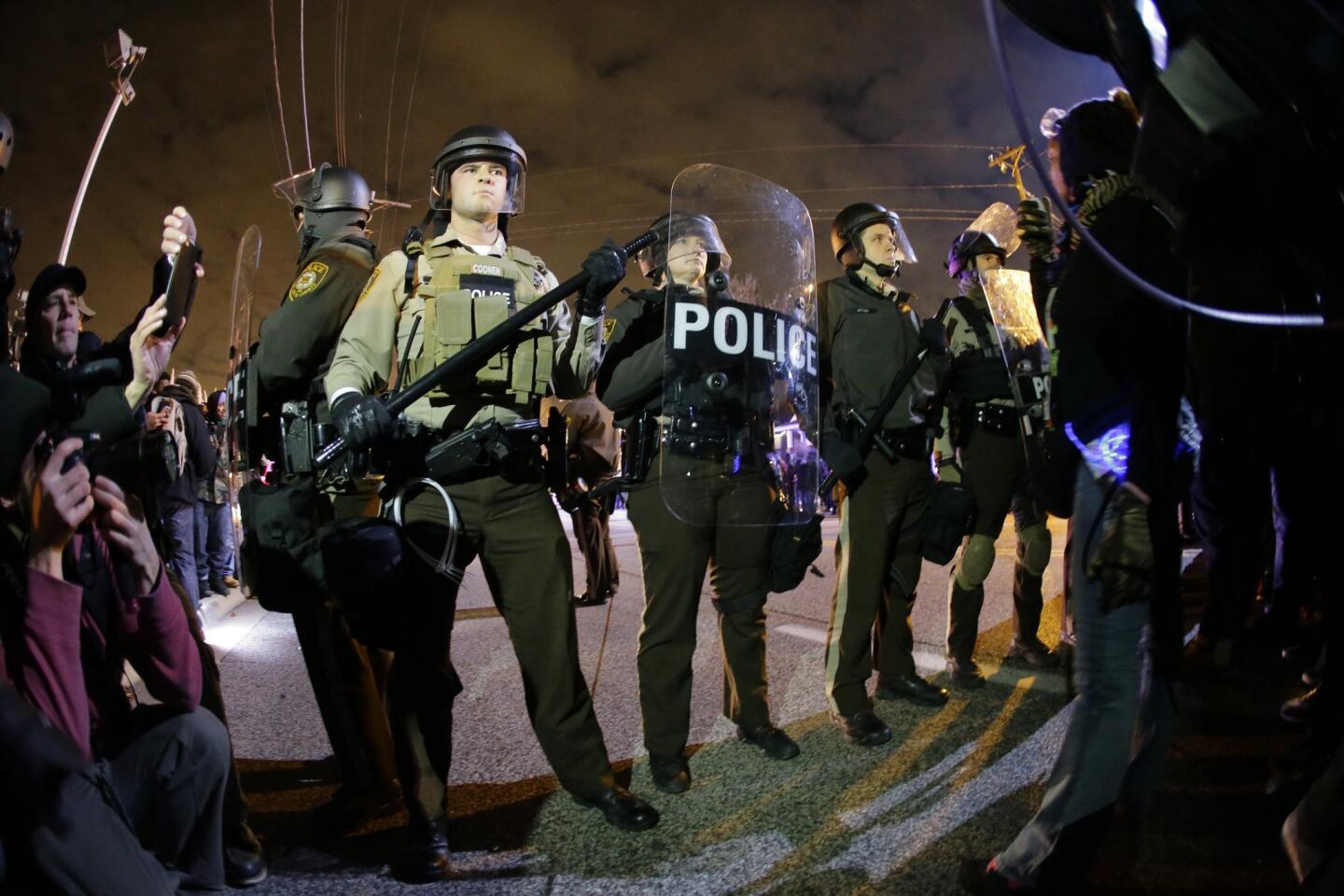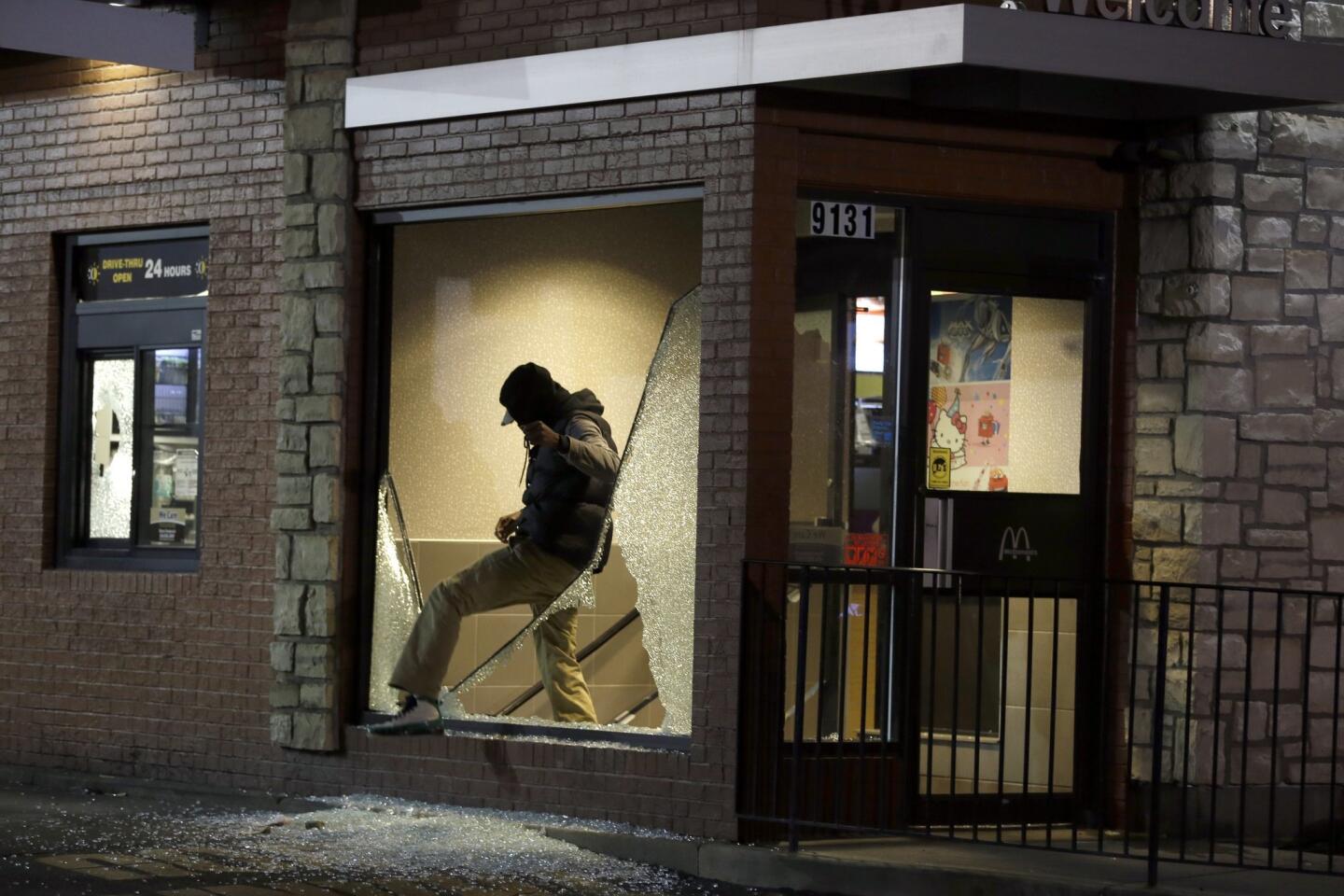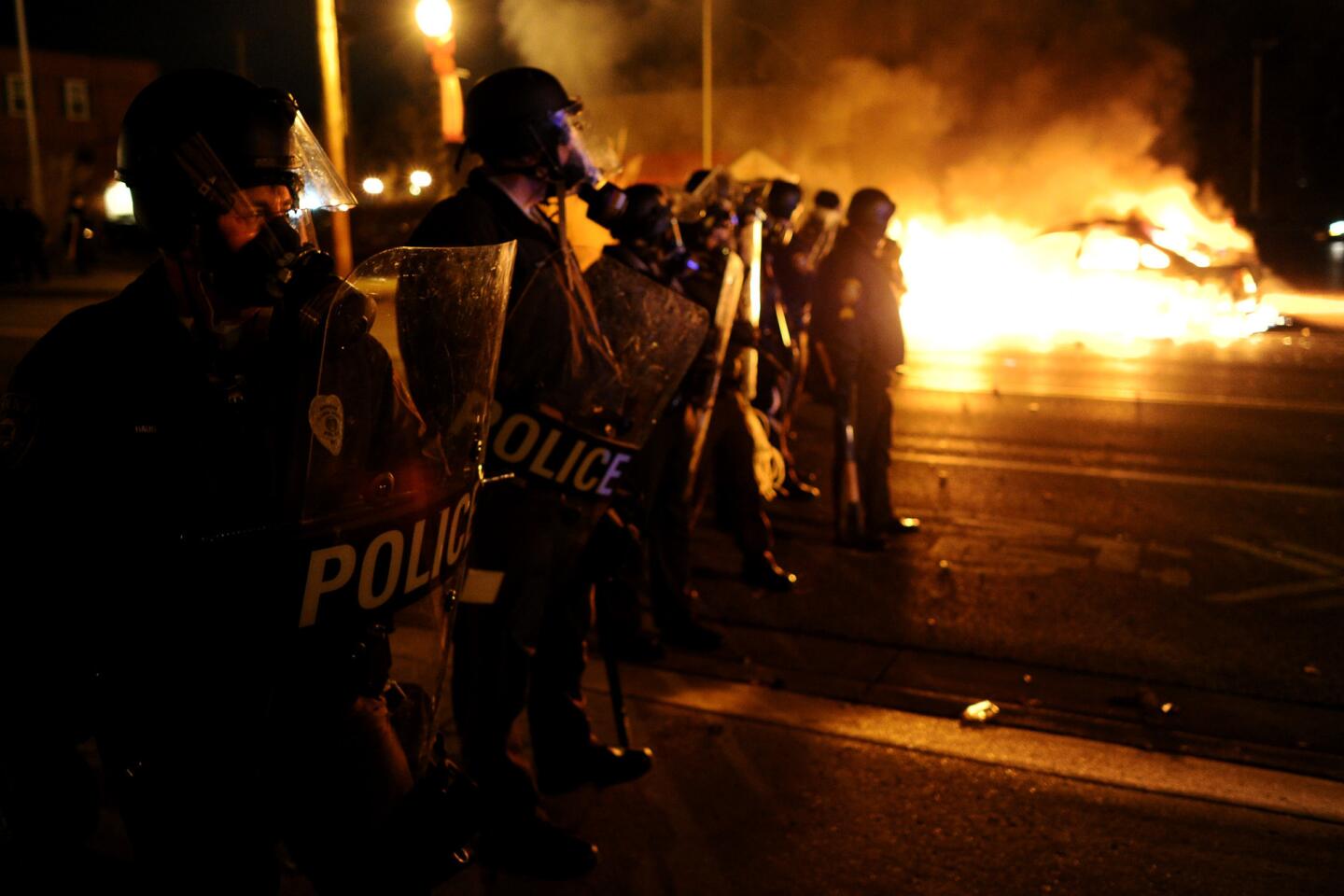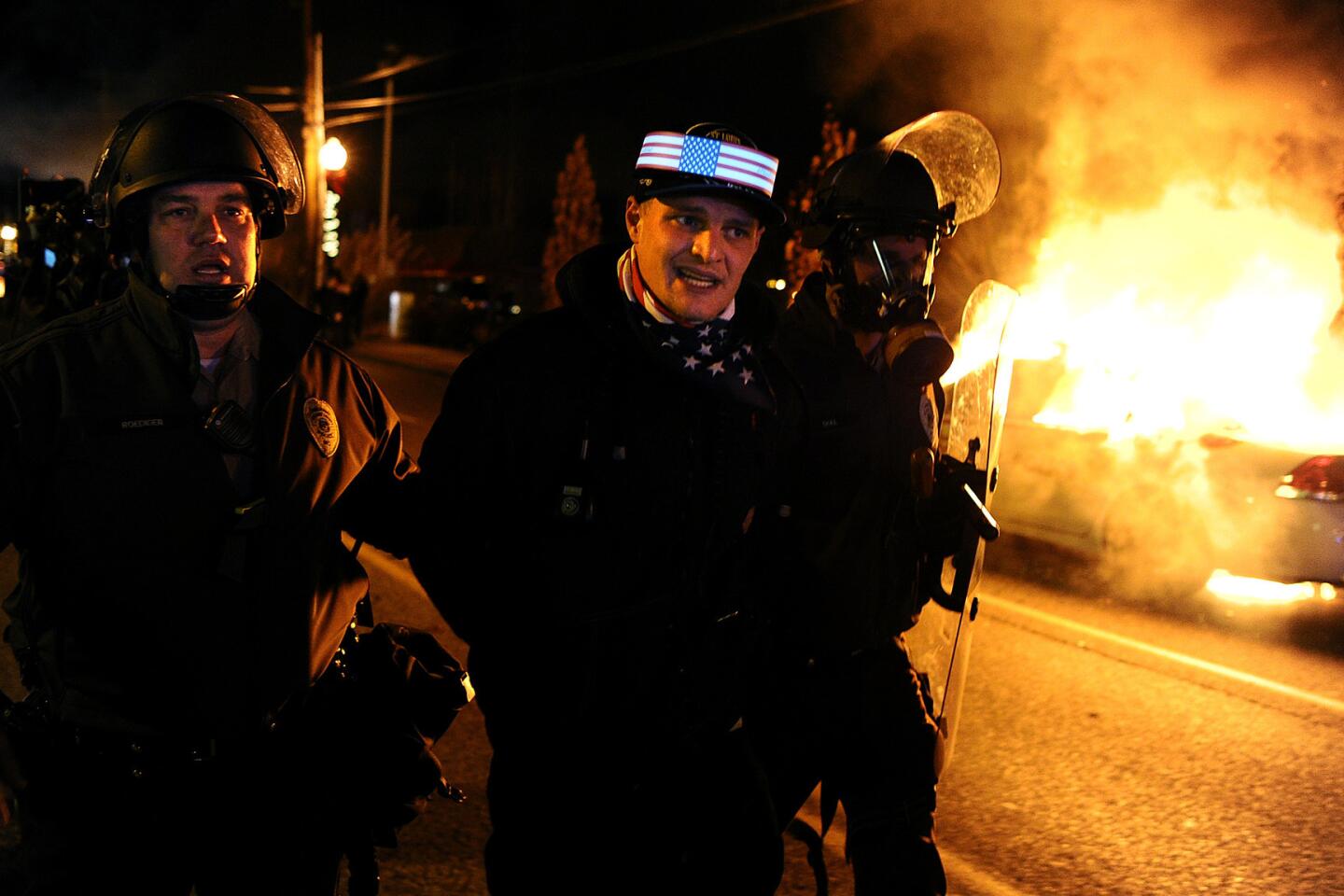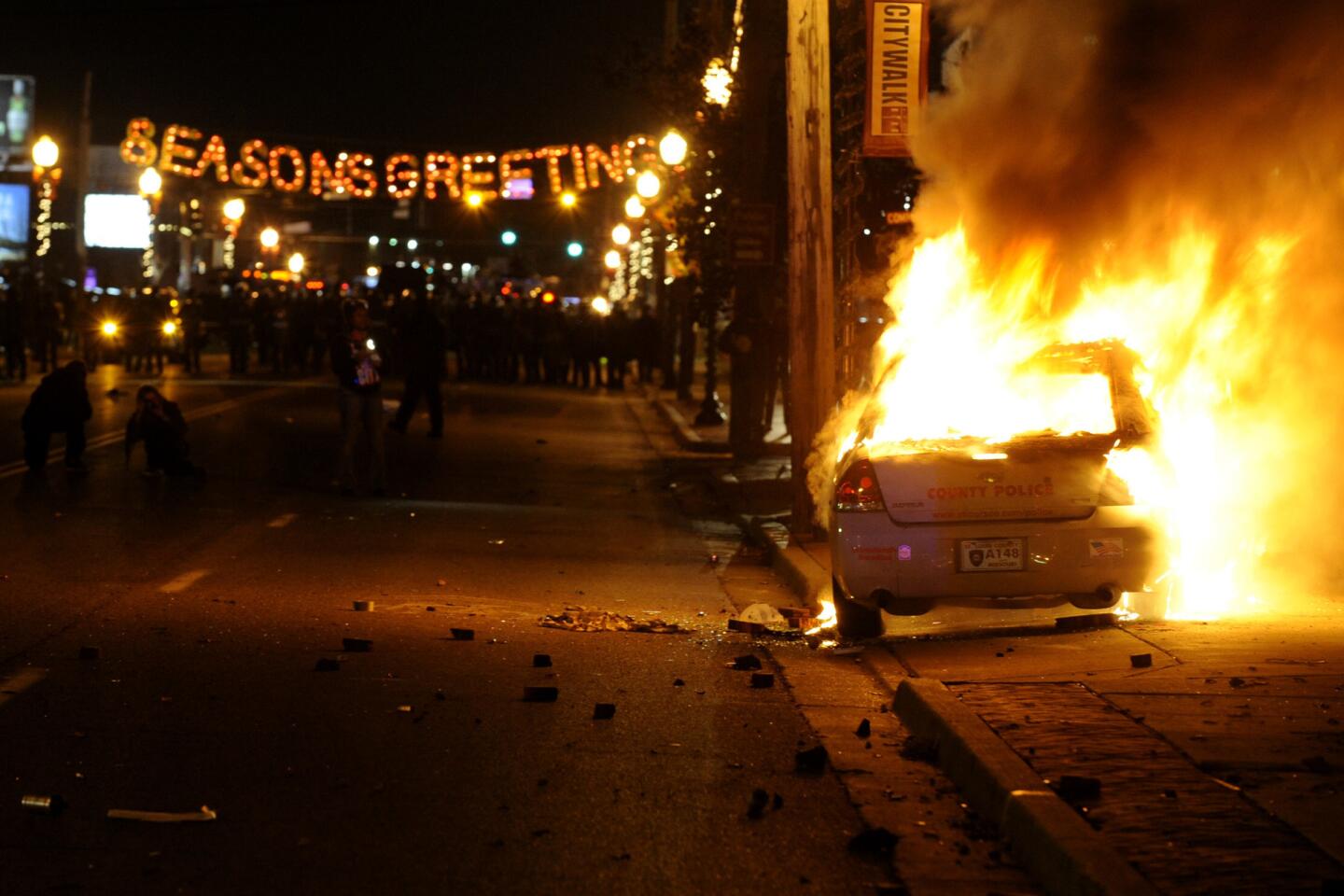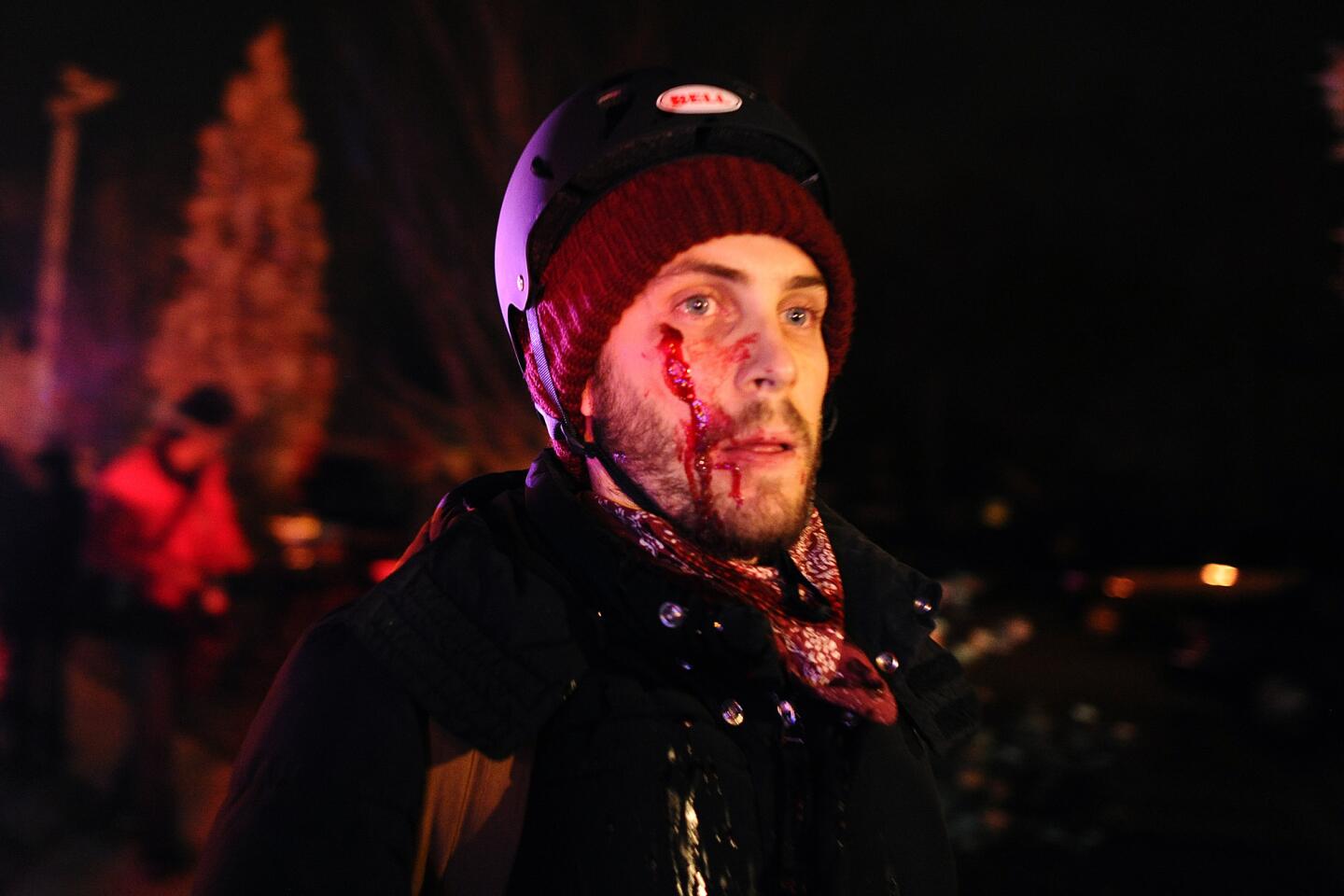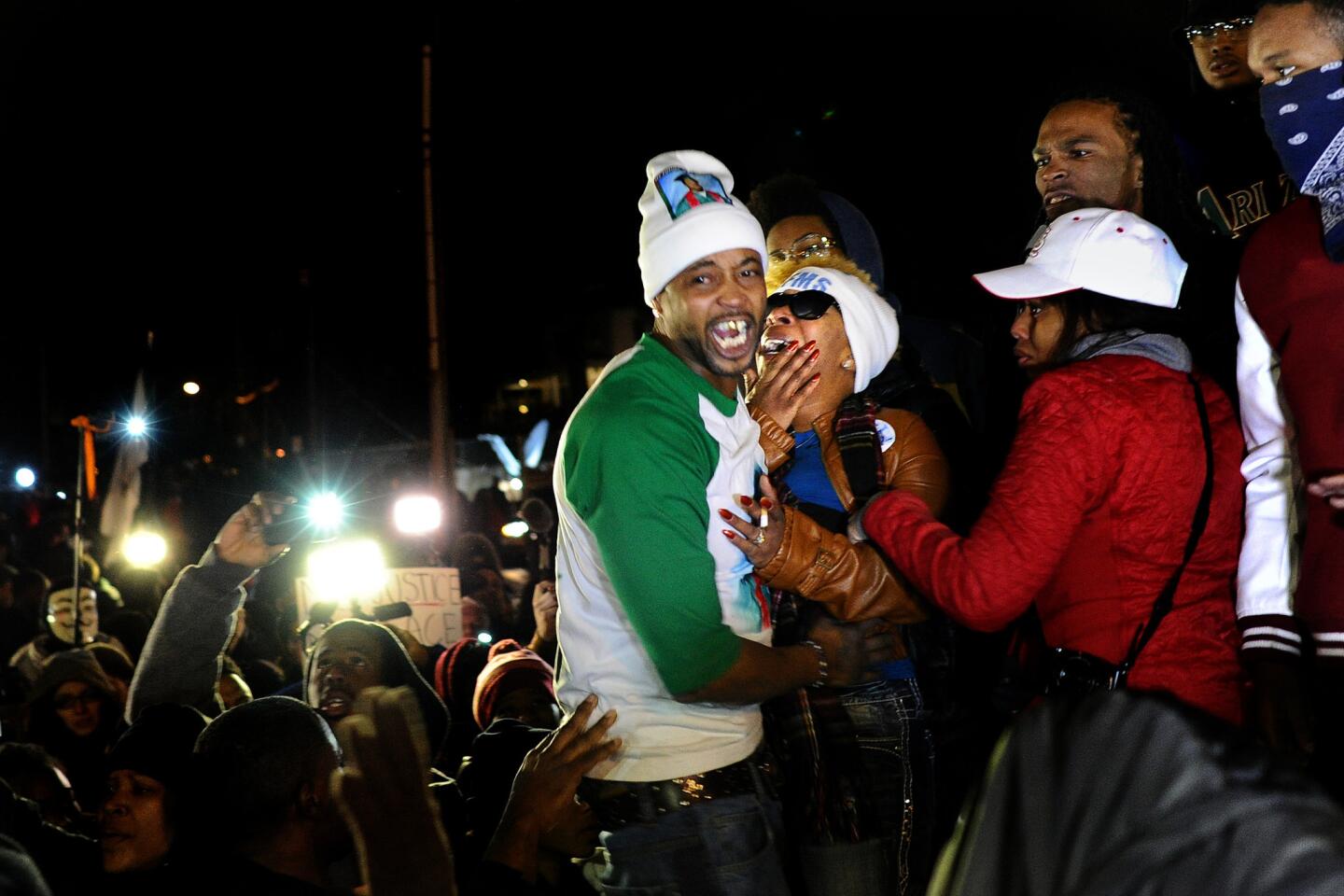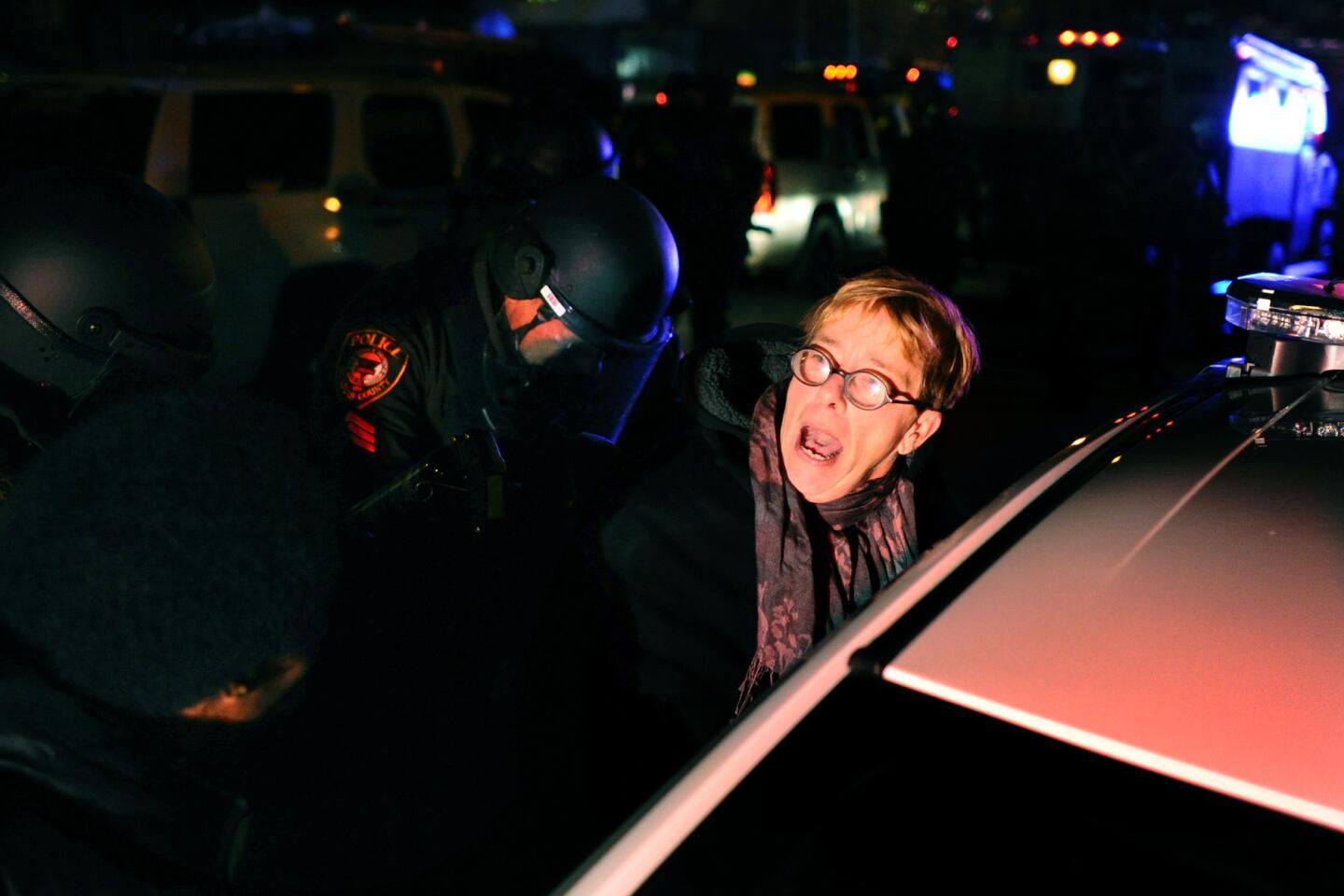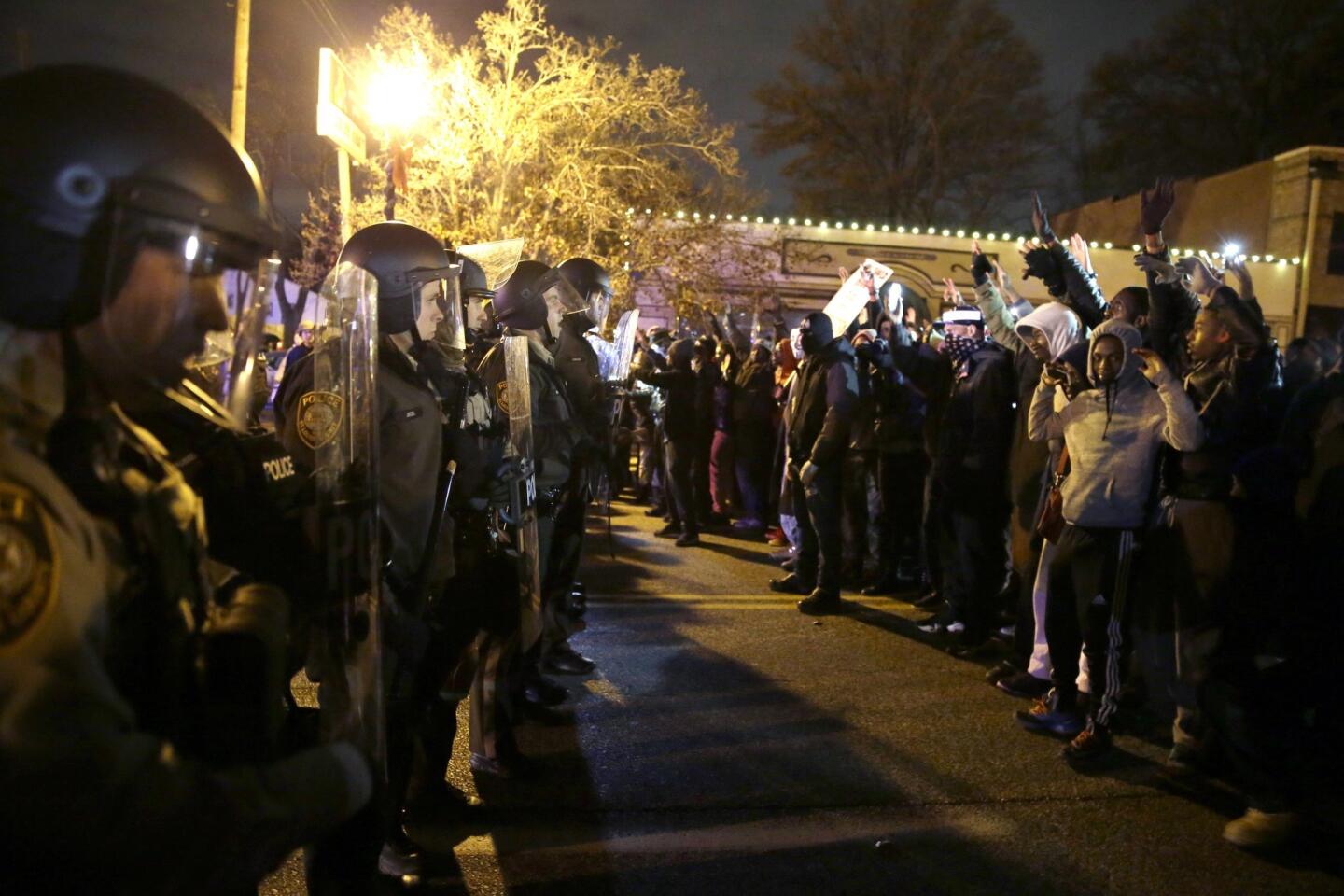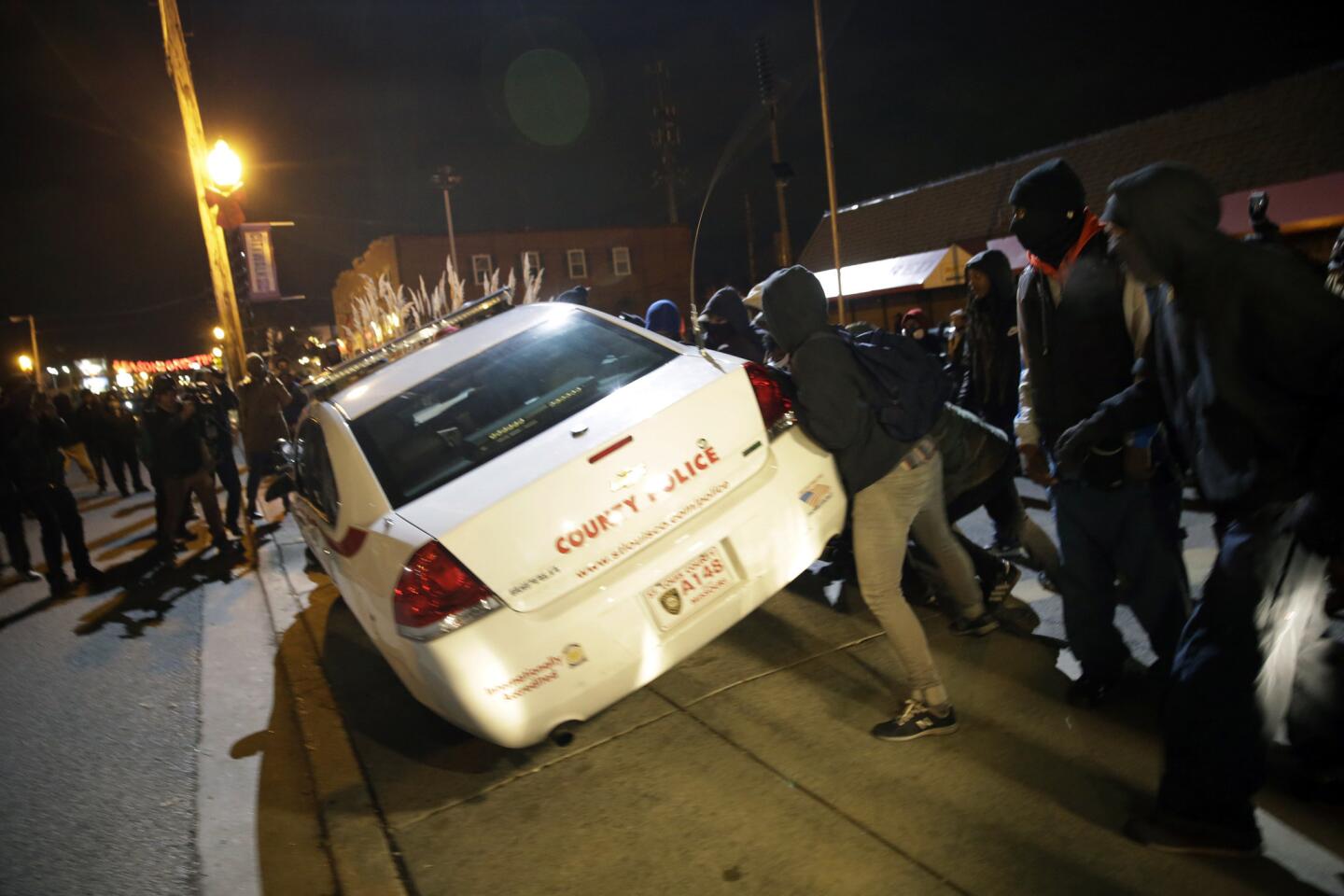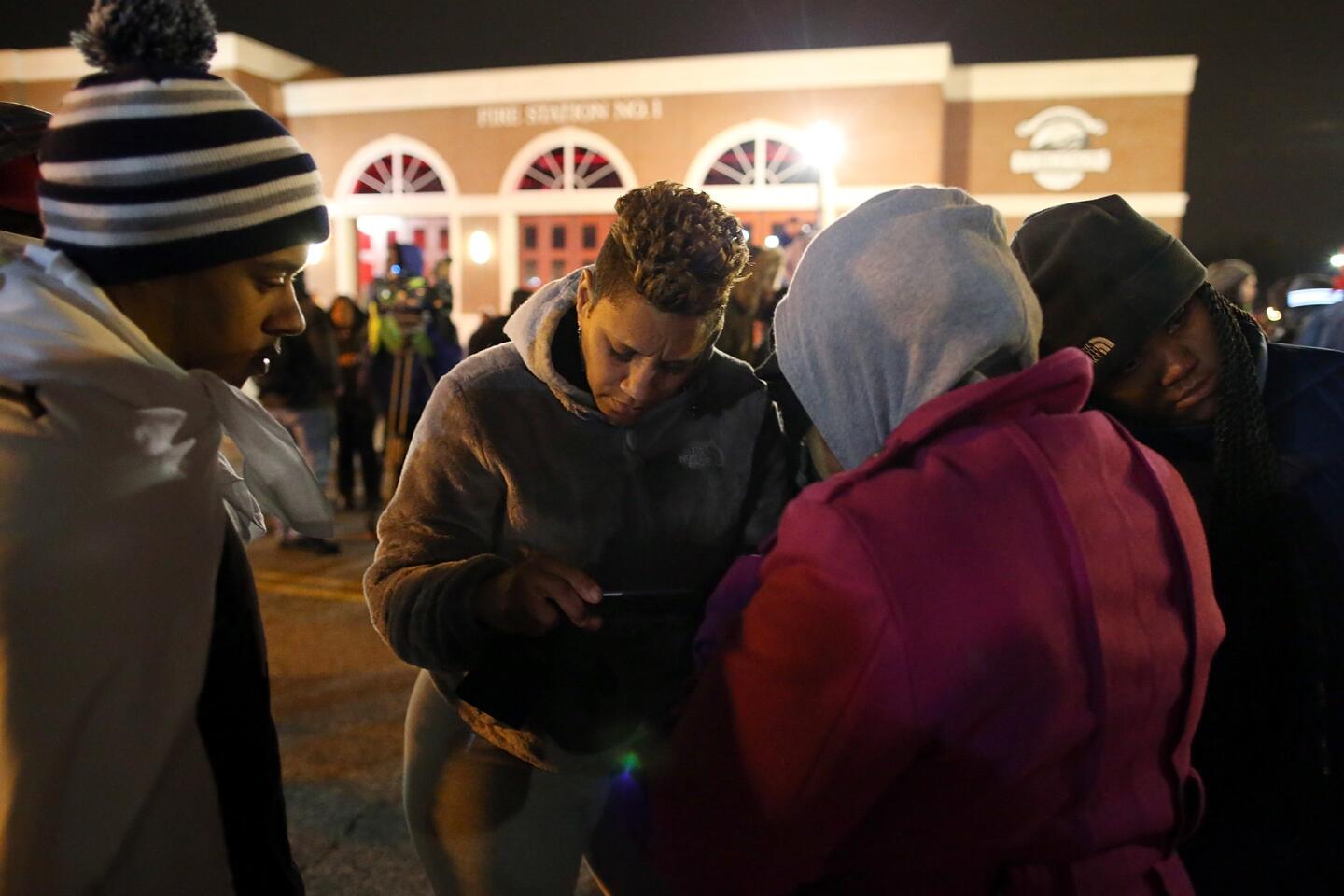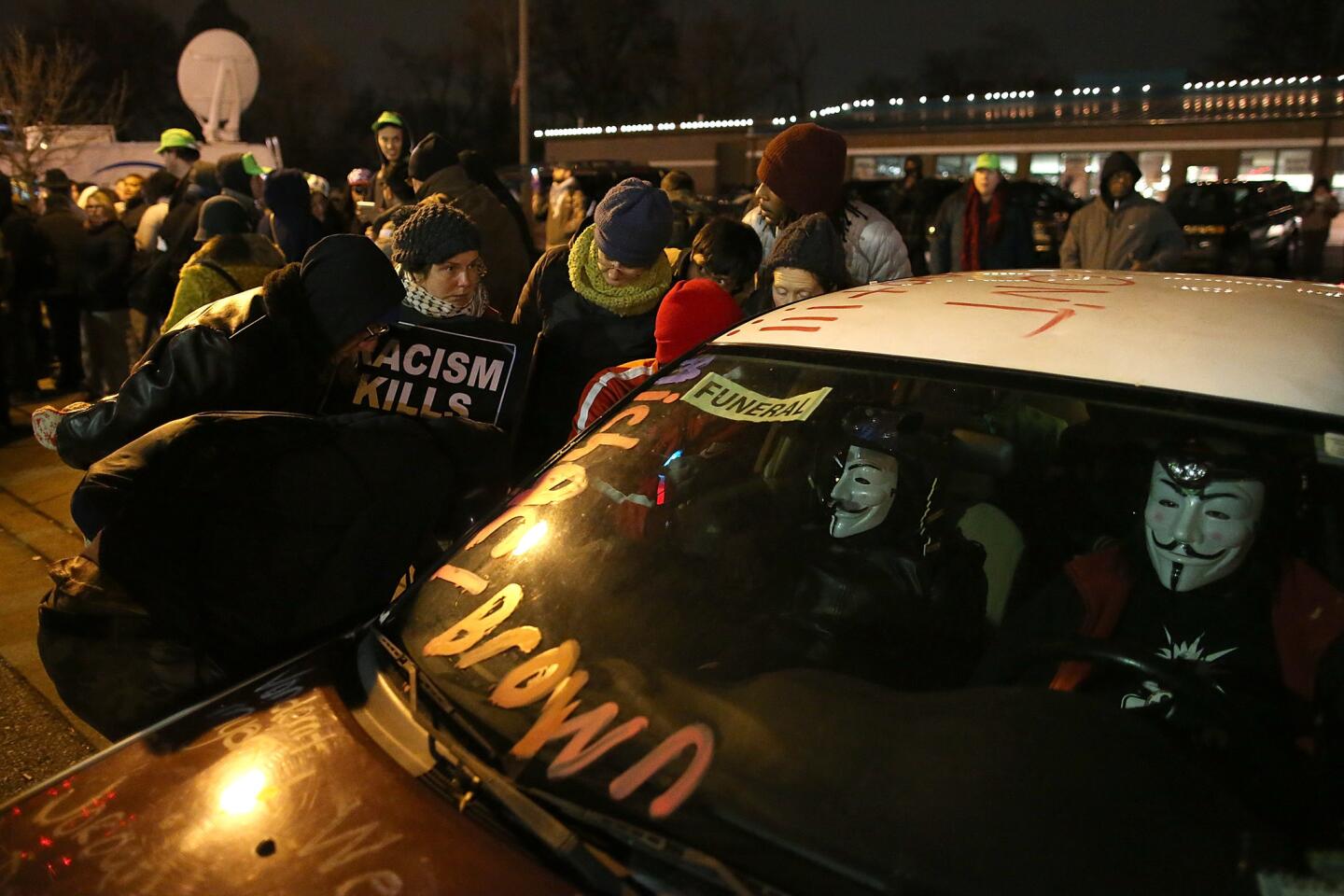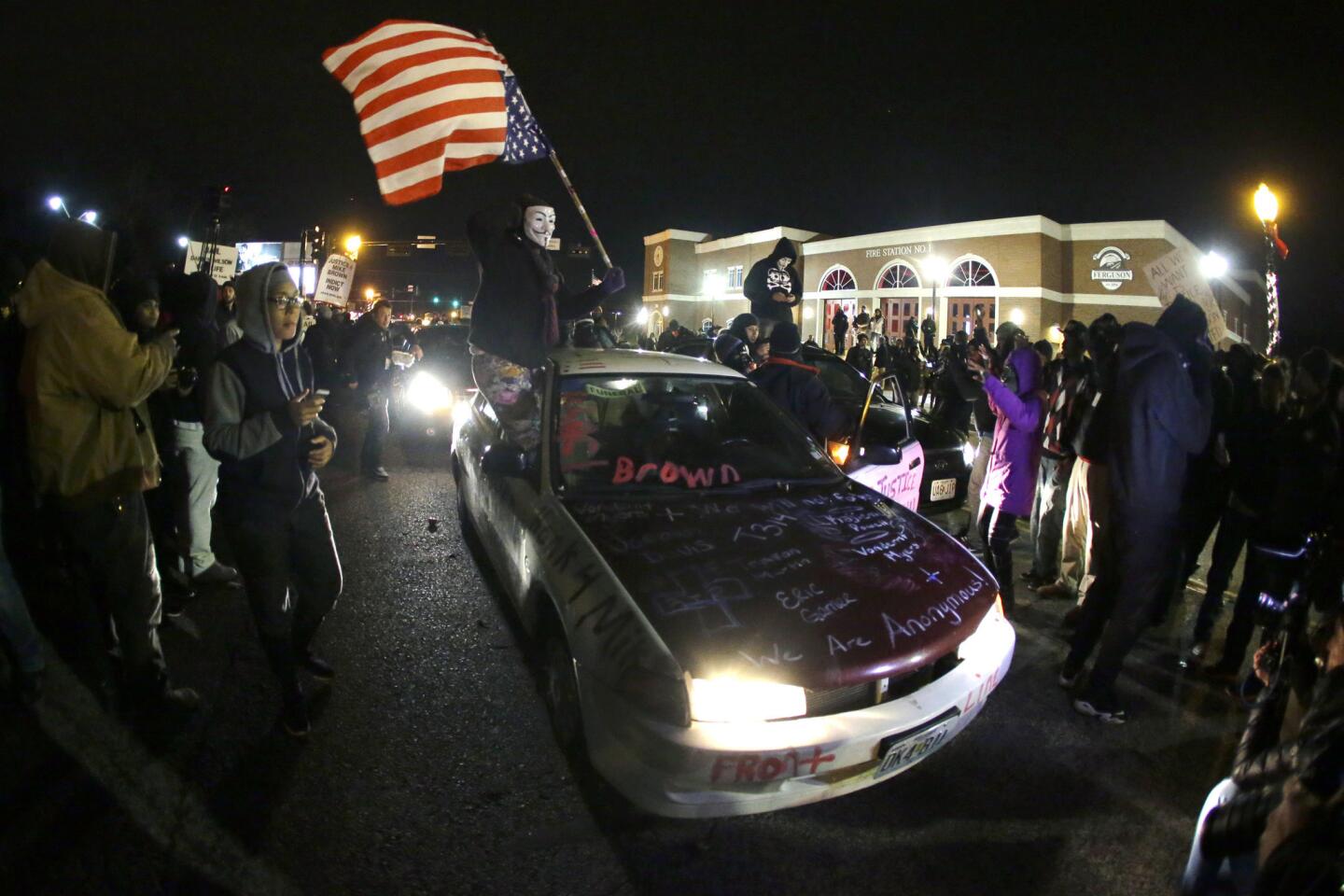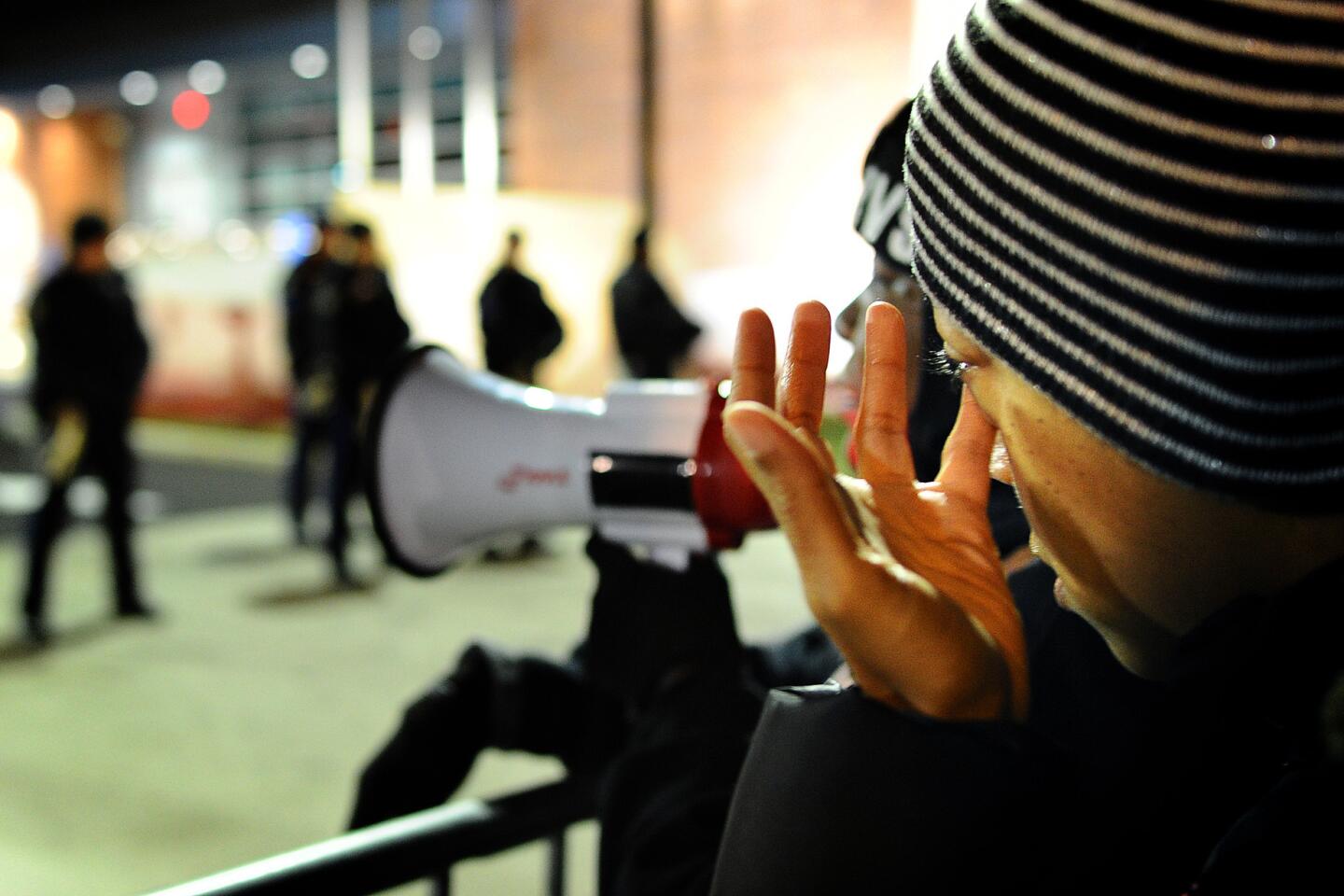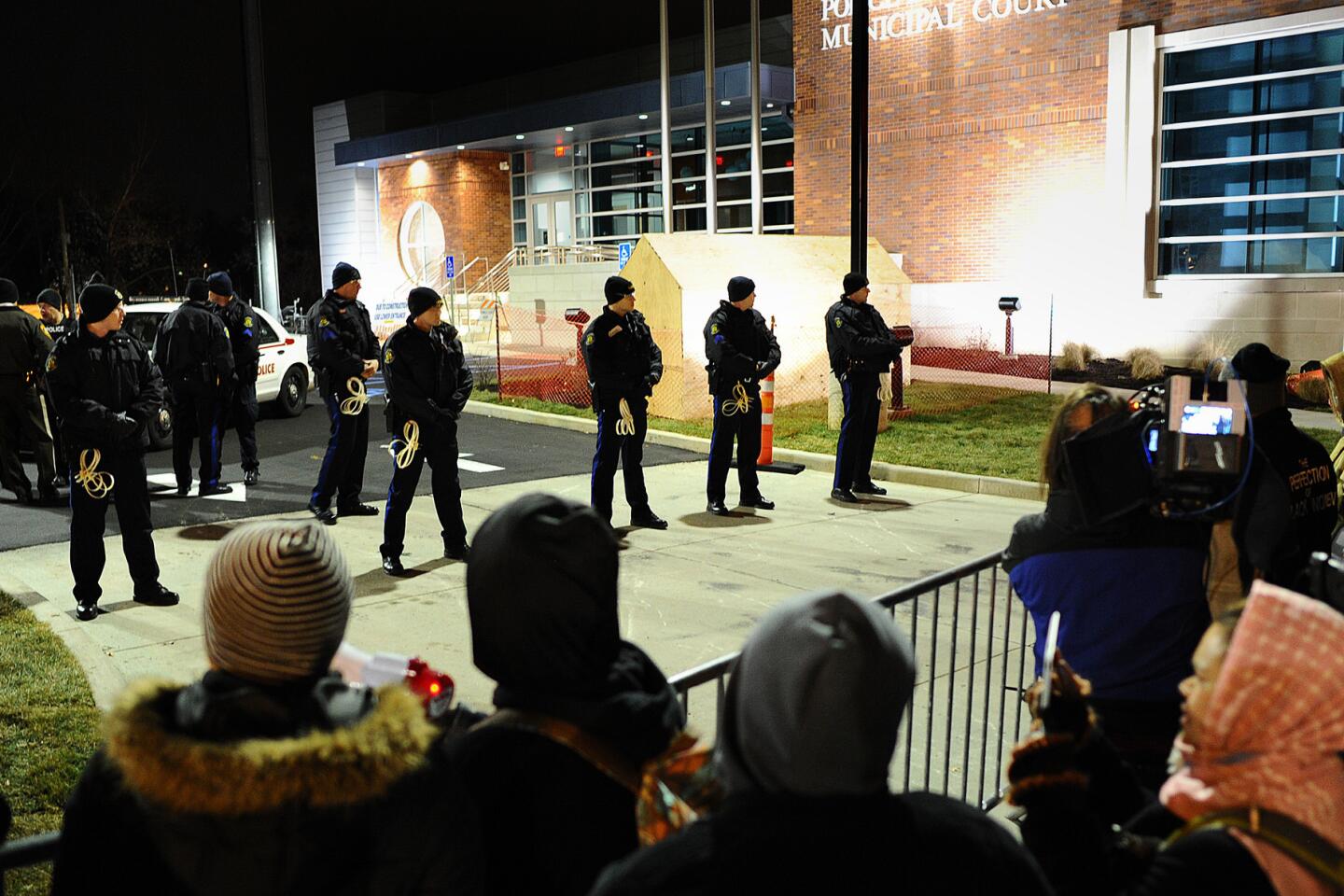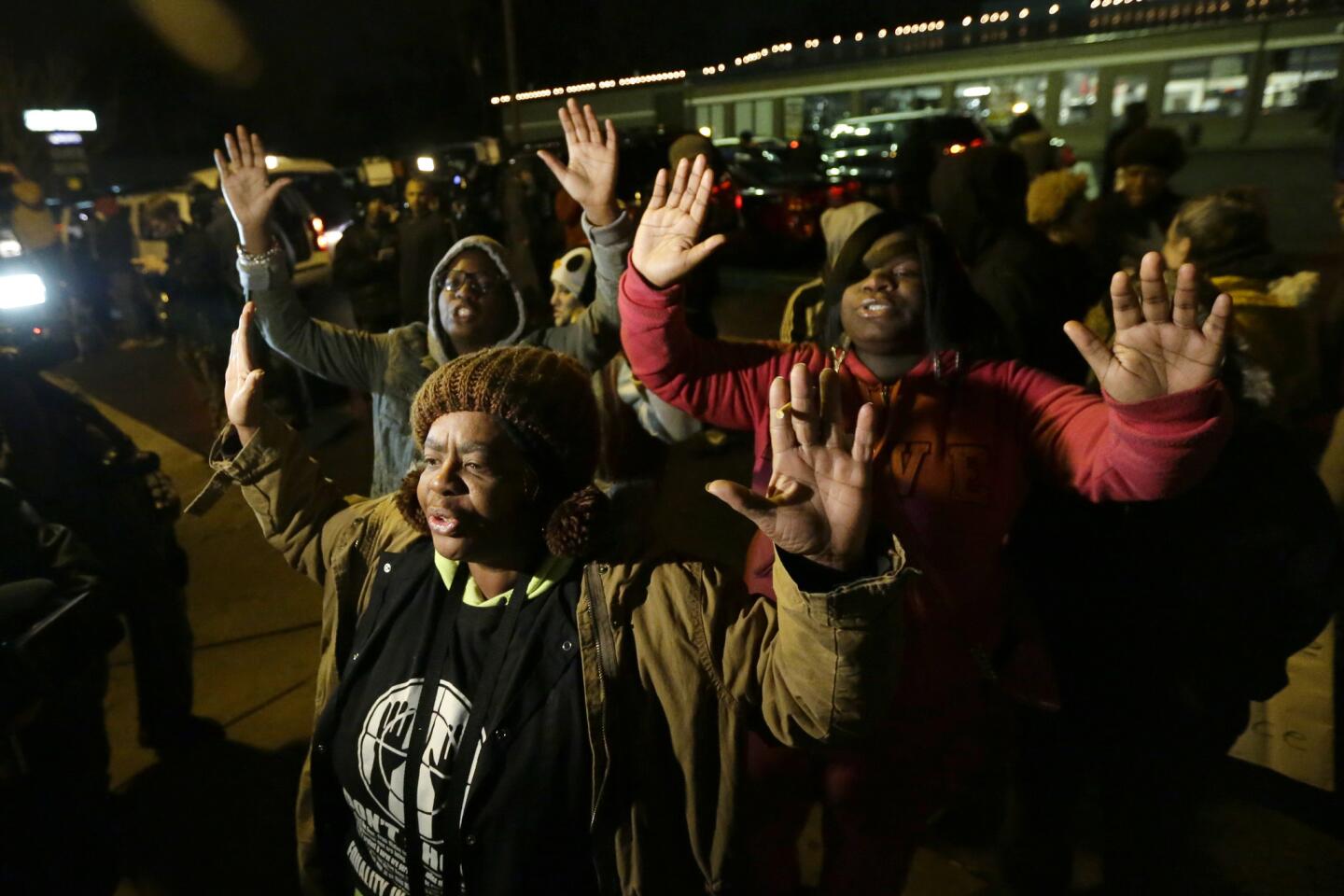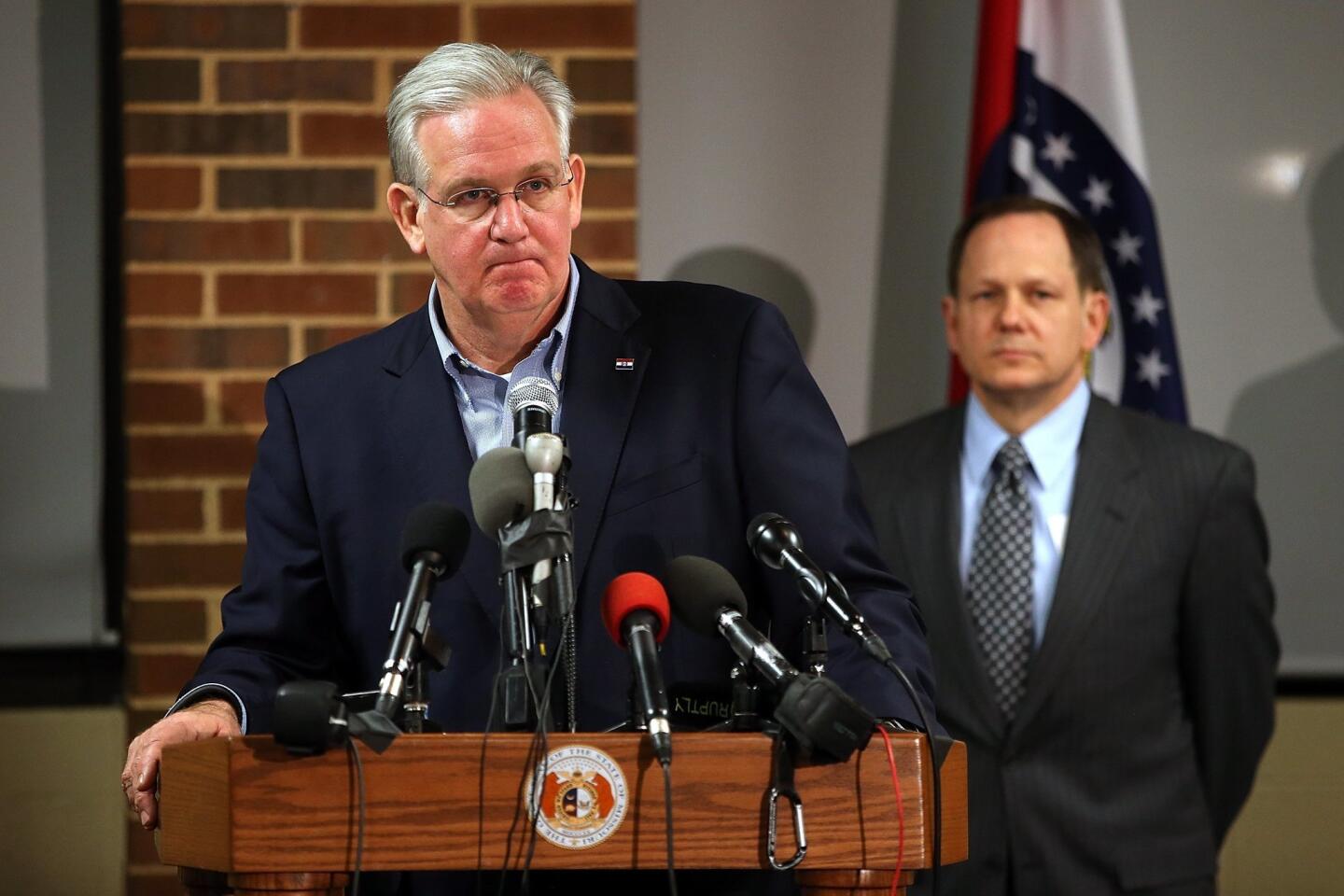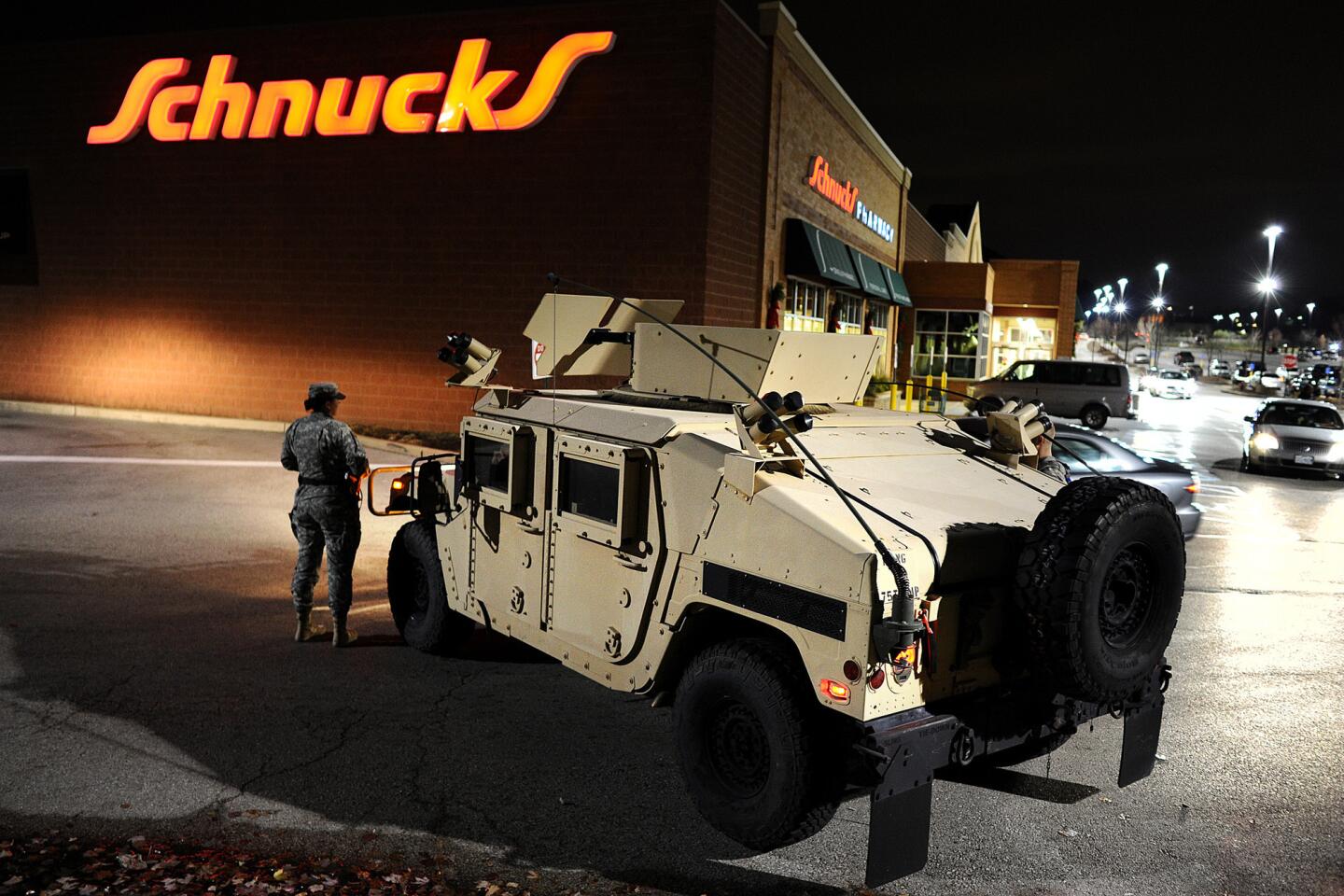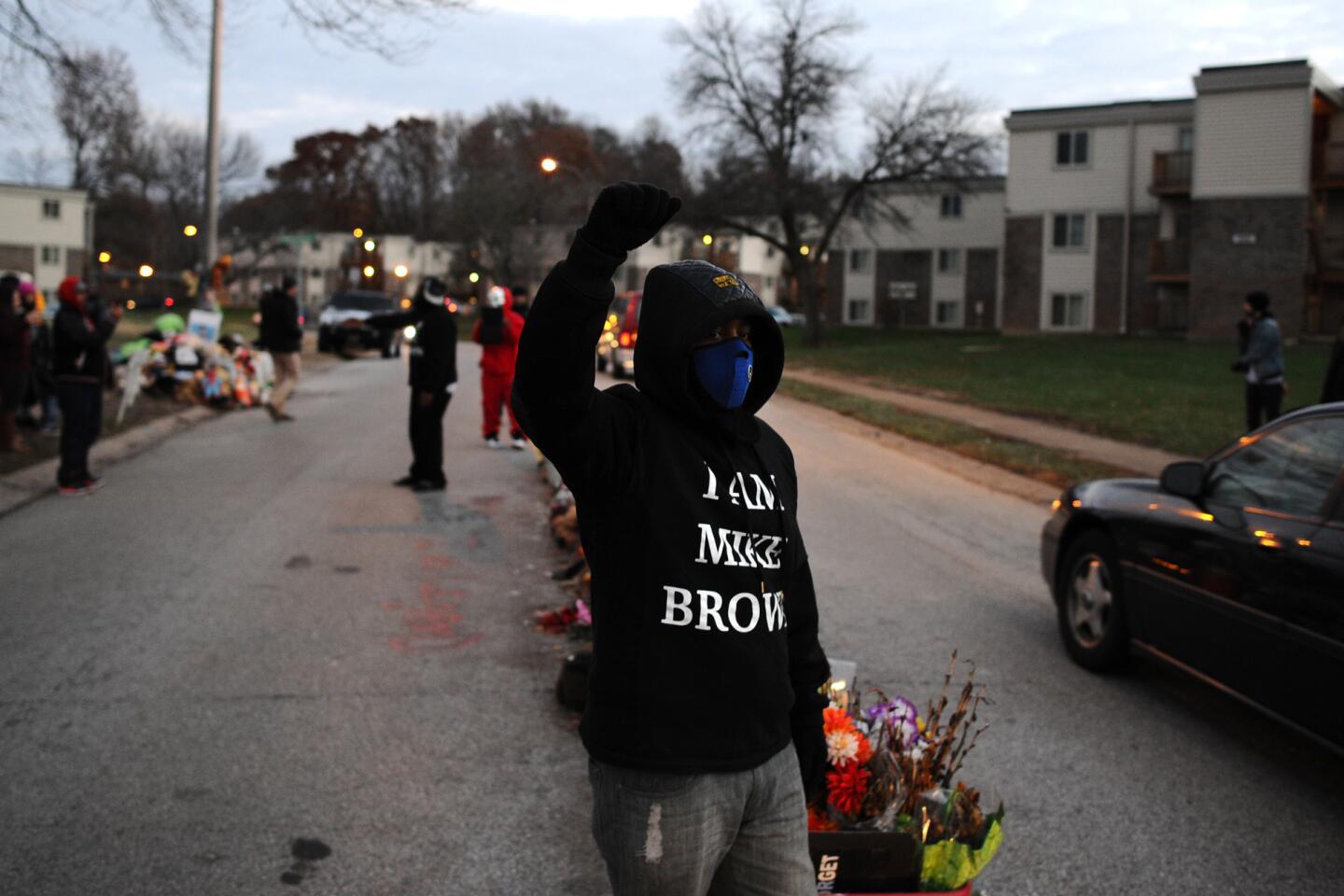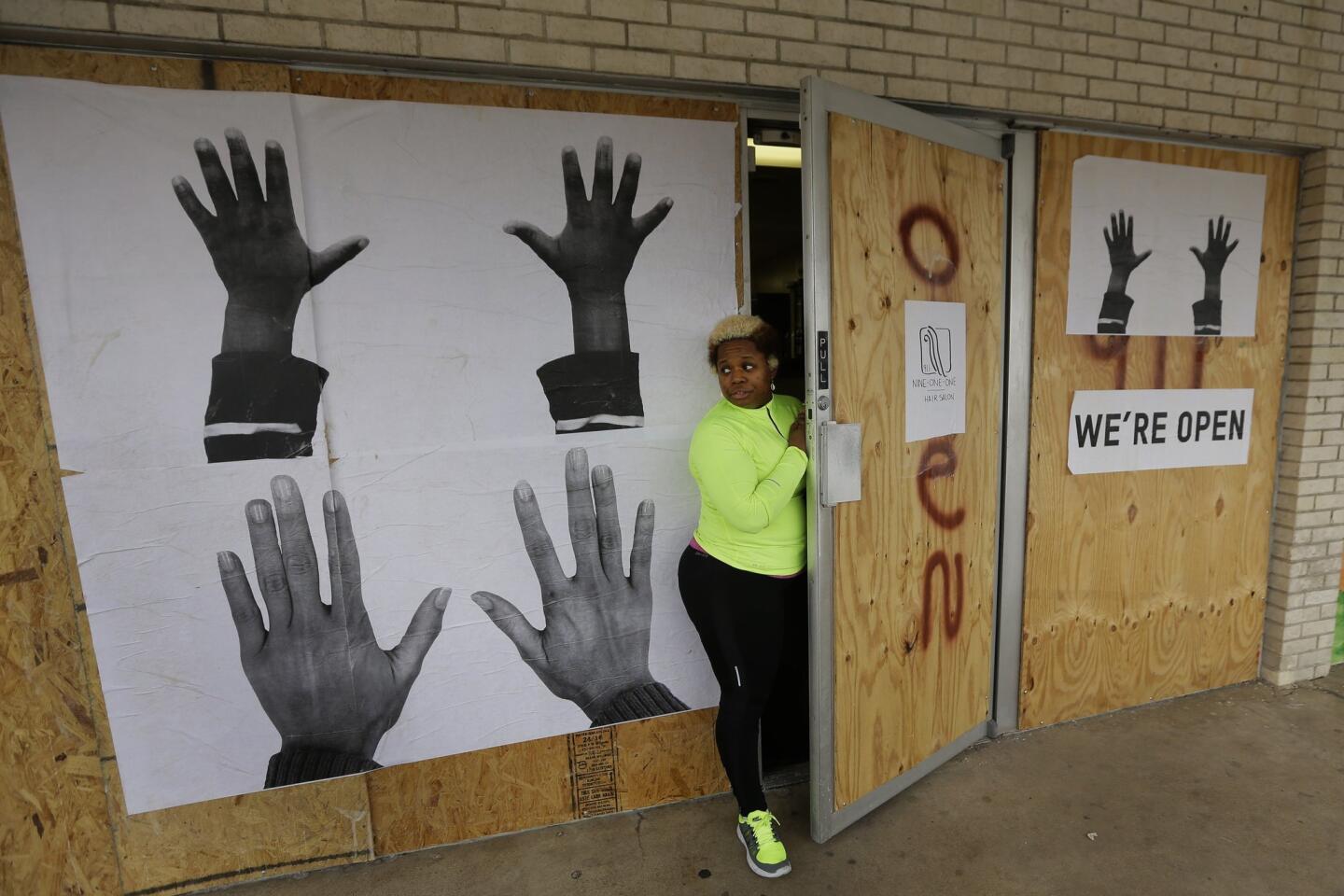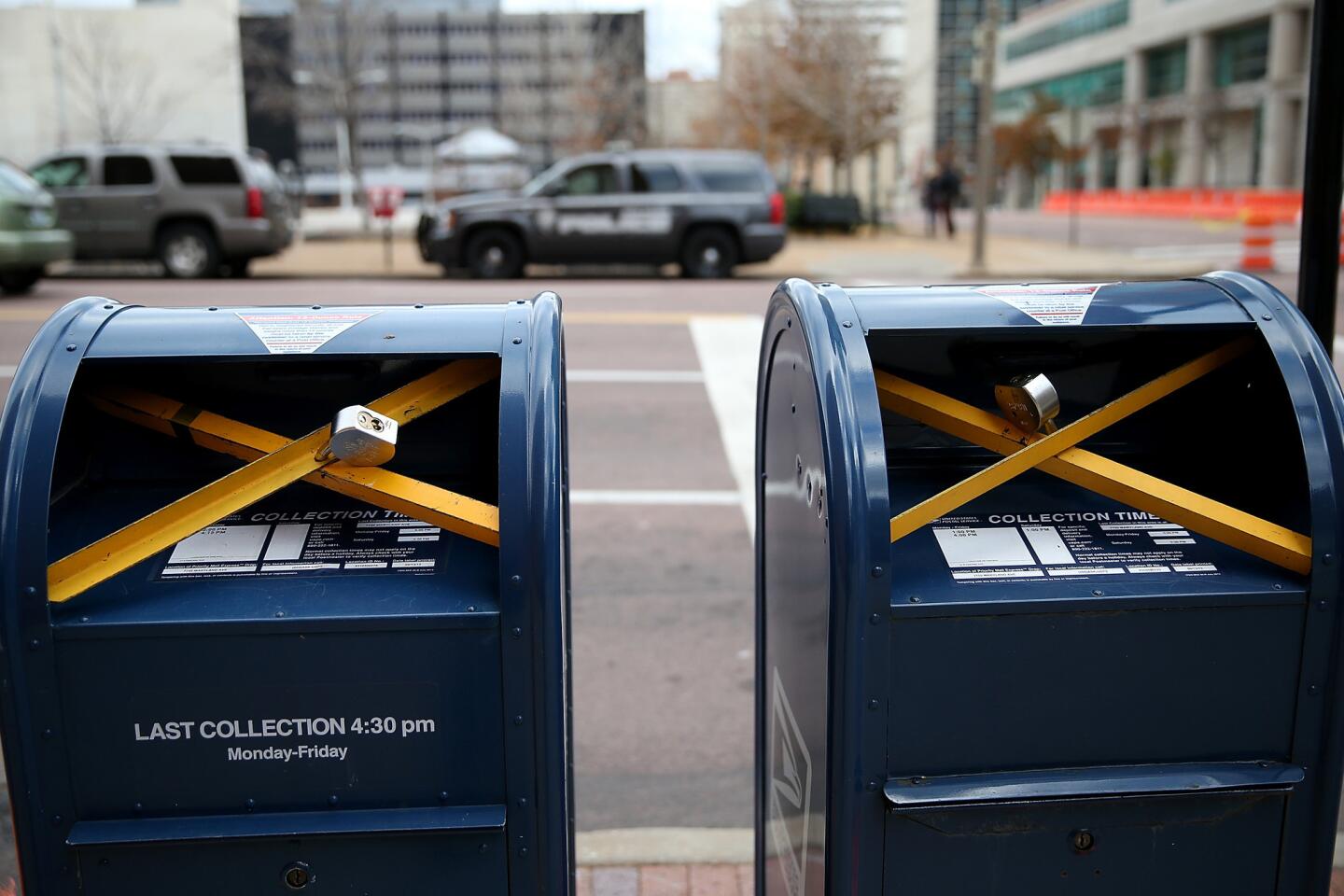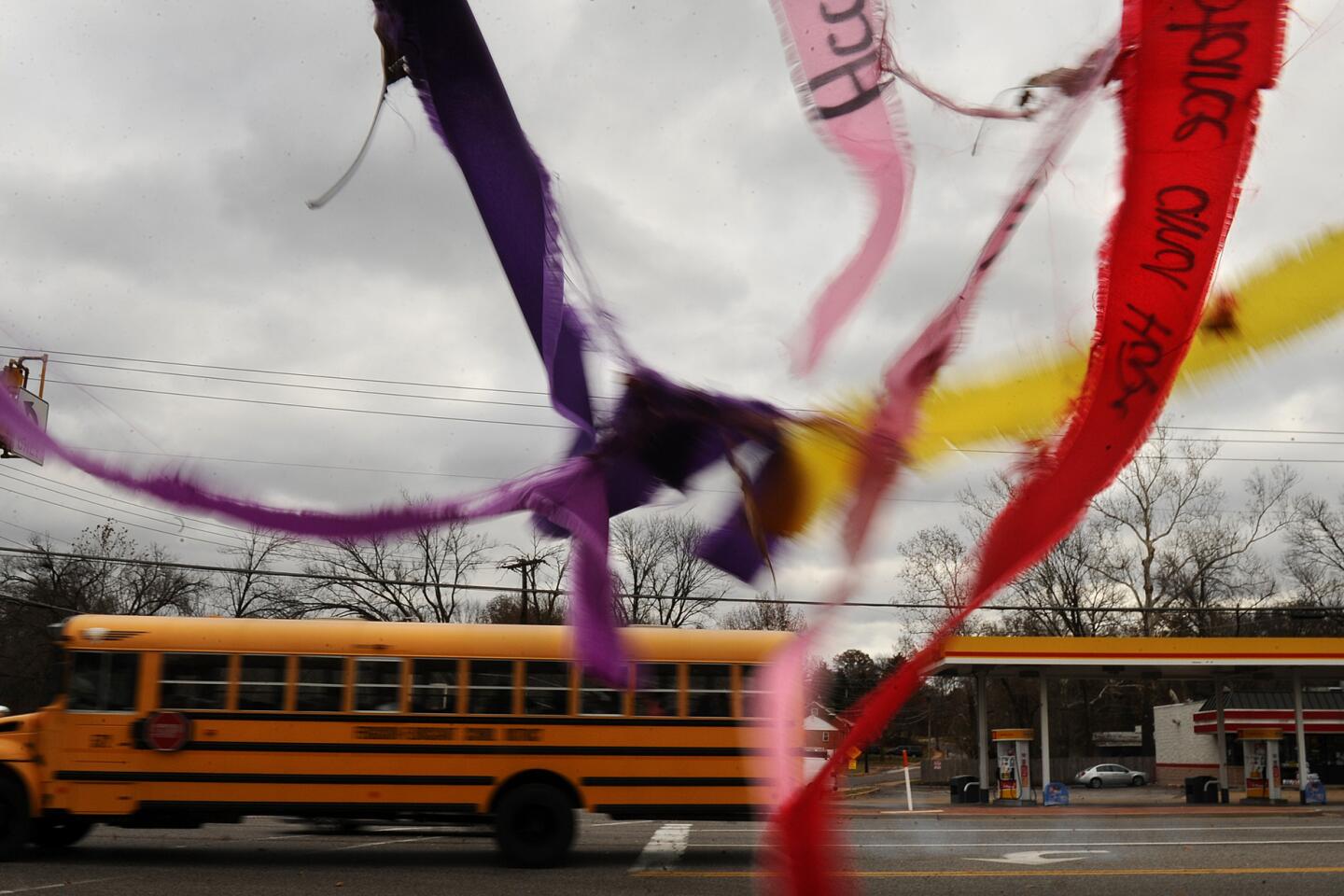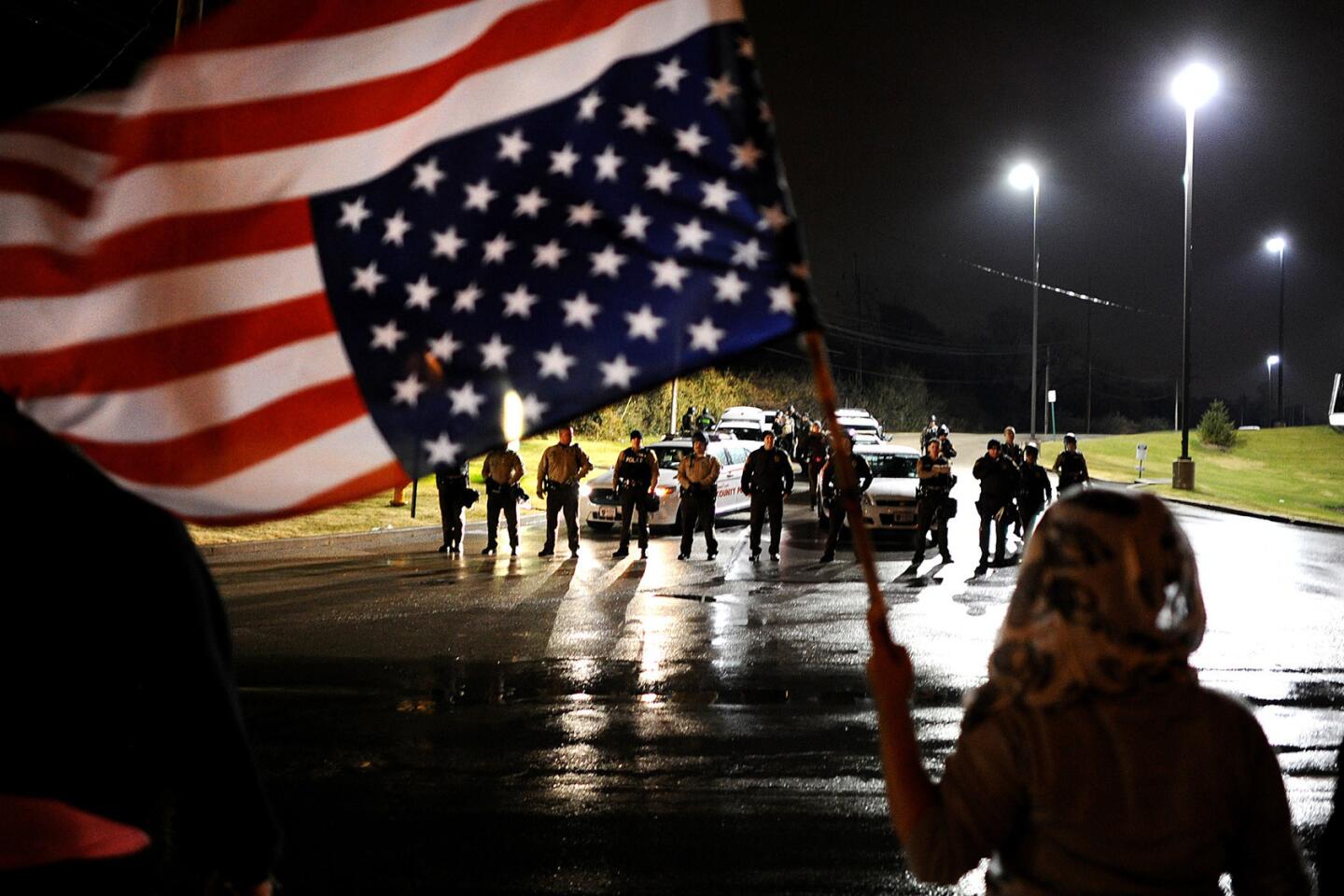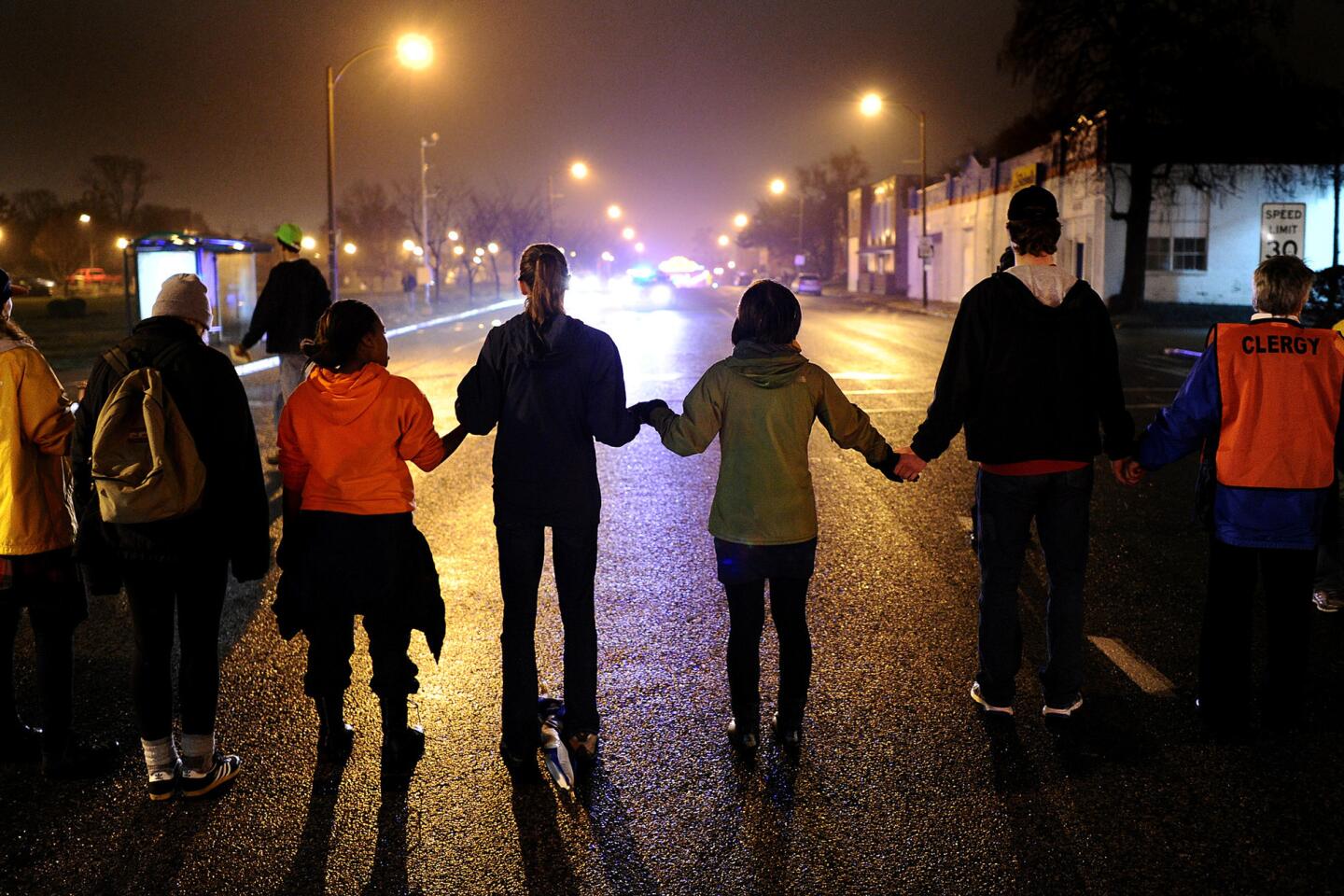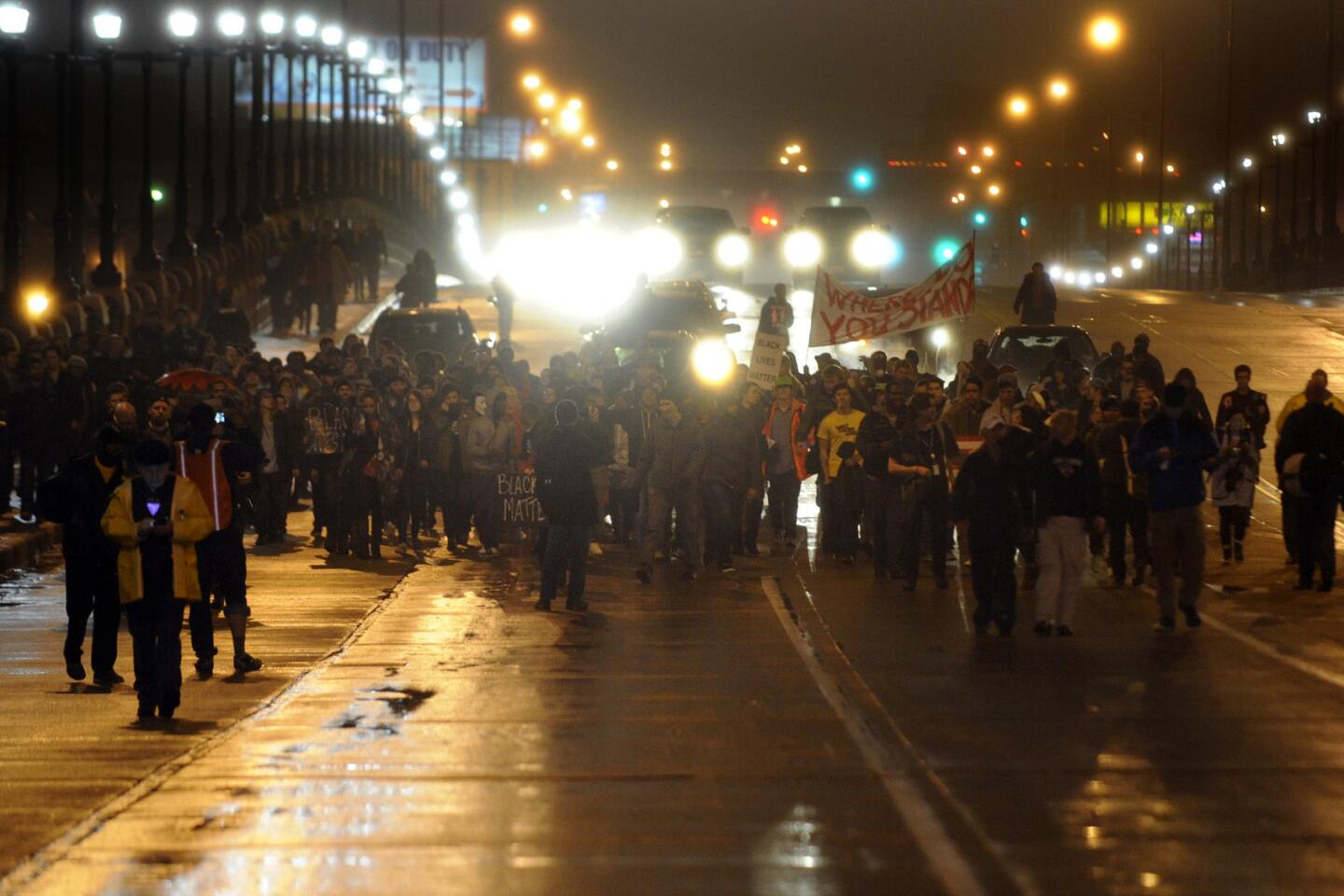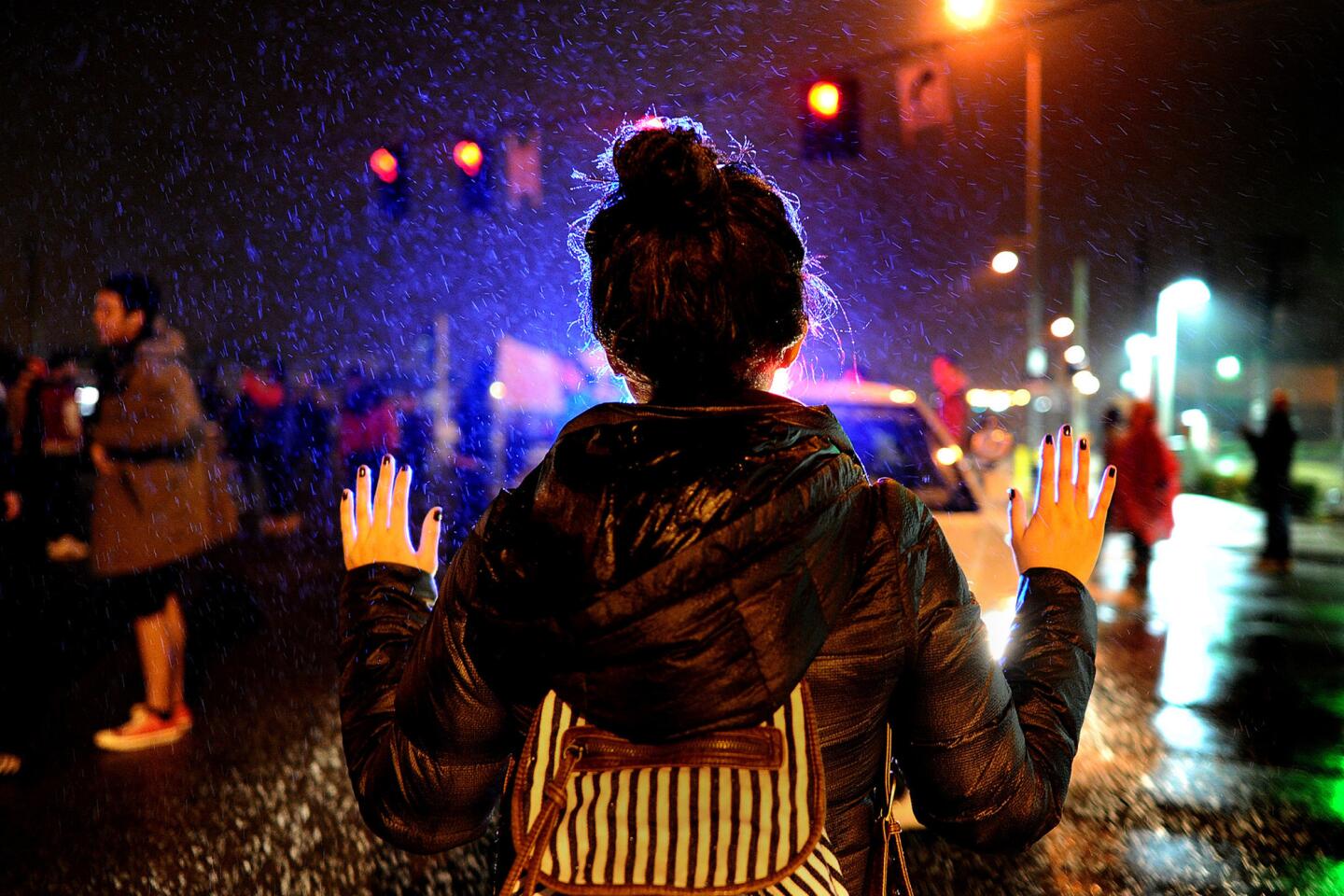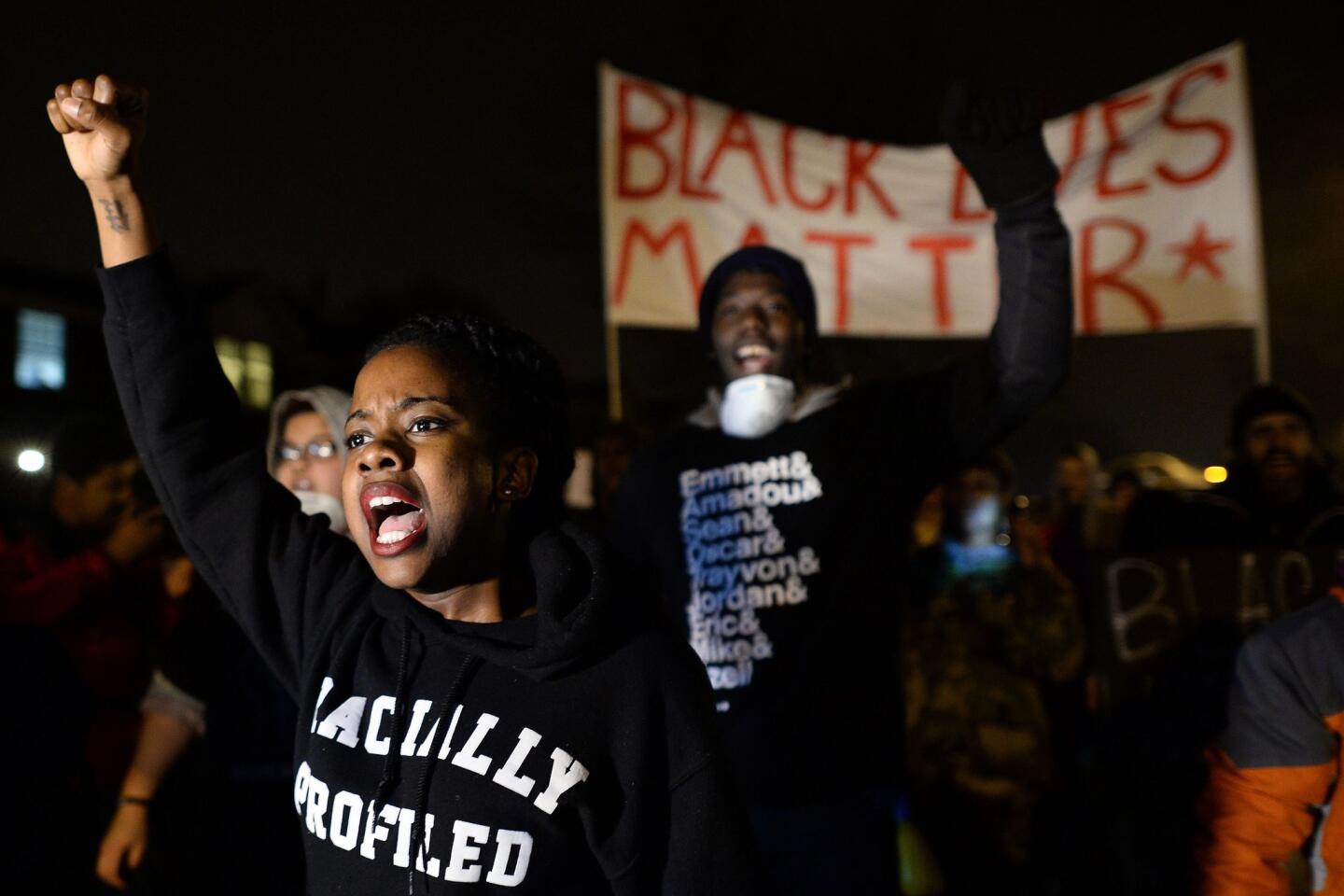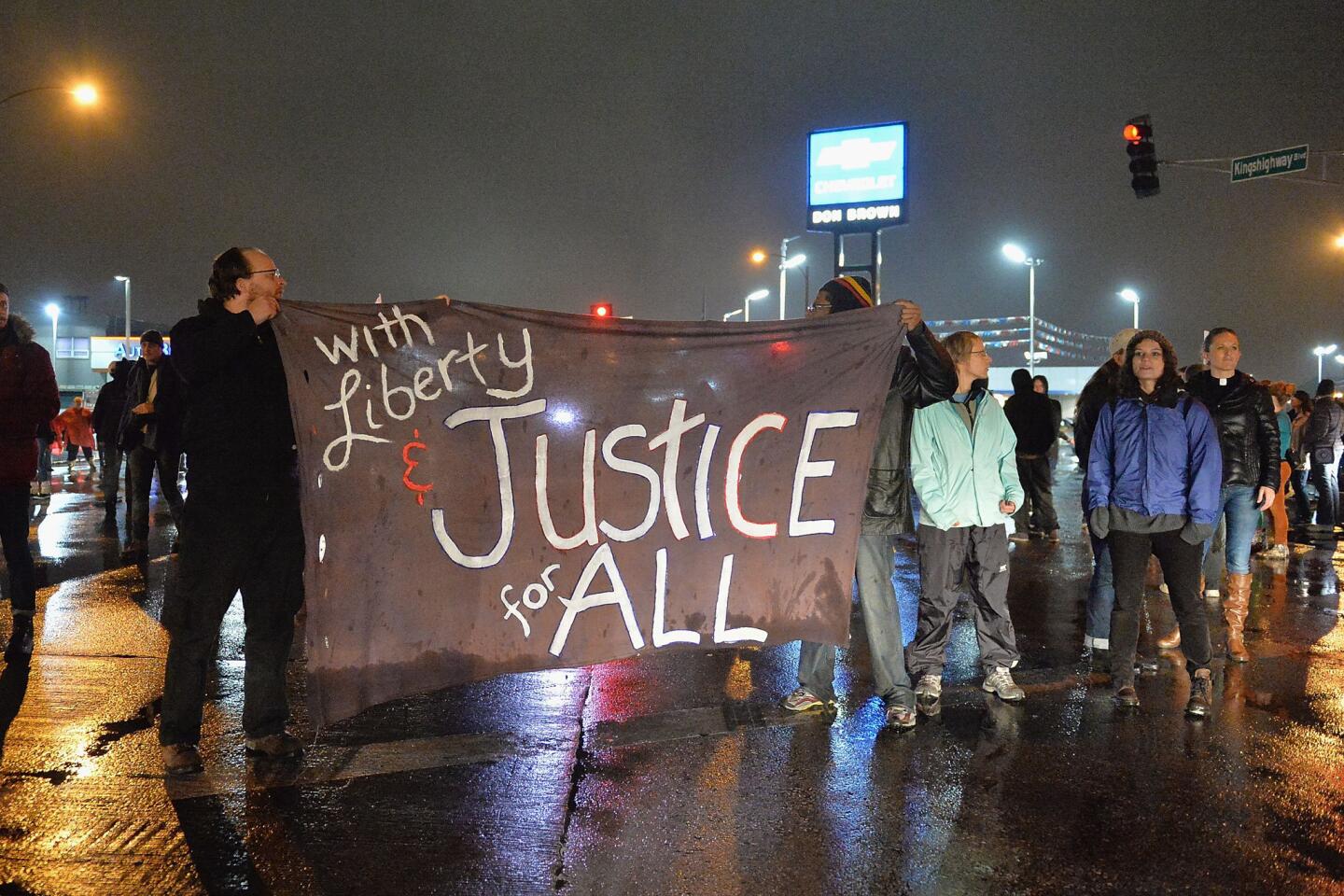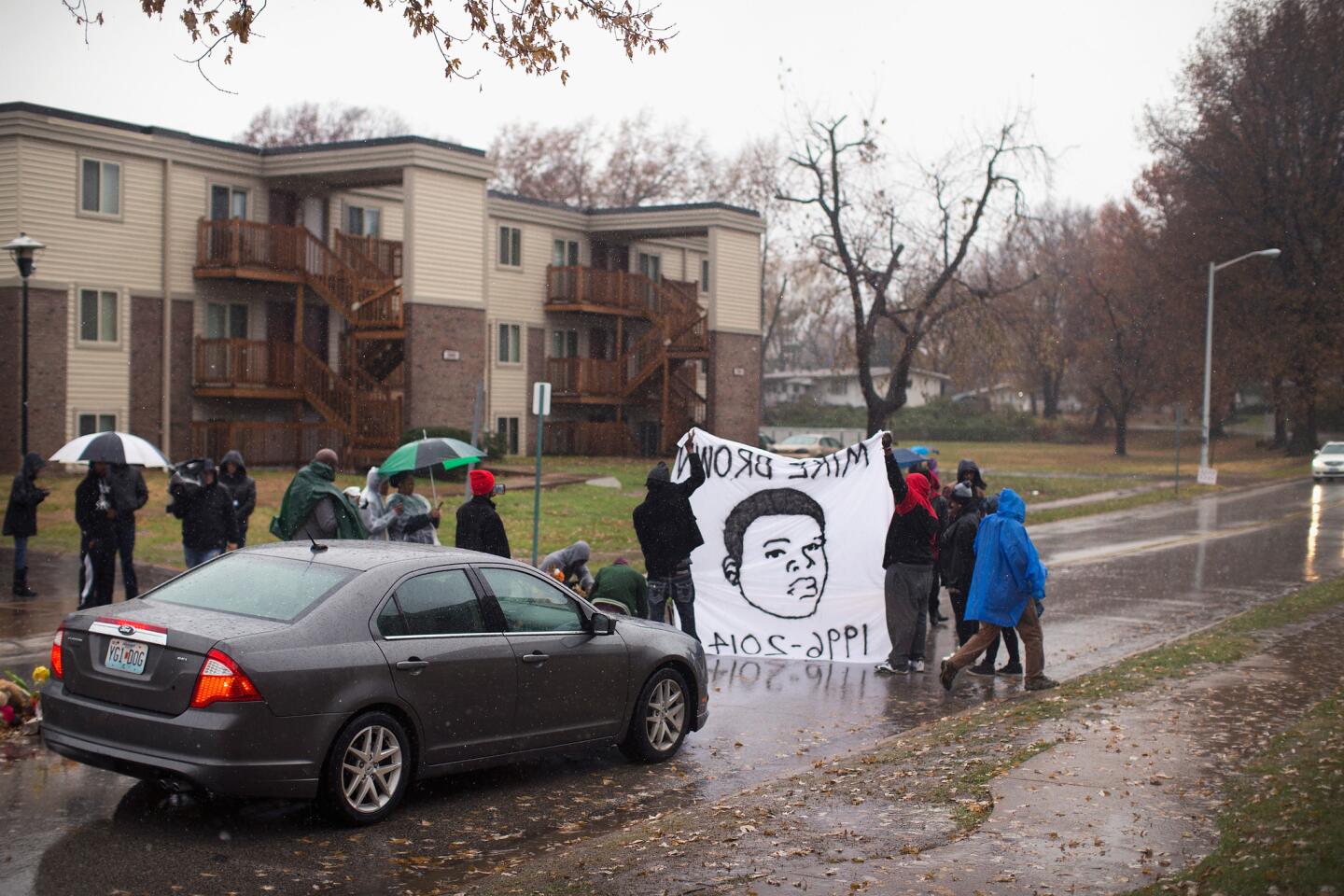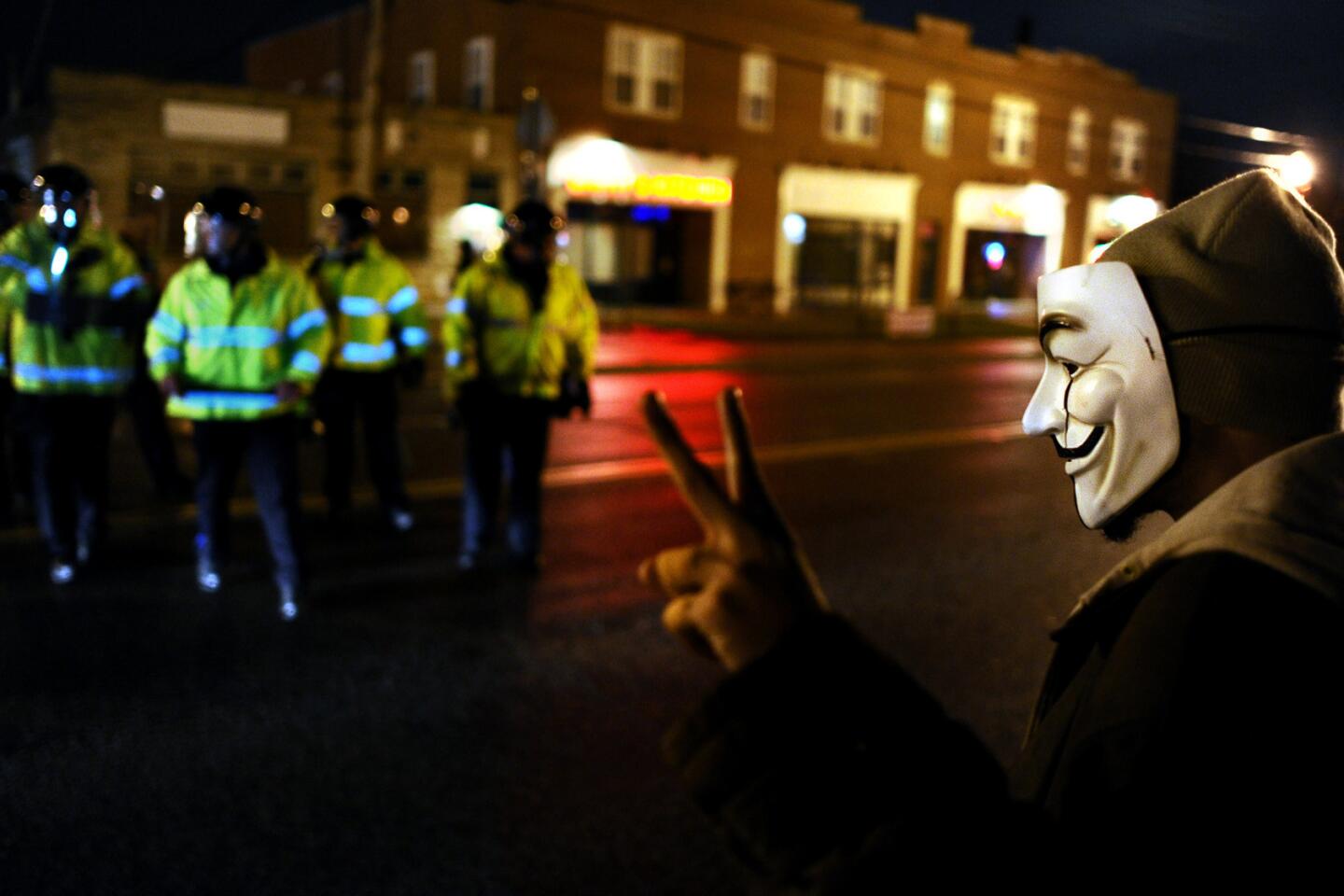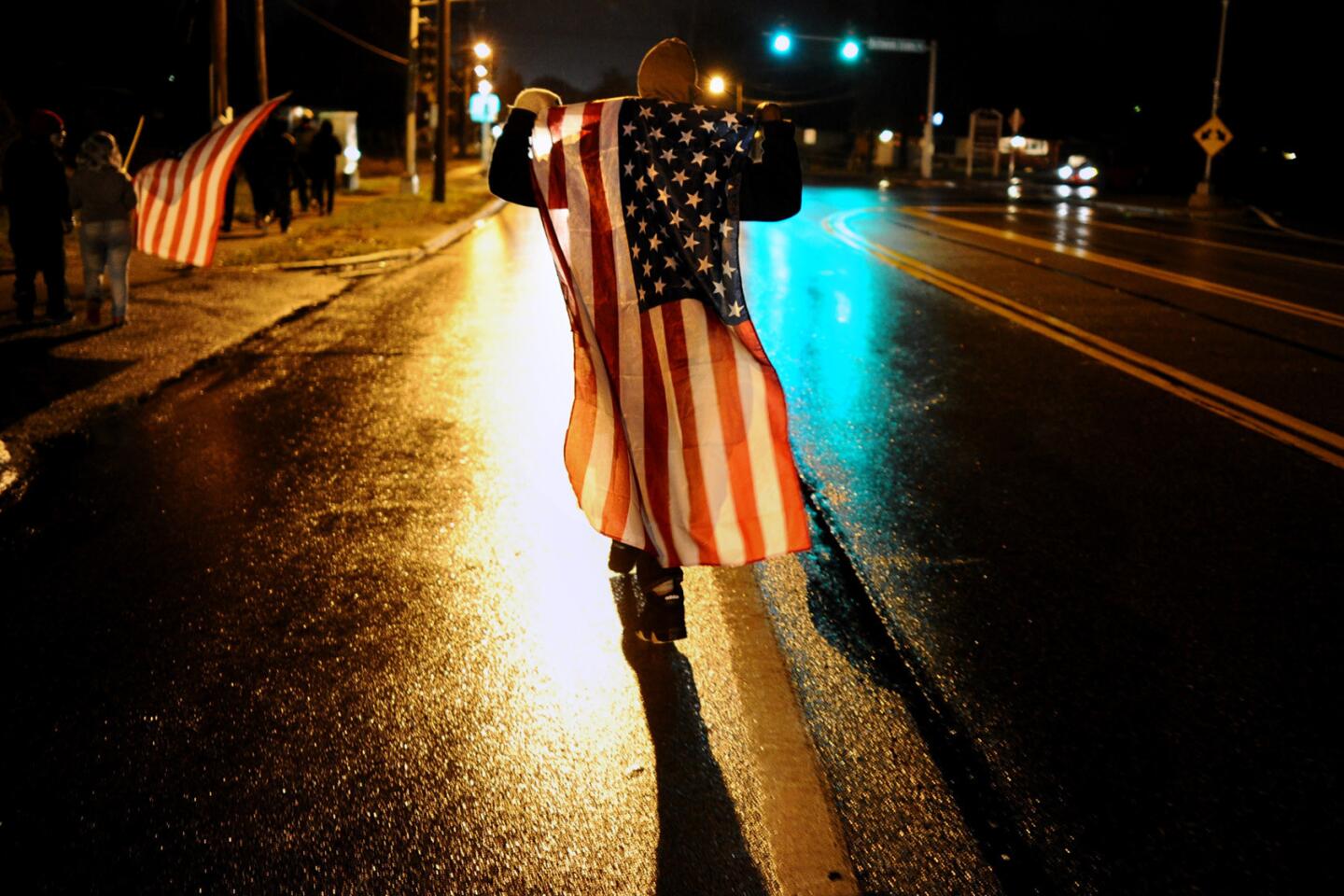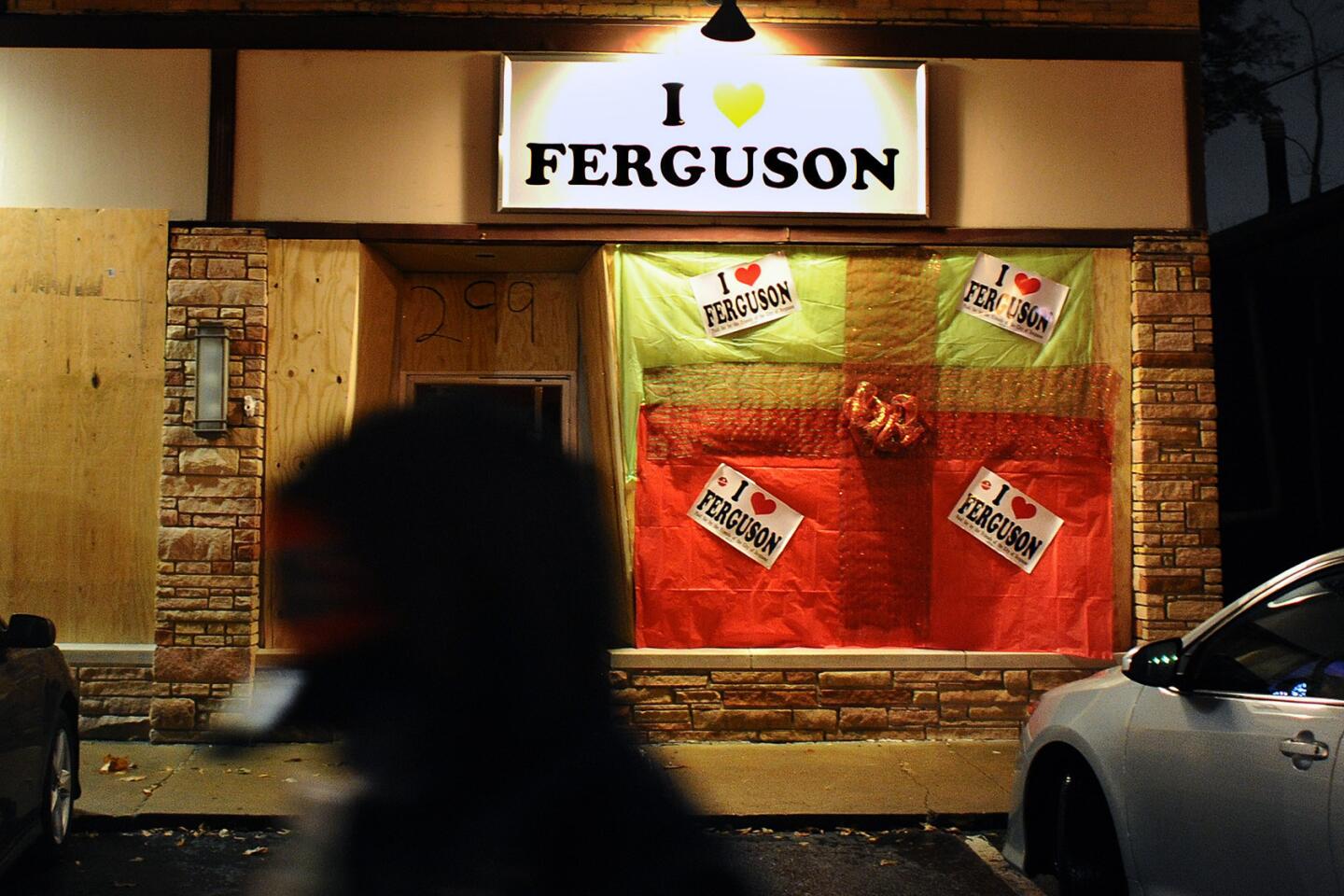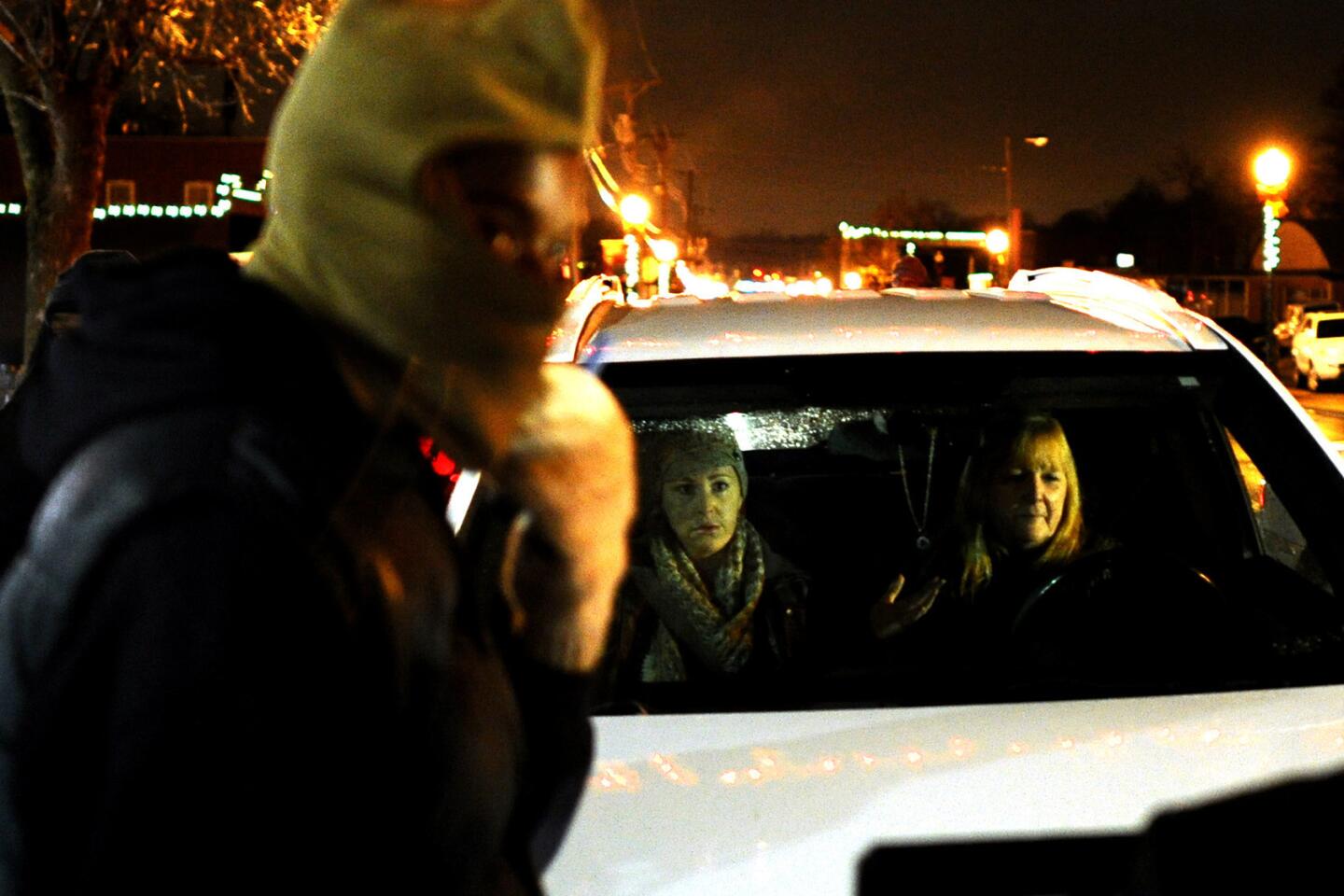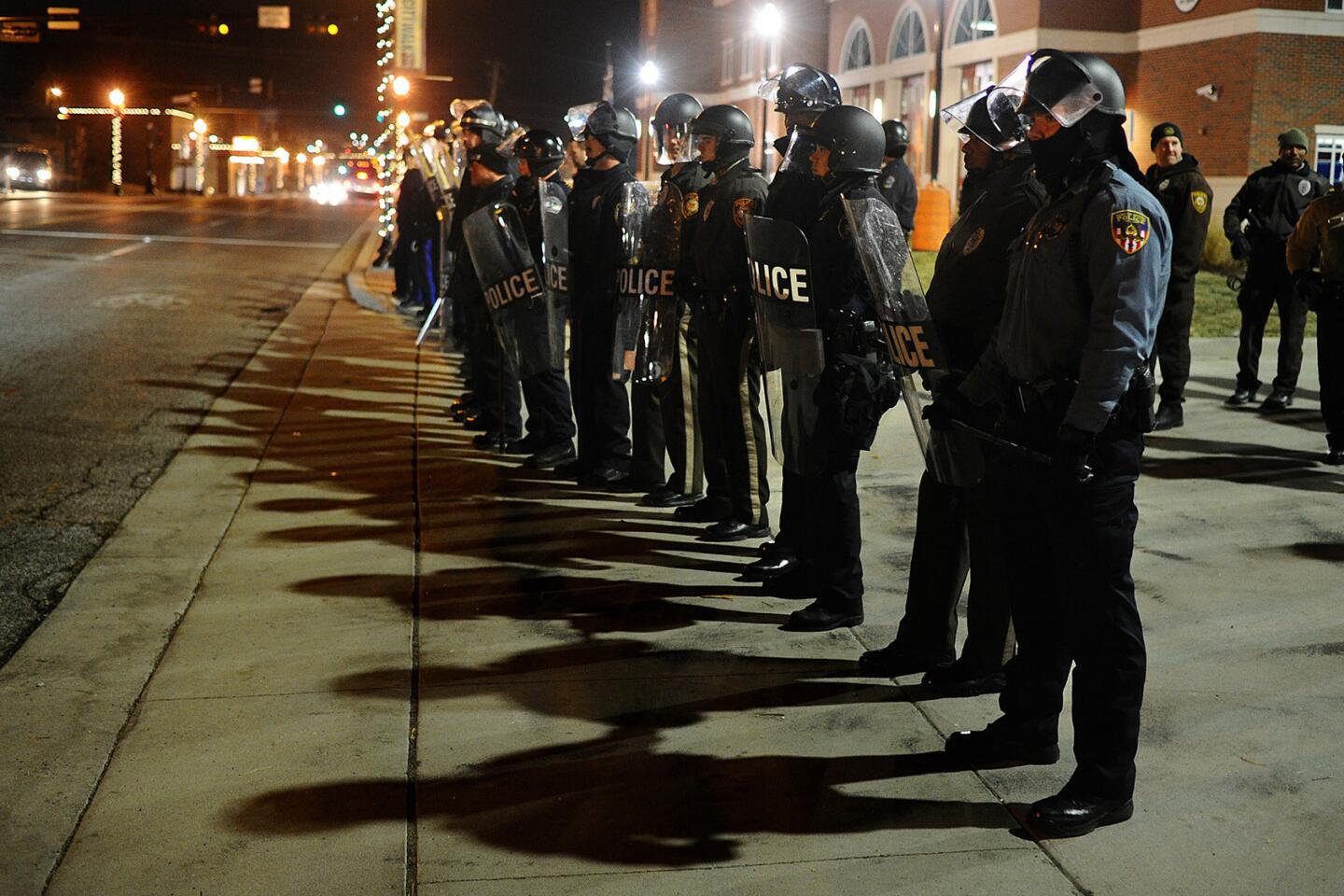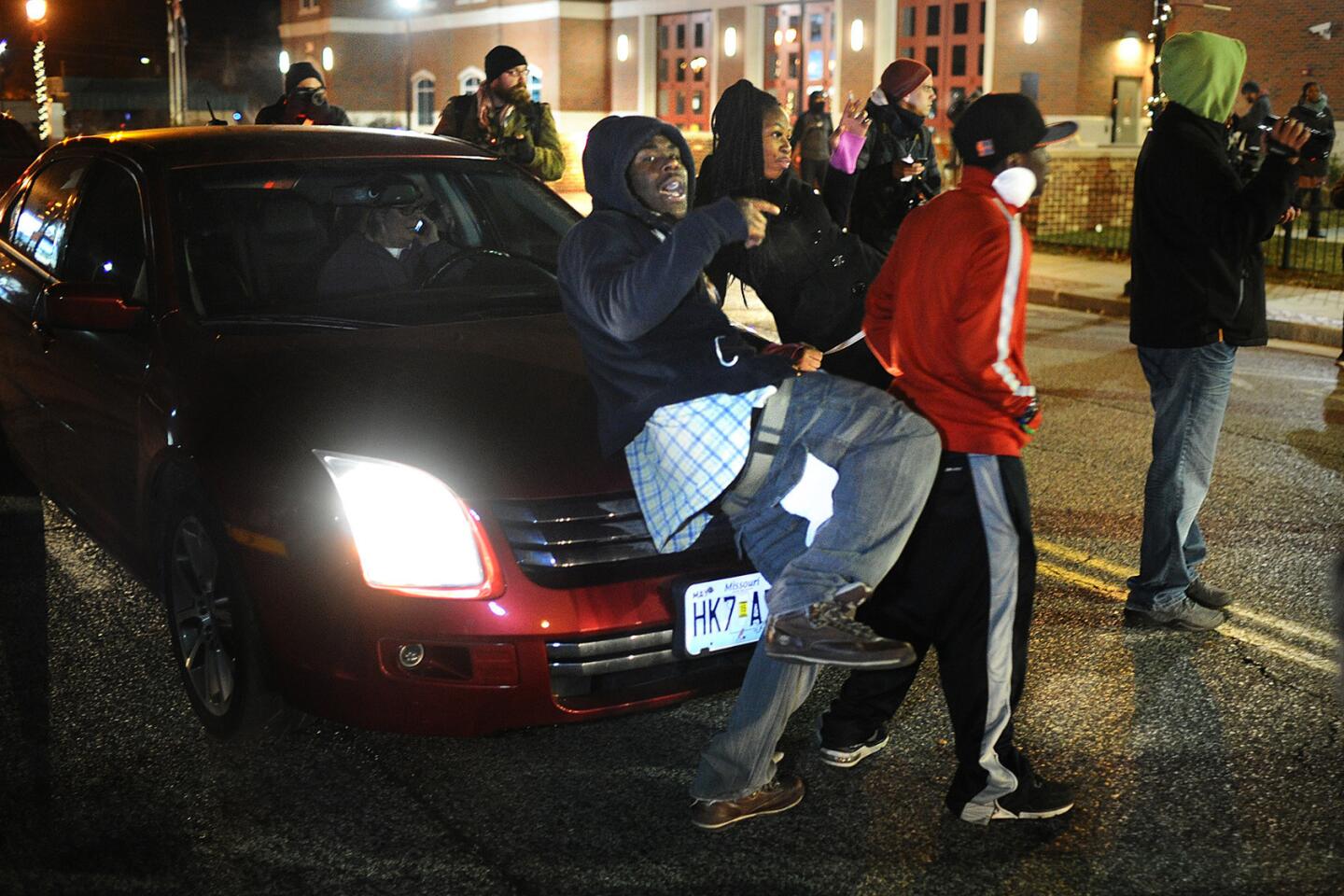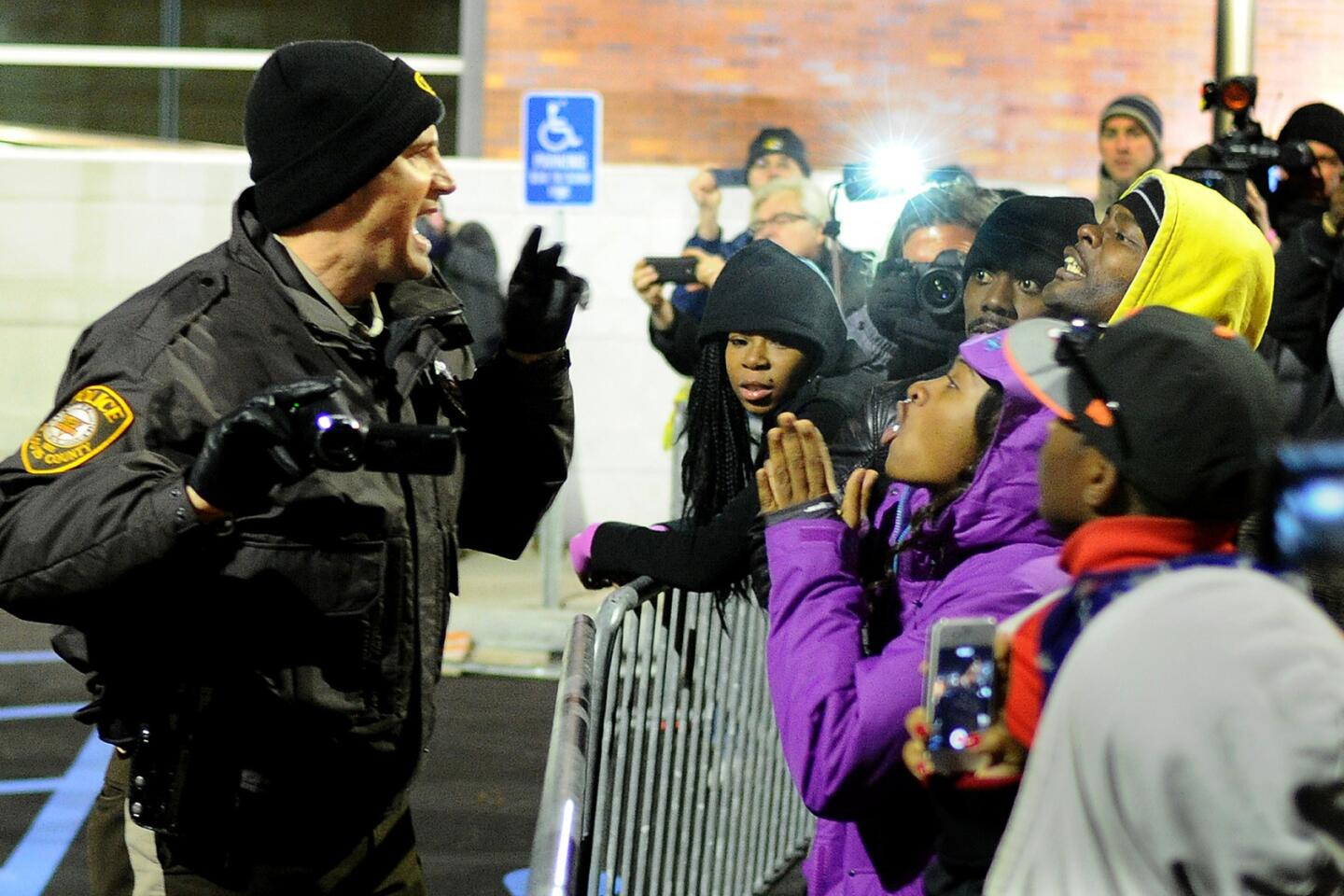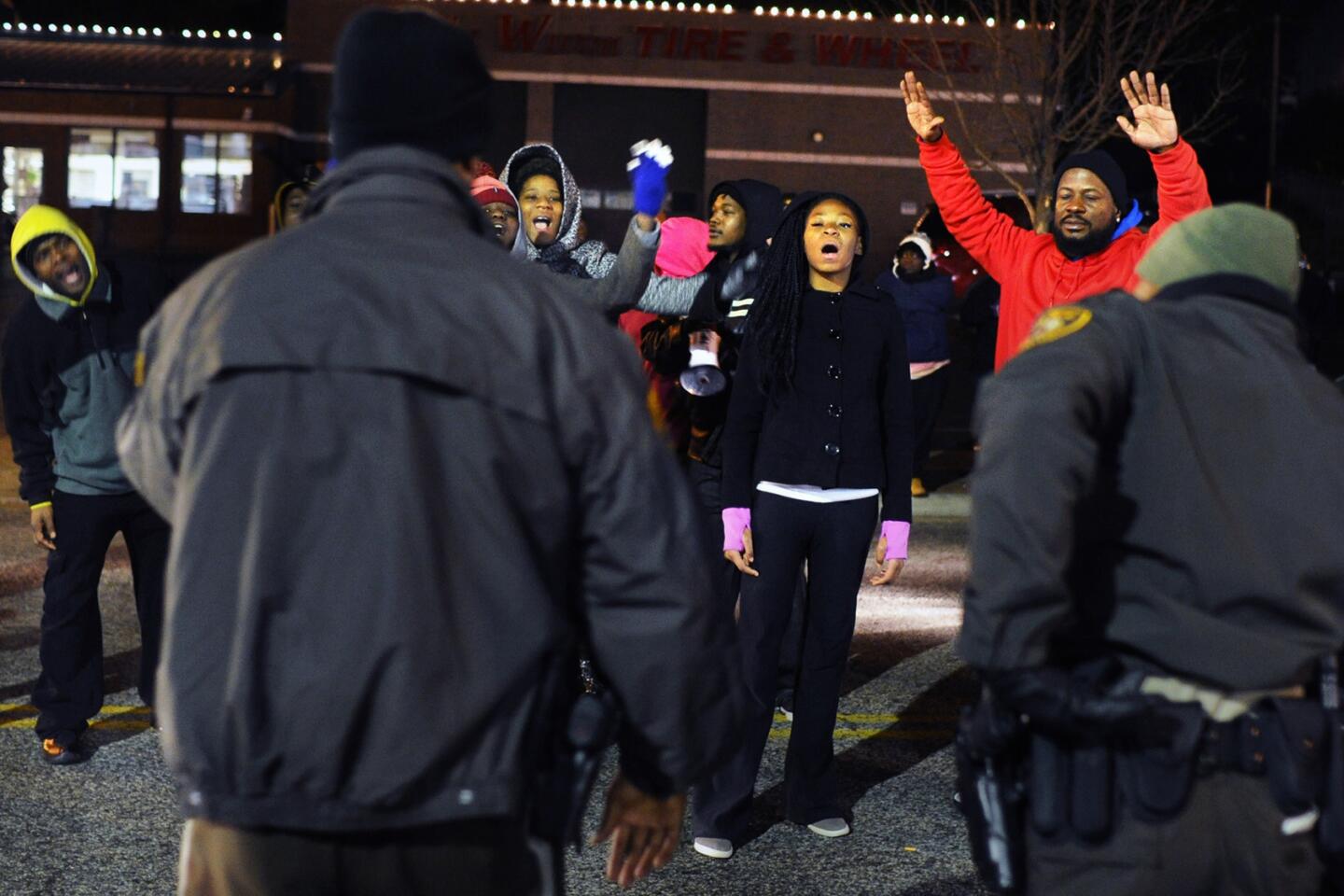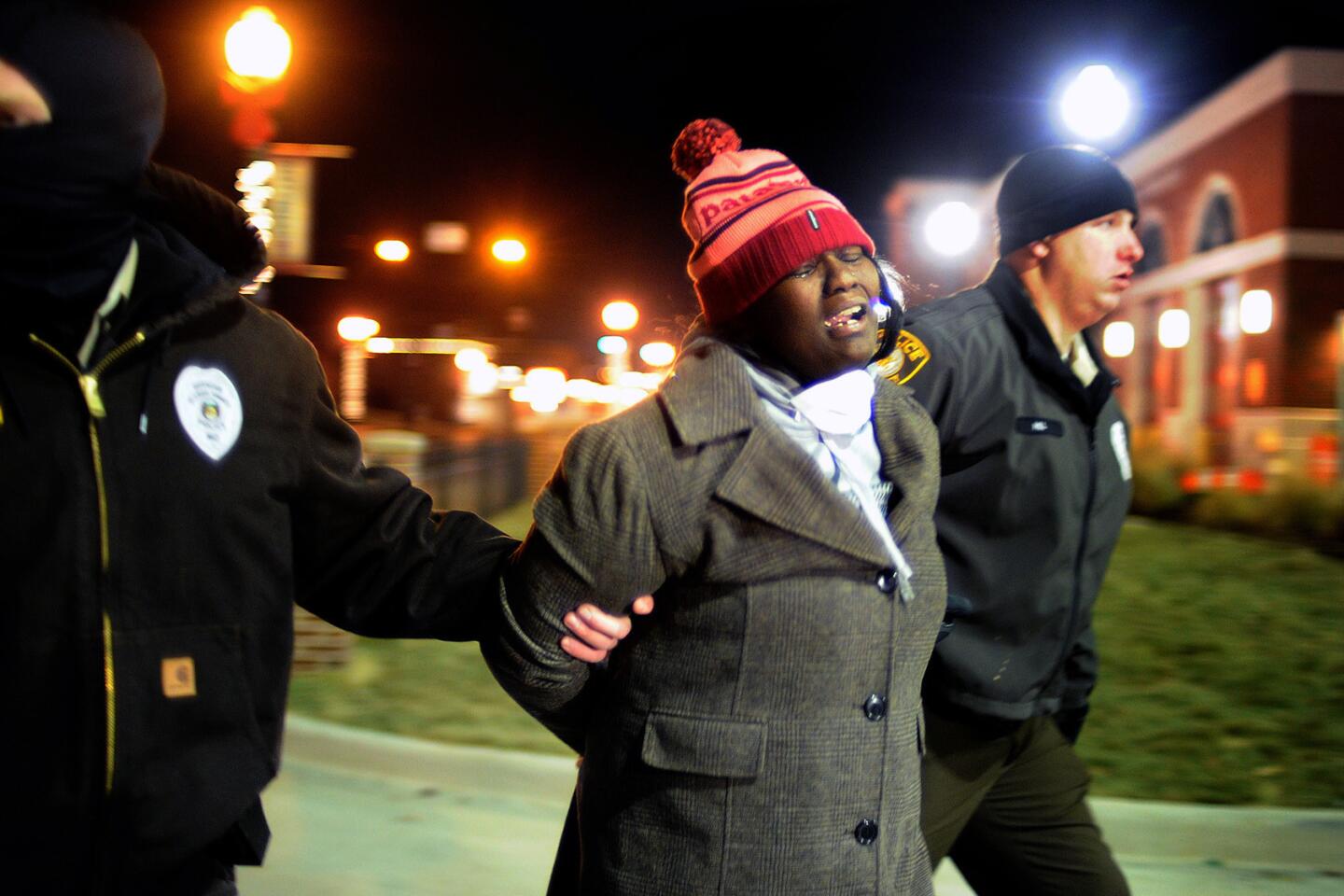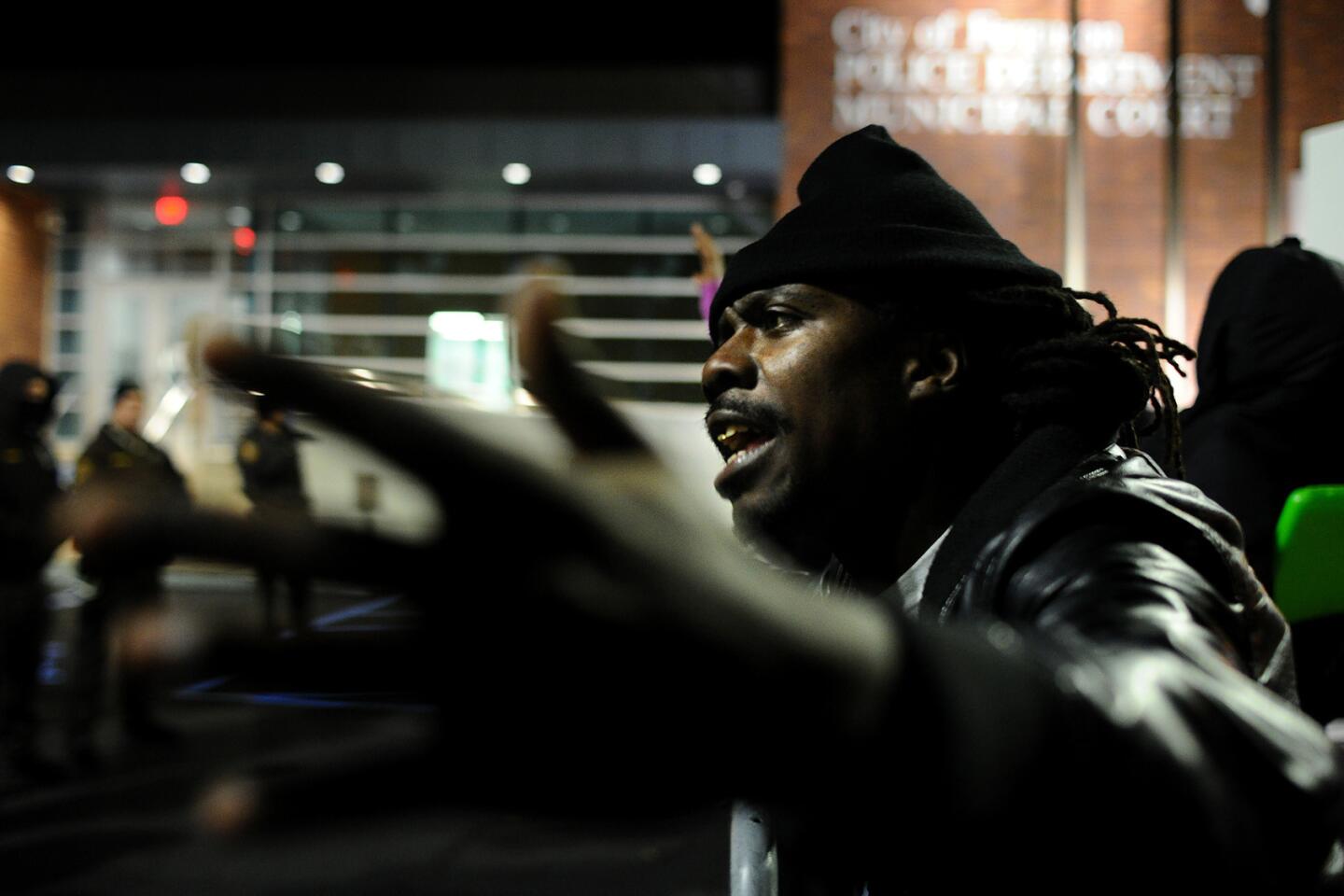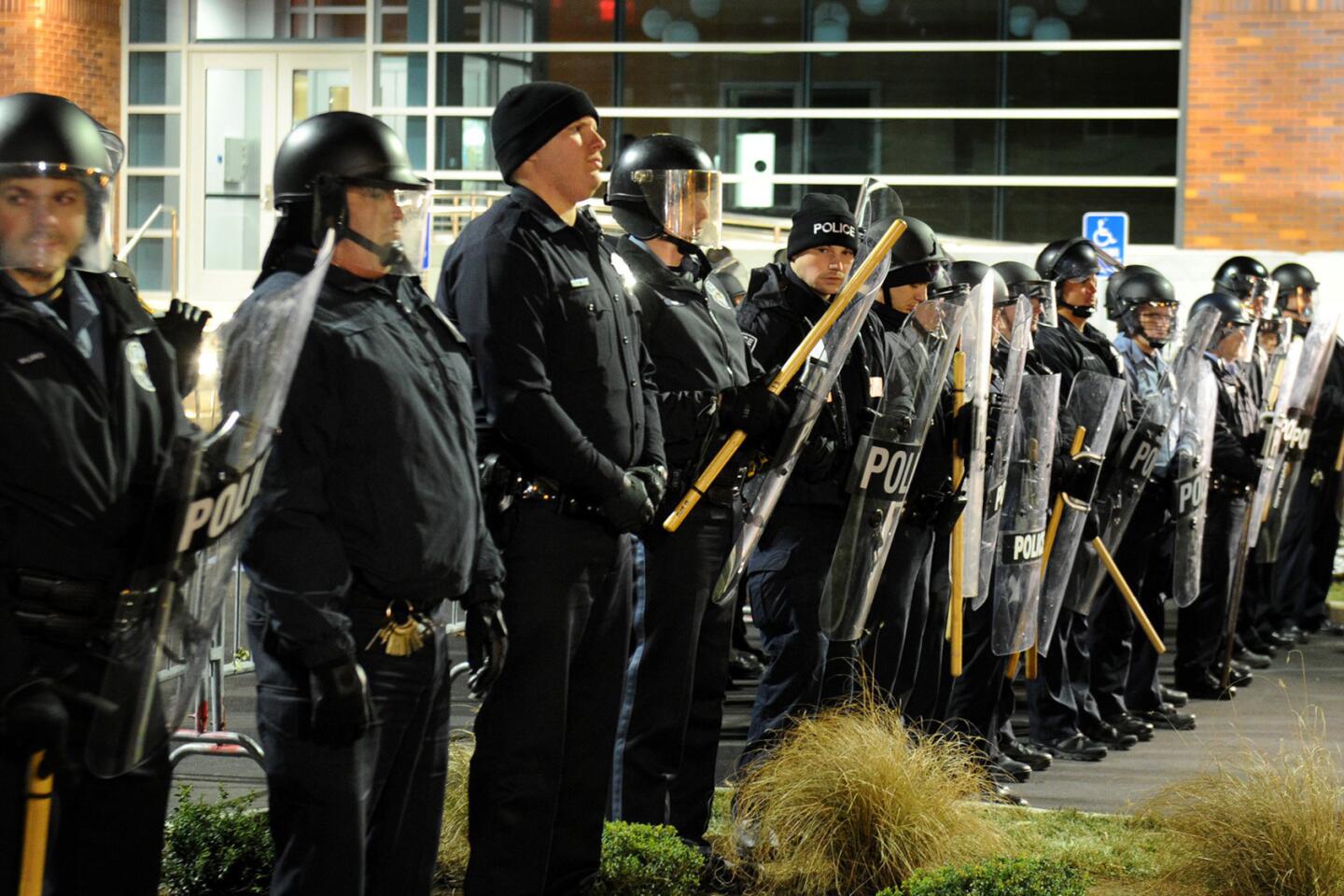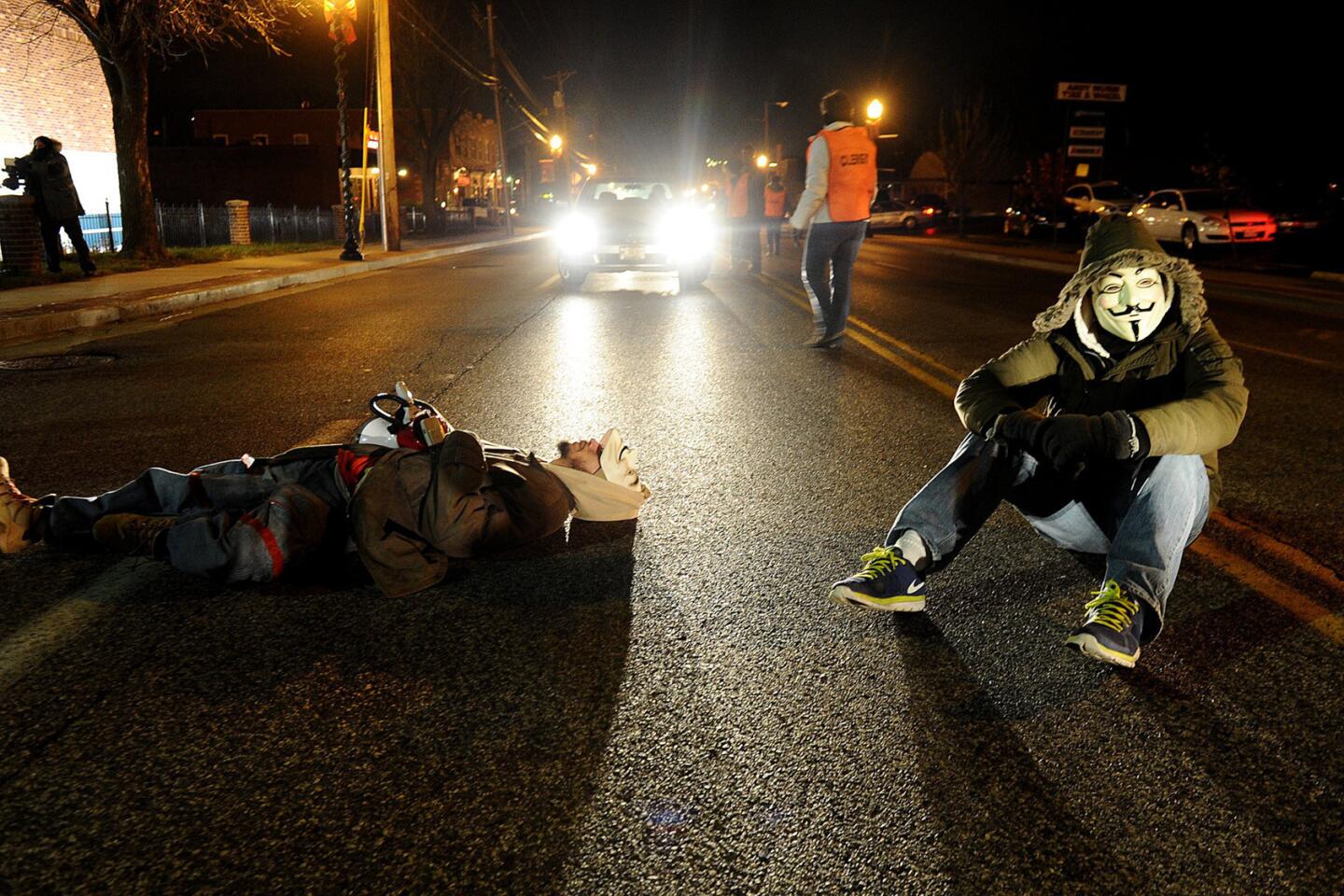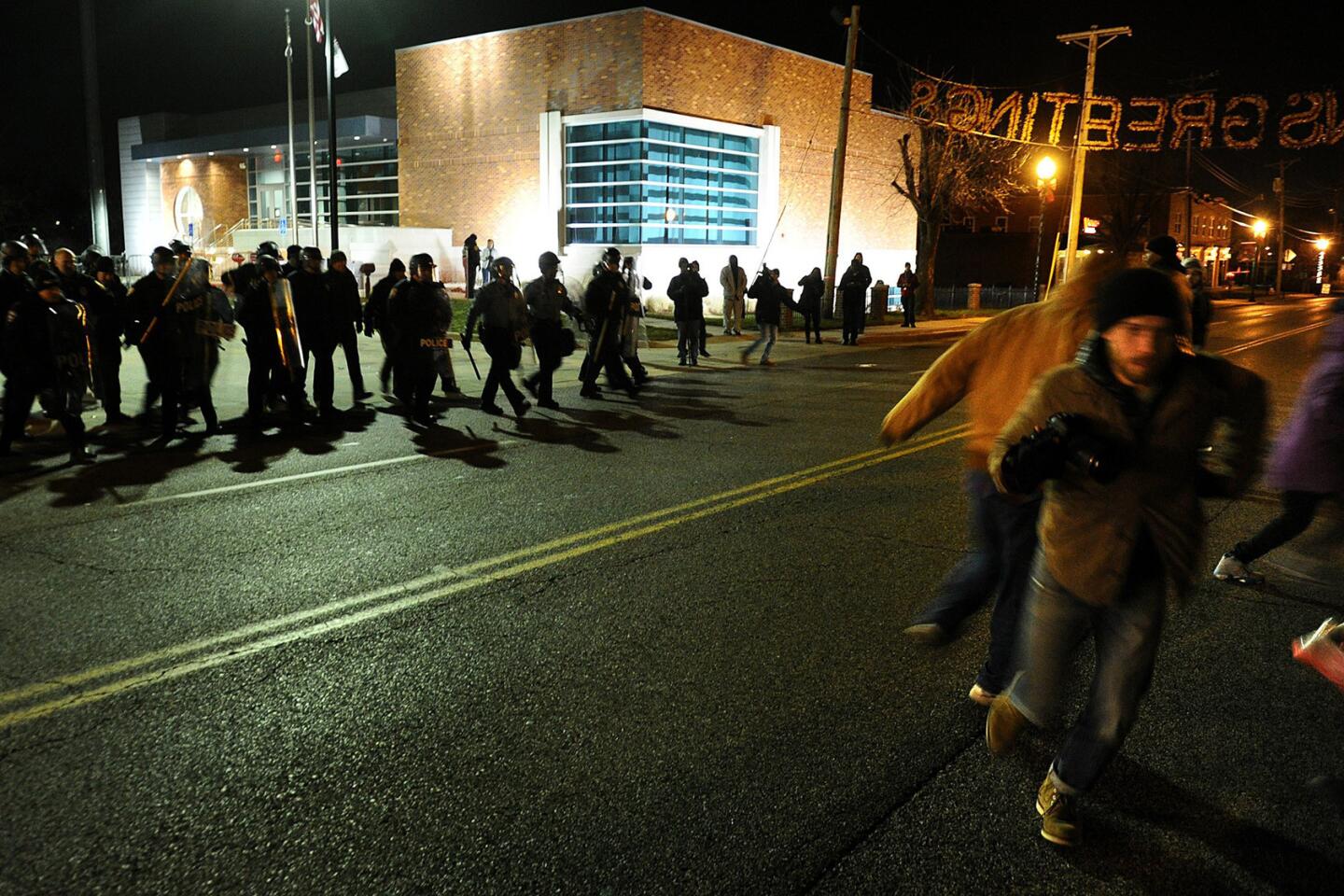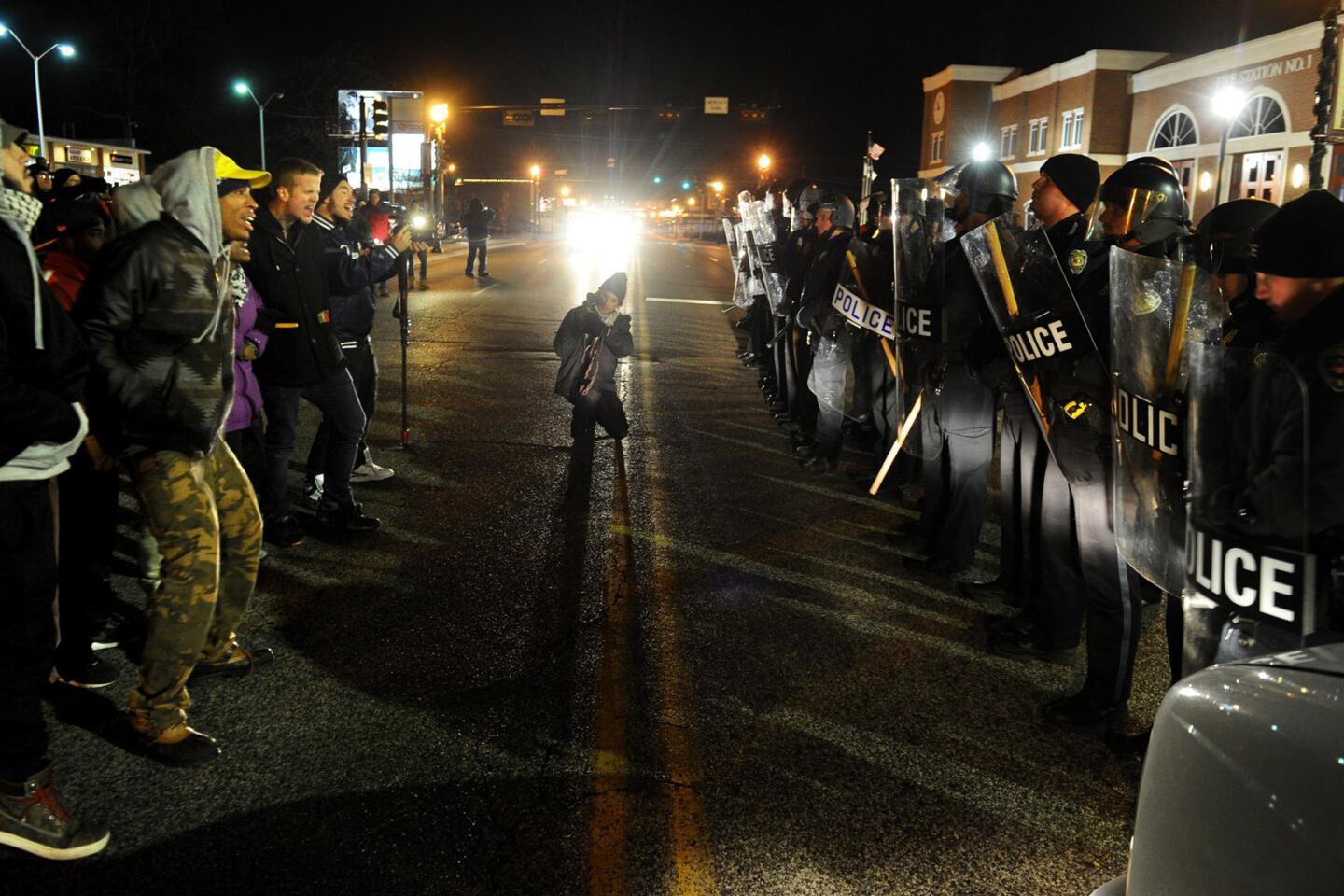Ferguson police one of many law enforcement agencies facing federal reforms
The Ferguson Police Department in Missouri is one of about two dozen law enforcement agencies under investigation by the Justice Department.
Police departments in Cleveland, Albuquerque and Newark, N.J., were the subject of scathing federal investigations last year. The government has increased its scrutiny of law enforcement agencies since the controversial police killings of Michael Brown in Ferguson, Eric Garner in New York and Tamir Rice in Cleveland.
The number of departments under investigation by the Justice Department has increased under the Obama administration and Atty. Gen. Eric H. Holder Jr.
Nineteen departments have been placed under some form of federal monitoring since 2000, according to a 2013 report by the Police Executive Research Forum.
In 2012 alone, five major city police departments were placed under some form of federal monitoring, the report said.
Ferguson officials will now probably enter negotiations with the federal government to determine what reforms and monitoring will be put in place.
The Justice Department can sue the city to force reform if the two sides fail to come to an agreement, according to Samuel Walker, a criminal justice professor at the University of Nebraska.
Walker said Ferguson police would probably receive some kind of court-appointed watchdog.
“A monitor is essential and has been included in all the other Justice Department settlements,” he said. “You’ve got to have someone independent who reports to the judge, and those reports are public.... It provides a picture of what progress they are making.”
Here is a look at some of the other federal investigations:
Cleveland Police Department, December 2014
Months after the Cleveland Police Department became embroiled in a national controversy over the shooting death of Tamir Rice, a 12-year-old boy armed with a toy gun, federal investigators found the department routinely used excessive force.
The investigation, launched in 2011 in response to an inquiry by the Cleveland Plain Dealer, found officers regularly fired their service weapons and deployed stun guns and chemical sprays in situations where that level of force was unjustified.
The Justice Department said the issue was highlighted by a 2012 car chase that lasted nearly 30 minutes and involved more than 100 officers, about 37% of the department’s on-duty force. The incident ended in the death of two suspects.
Cleveland police and city officials have signed an agreement with federal investigators that will lead to “court-enforceable” reforms, and an independent monitor will oversee the department’s actions.
Albuquerque Police Department, October 2014
Federal officials and Albuquerque police leaders announced a settlement that would revise the department’s use-of-force policy and disband a problematic SWAT unit.
From 2010 to 2014, Albuquerque police shot 37 people, 27 of them fatally, according to the federal report. The department was also ordered to drastically change the way it handled confrontations with the mentally ill, after the fatal shooting of a homeless man sparked a string of protests in the city.
The agreement between the Justice Department and Albuquerque officials calls for a federal monitor to oversee the reforms. The monitor will remain in place until the department can show it has sustained compliance with federal recommendations for at least two years.
Newark, N.J., Police Department, July 2014
A three-year investigation into New Jersey’s largest police department found Newark police unfairly targeted black citizens and repeatedly used excessive force during street stops, according to findings made public in July.
Though 54% of the city’s 281,000 residents are black, federal investigators found that 79% of those arrested and 85% of those stopped by officers were black.
Separate internal affairs records reviewed by the Los Angeles Times showed the department received 989 excessive-force complaints from 2000 to 2009. Only 21 of those cases, or 2%, resulted in disciplinary action or criminal charges.
The city and the Justice Department have agreed to implement a consent decree that will result in the appointment of a federal monitor.
Portland, Ore., Police Bureau, September 2012
A years-long review of the Portland Police Bureau’s use-of-force tactics found the department’s officers regularly abused mentally ill suspects, repeatedly using their fists or stun guns against mentally ill suspects who “posed little or no threat and who could not, as a result of their mental illness, comply with officers’ commands,” according to investigative findings released in 2012.
The review pointed to an August 2010 incident where officers repeatedly shocked a mentally ill man with an electronic control weapon even though he was unarmed, naked and suffering from a “diabetic emergency.”
The city and the federal government reached a settlement calling for court-appointed reforms.
Seattle Police Department, July 2012
A federal review of Seattle’s police practices in 2012 found officers regularly escalated minor incidents into confrontations that resulted in injury or death by using batons, flashlights and other blunt instruments.
The Justice Department reviewed a host of incidents where officers used their batons and found they were used improperly in about 60% of those clashes. The city’s agreement with the federal government called for an overhaul of the department’s use-of-force policy, including more detailed reporting by officers when they used any type of force during an interaction with a civilian.
In many of the incidents where suspects were injured, the investigation found that police were beating people who were either mentally ill or under the influence.
The department has remained under a federal monitor.
According to a report issued by the monitor in December 2014, Police Chief Katherine O’Toole has made significant progress in implementing the mandated reforms.
As of January, all officers had received hours of in-class and field training regarding accurate and detailed reporting of use-of-force incidents.
New Orleans Police Department, March 2011
Federal investigators found New Orleans police officers routinely engaged in illegal searches, repeatedly used excessive force during arrests, and discriminated against gay, transgender and minority citizens.
The findings, released in 2011, found police repeatedly used deadly force when it was not warranted, despite the fact that the city’s internal affairs unit had not found an officer-involved shooting to be contrary to department policy in nearly six years.
The Justice Department ordered police to immediately cease the use of canines to arrest suspects.
The federal report also found officers were arresting African Americans at a higher rater than they were arresting whites, nearly 16 to 1.
The city and the federal government entered into a settlement calling for court-ordered reforms.
Follow @JamesQueallyLAT for breaking news
More to Read
Sign up for Essential California
The most important California stories and recommendations in your inbox every morning.
You may occasionally receive promotional content from the Los Angeles Times.
